Gallery (Click on titles!)
-
Chichester Walls walk on 7th December 2022
As winter made its first appearance, we thought Chichester deserved a visit. Eastgate was the starting point of the ancient Roman road called Stane Street, which goes in an almost straight line to London Bridge, however we instead followed the East Wall of Noviomagus Reginorum. Noviomagus Reginorum was supposedly renamed by the Saxon invader Ælle, after his son, Cissa. Priory Park is in the top north east corner of the city wall and has a very pleasant coffee stop, near to the Guildhall, built as a Franciscan chancel in 1283. Suitably refreshed we wandered along the north wall before turning south and entering the Bishops Palace gardens and on to the Cathedral. Some magnificent memorials and windows to admire, as well as seeing the memorial to William Huskisson, the first man to ever die from a railway accident, in this case, Stephenson's Rocket. Huskinsson lived in Eartham House, about 7 miles away, on the old Stane Street route. We then returned to the Gardens to take the high path back to the entrance, from there to continue our circumnavigation of the city wall. There is not so much evidence of the wall on the south side and after a look into St John's Chapel, we were back at the start. Happily this coincided with our lunch stop in Carluccio's at East Gate, where we had an excellent lunch.
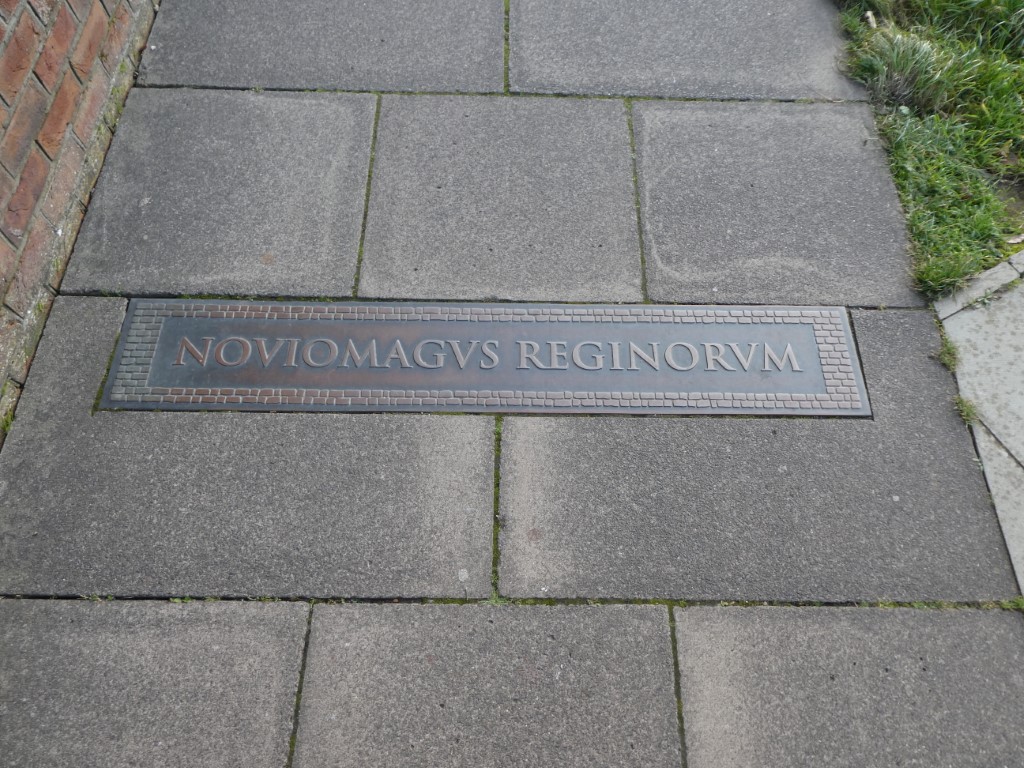
The Roman name for Chichester
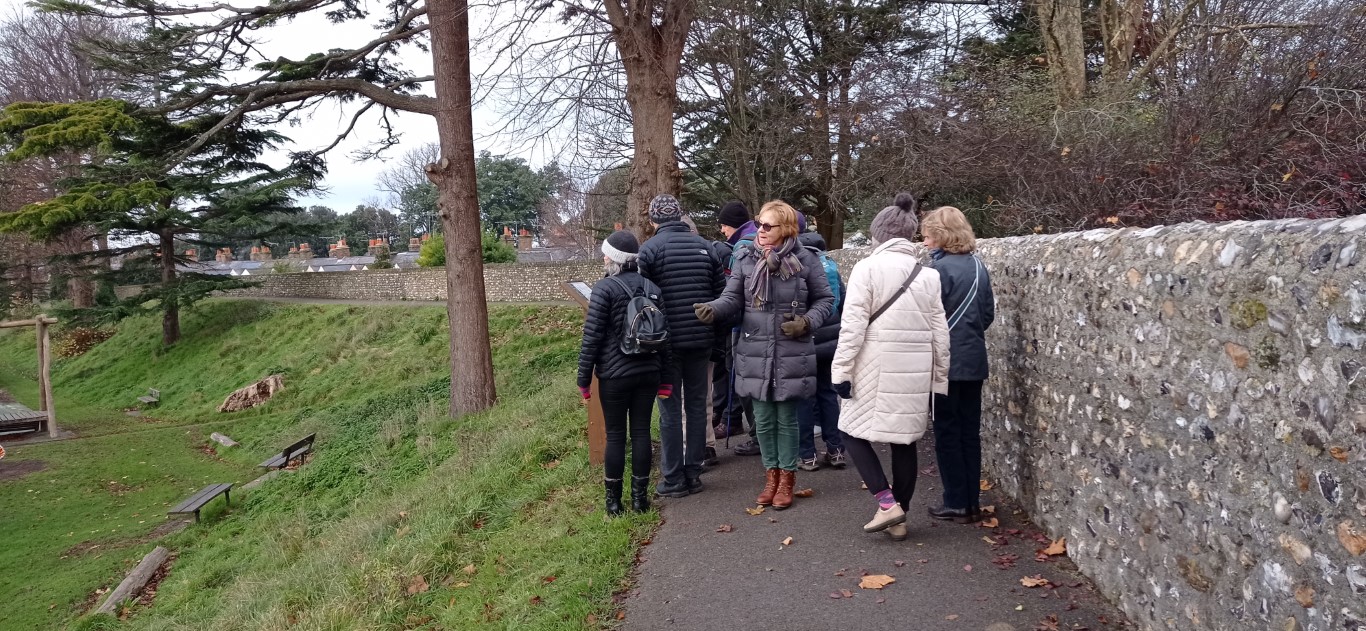
Priory Park, East Wall
.jpg)
Priory park aviary, near our coffee stop.
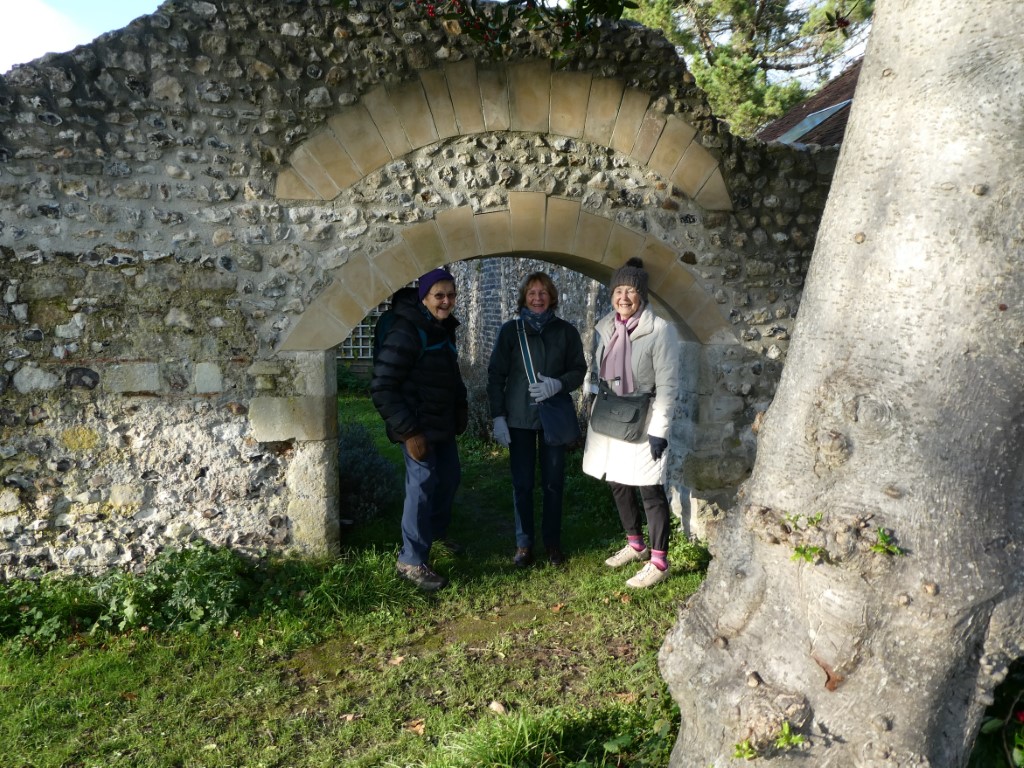
No information on this ruin, but it makes a nice frame
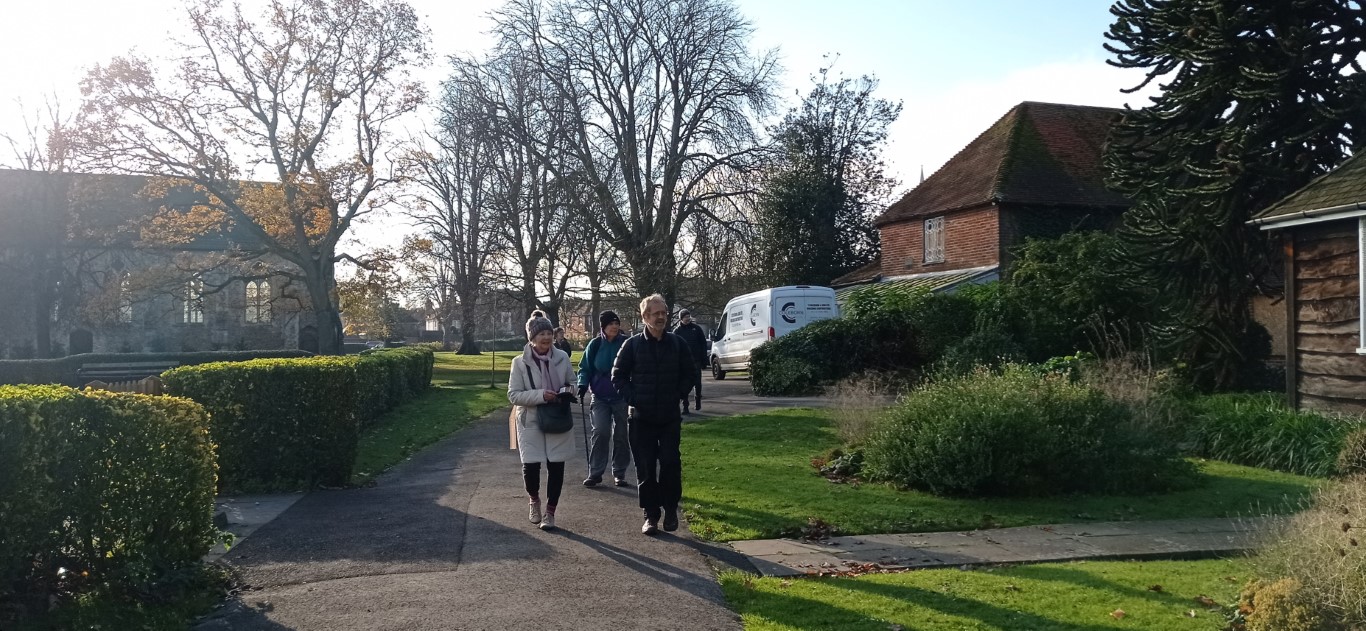
Priory park, Franciscan chancel, now the Guildhall in the background
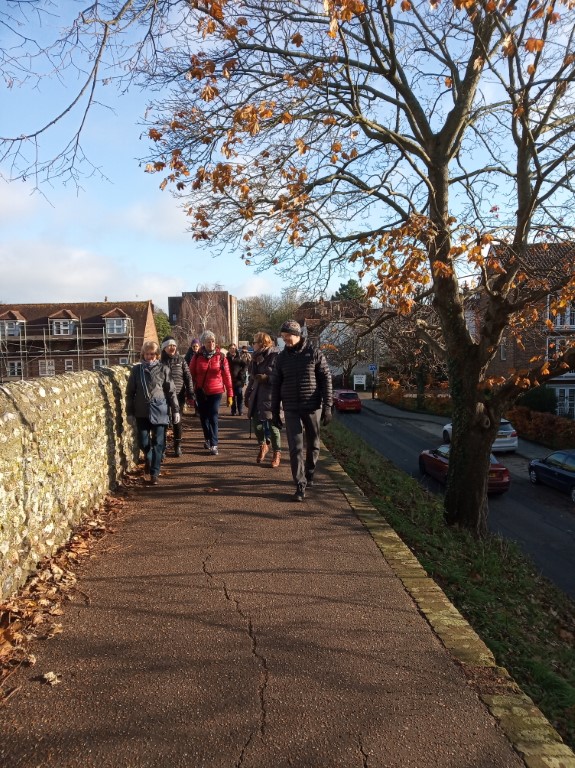
North Walls
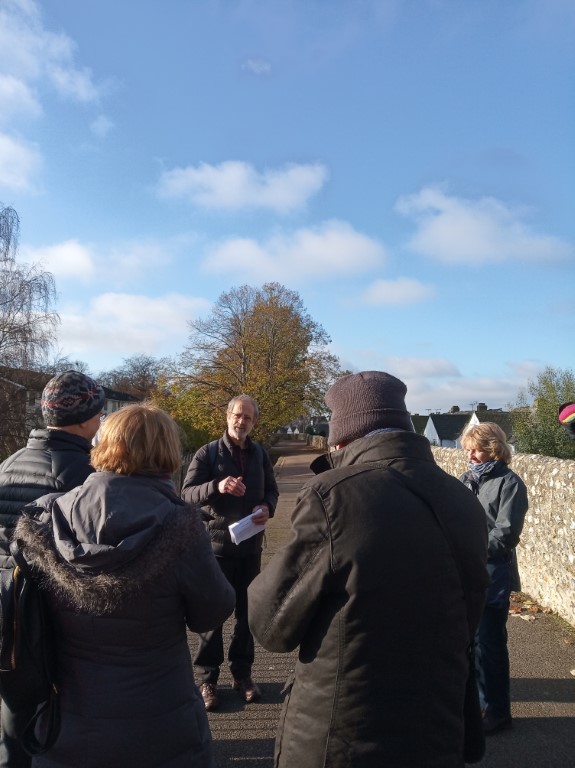
Long story told here about the Hawkhurst gang, who left victims buried alive in Rake and Harting.
Seven were eventually captured in Chichester and six were hung in 1749.
At least another 70 were eventually hung or transported.
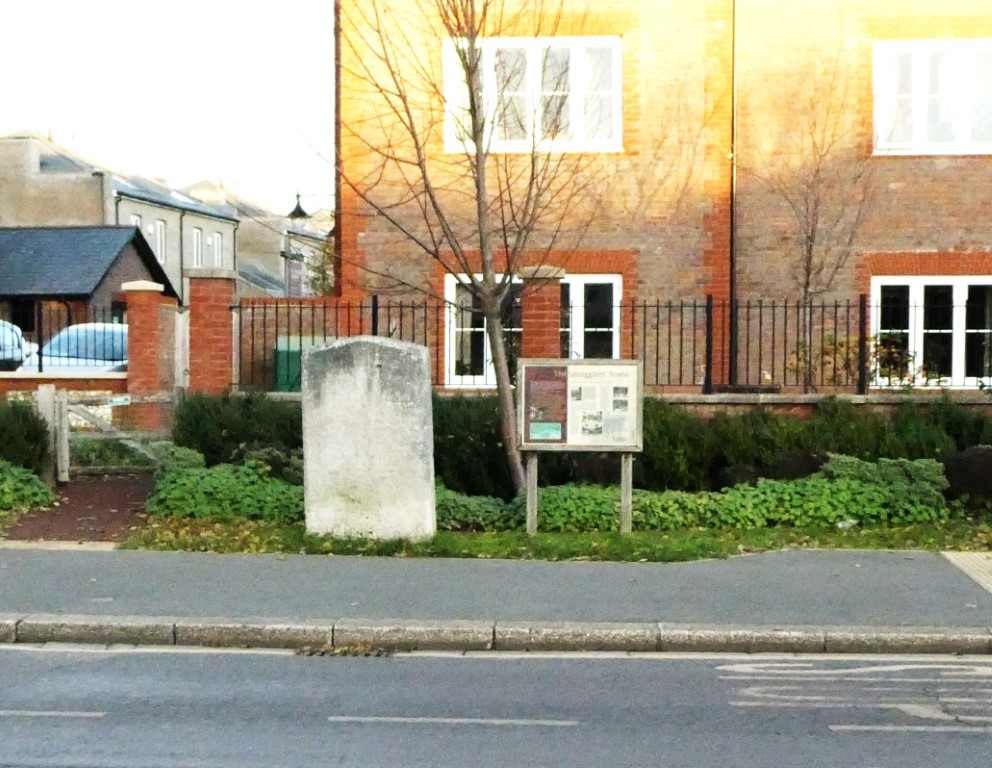
This memorial stone (Smugglers Stone) is just up the road towards Midhurst and records the burial spot of one gang member and the execution spot for another six.
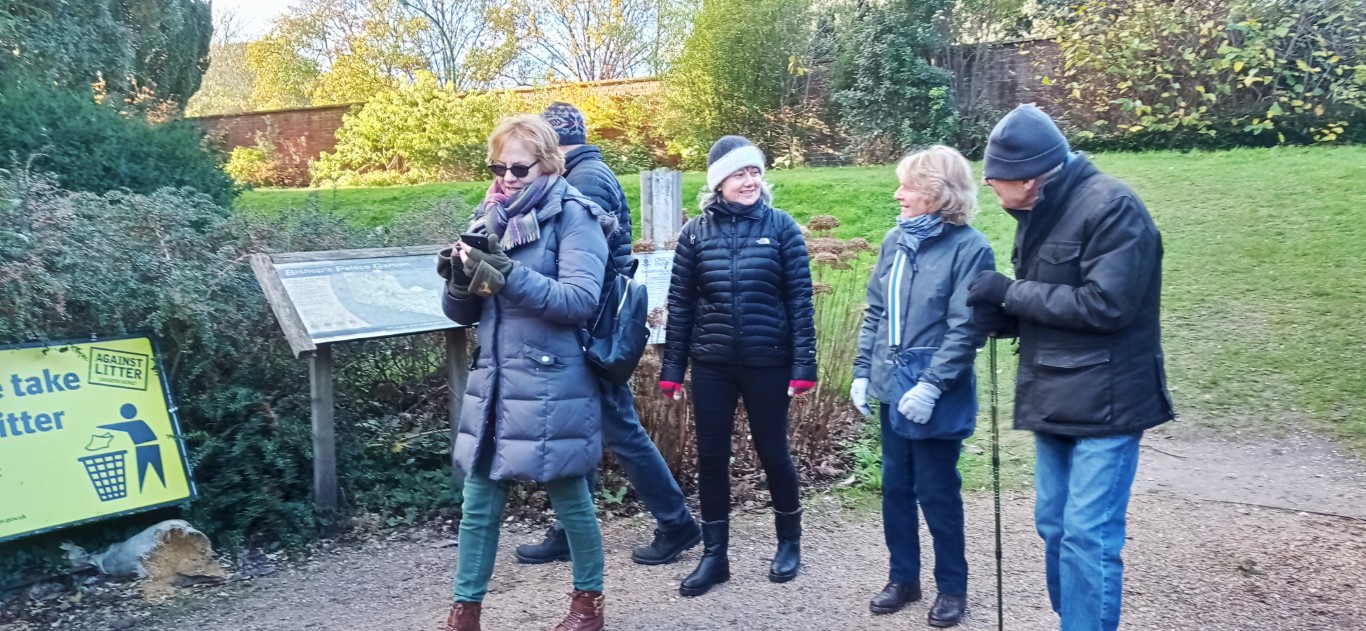
The beautiful Bishops Palace Gardens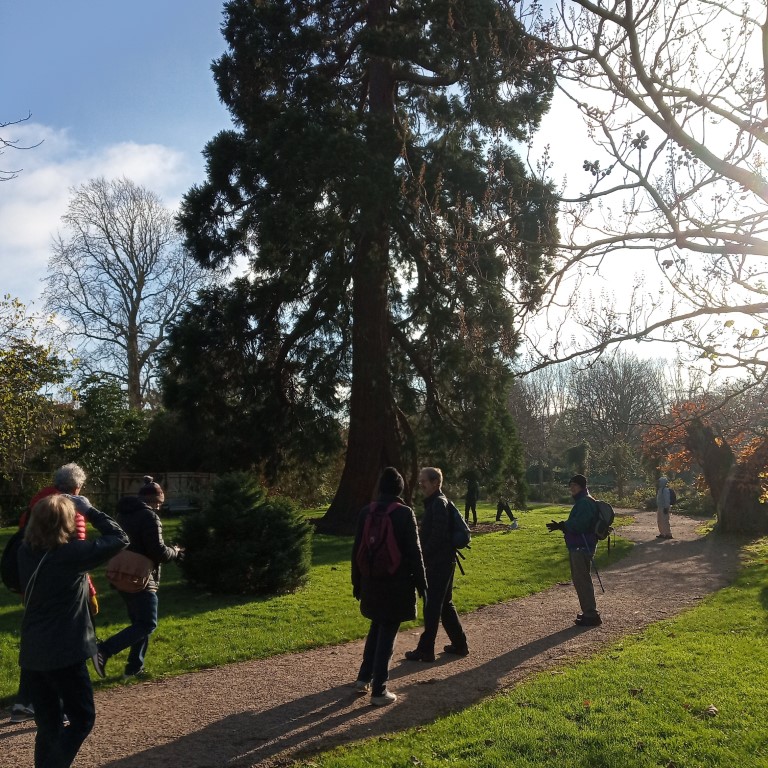
Giant Redwood
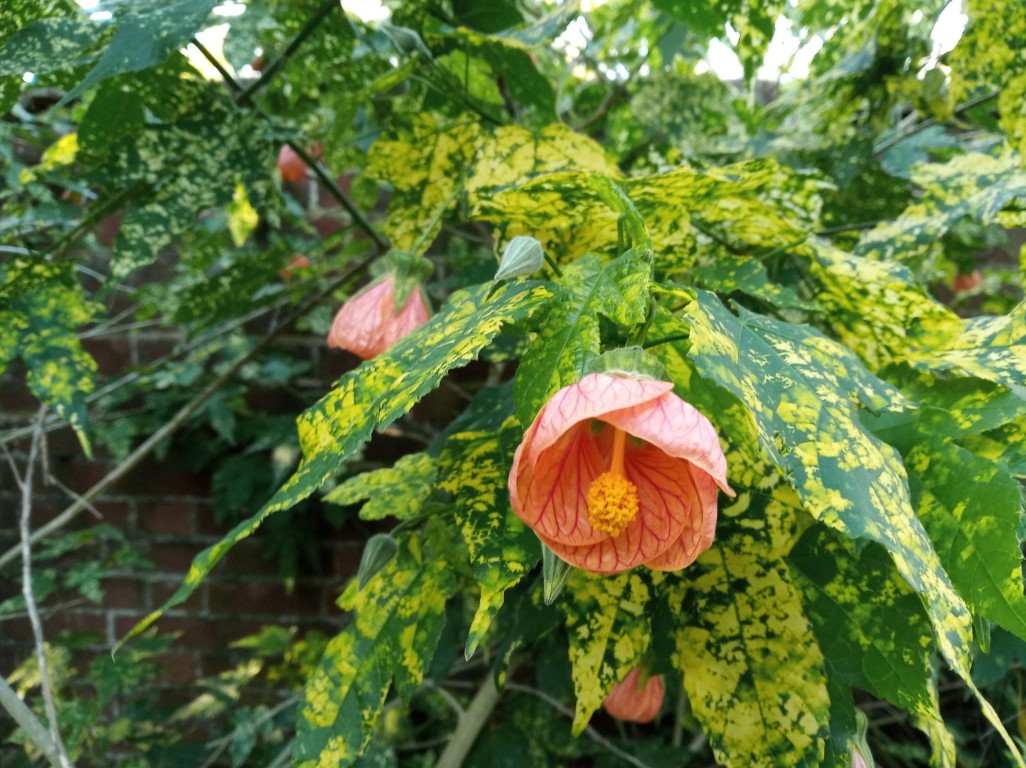 .
.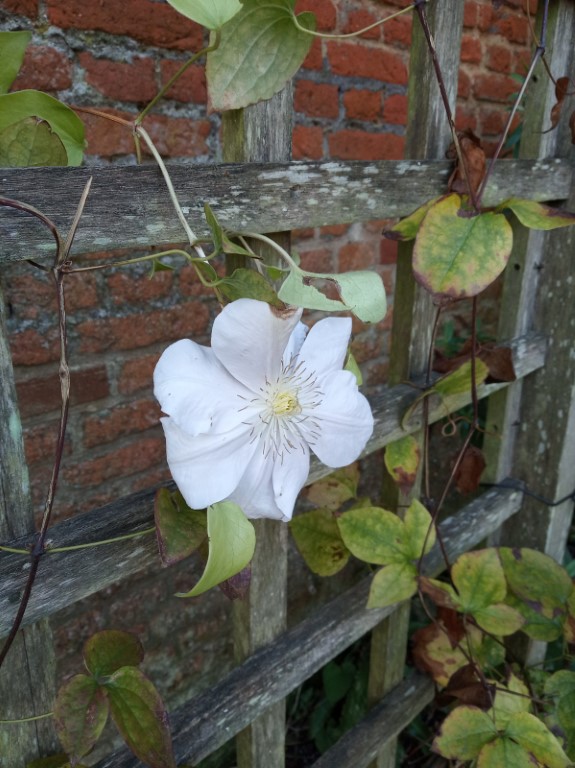 .
.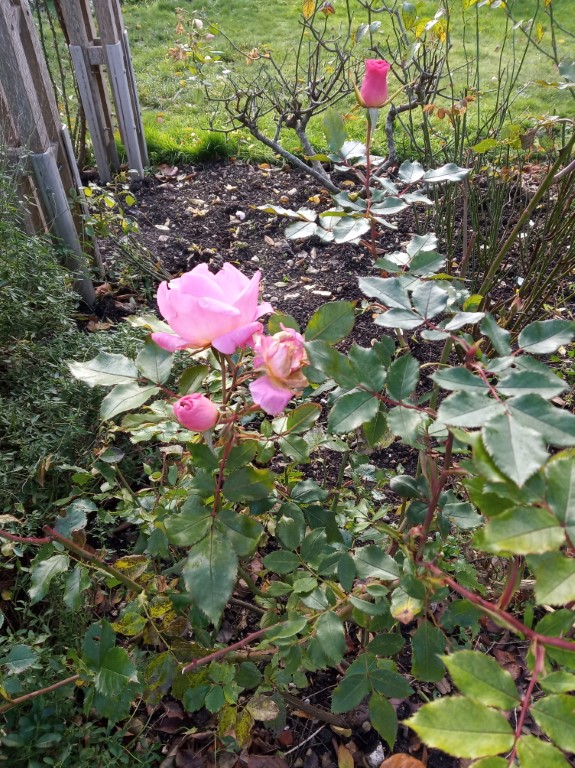
Flowers still making the best of the weather
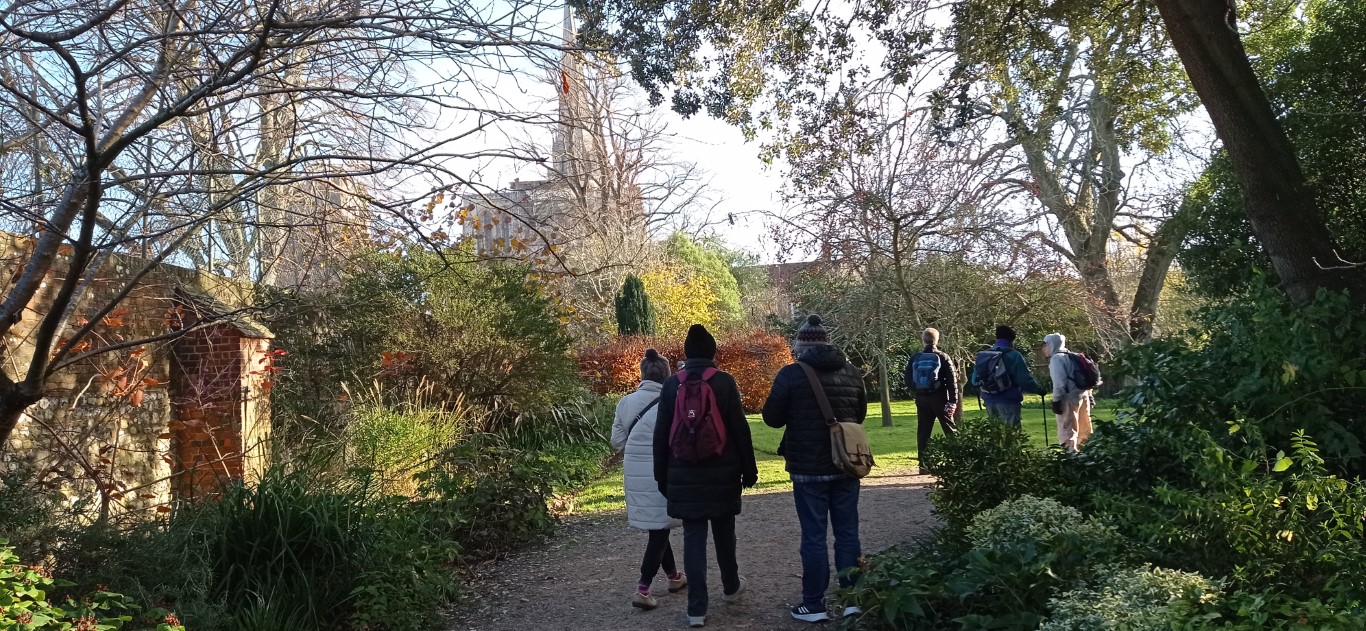
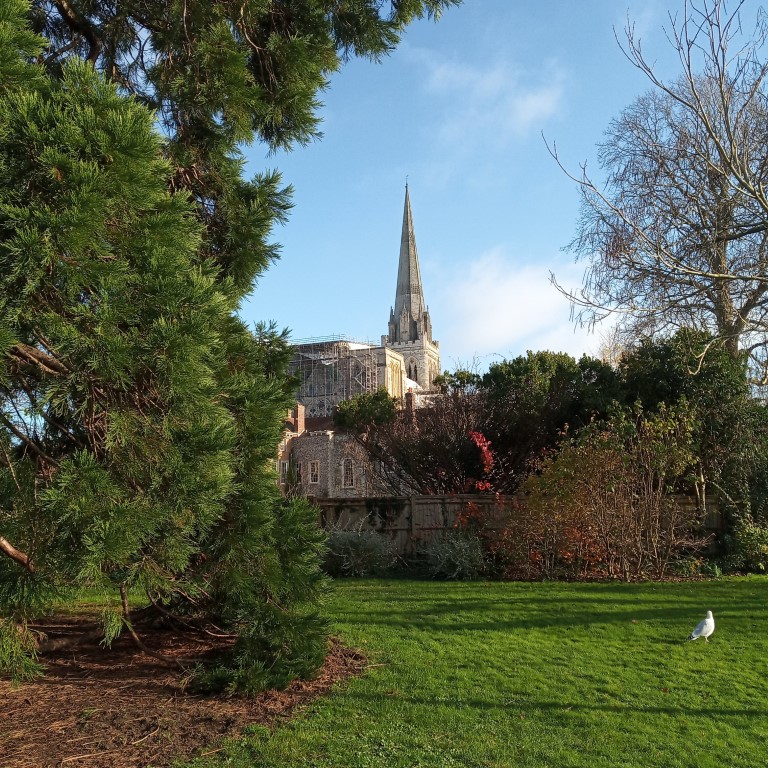
Chichester Cathedral, roof under repair.
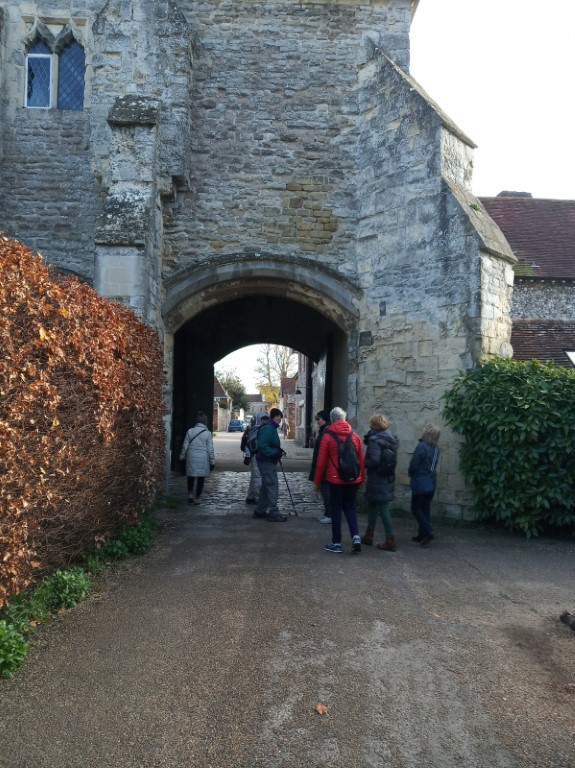
Leaving the Gardens and heading for the Cathedral
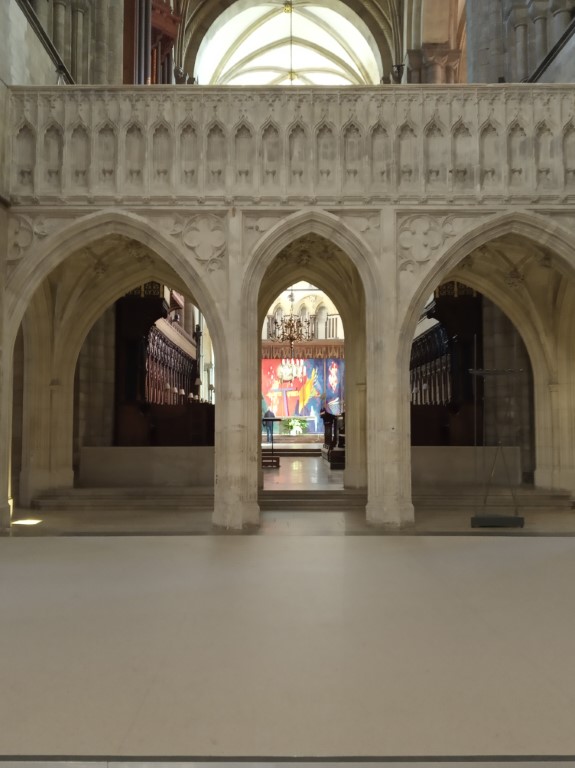
Inside the Cathedral, founded in 681, rebuilt in 1199. Copper roof now being replaced with lead.
Home to a number of pieces of ancient and modern art.
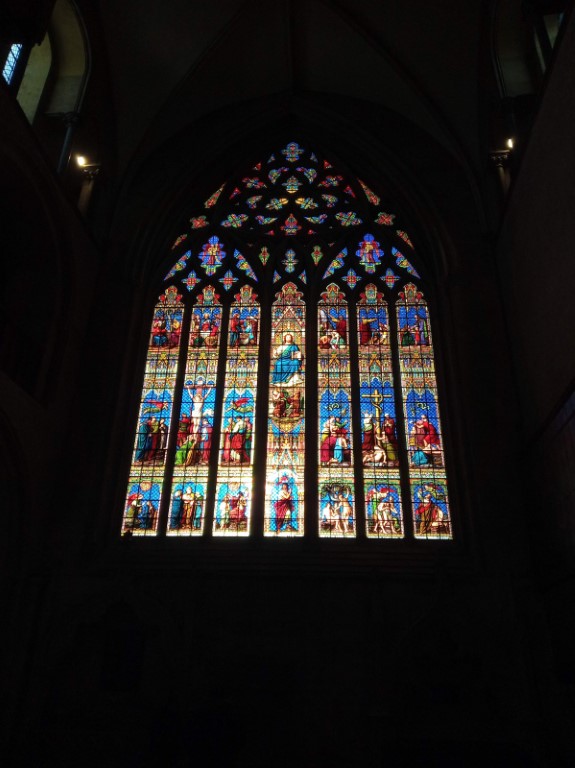
Stained glass in the South transcept. There is a more famous window elsewhere by Marc Chagall
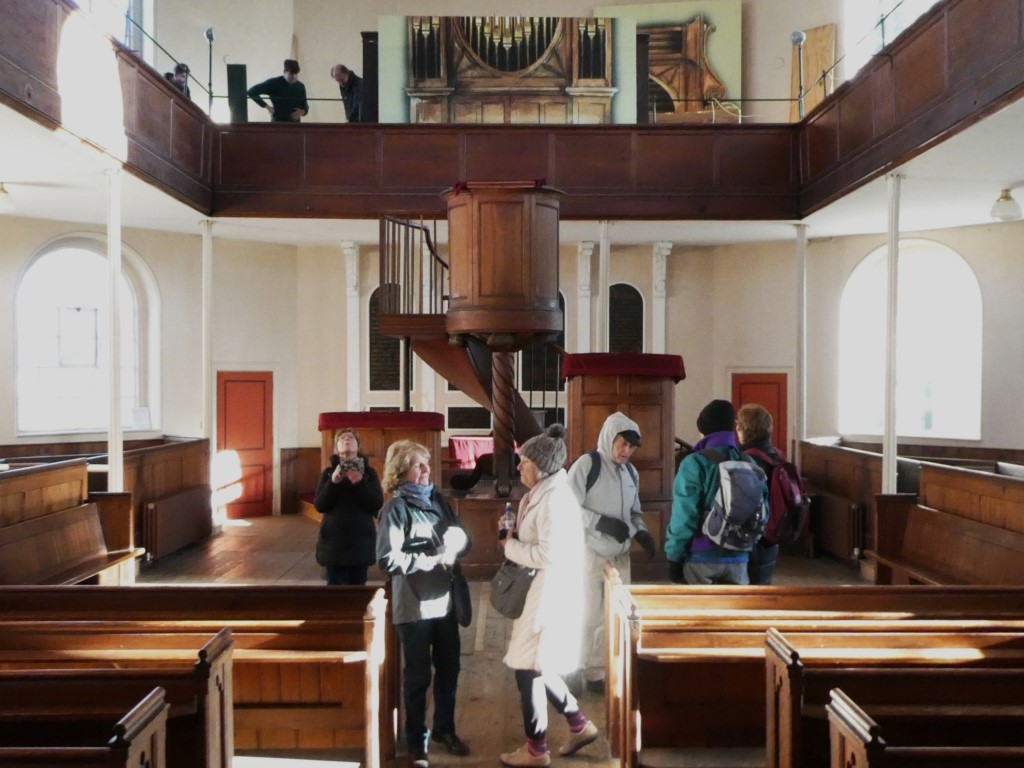
We later found St Johns Chapel in St Johns Street. Built as an overflow chapel in 1813 with congregations of 500 and 600 in Victorian times but closed in 1973. Organ now being repaired.
.jpg)
Now being used as an art and cultural events, maintained by The Churches Conservation Trust.
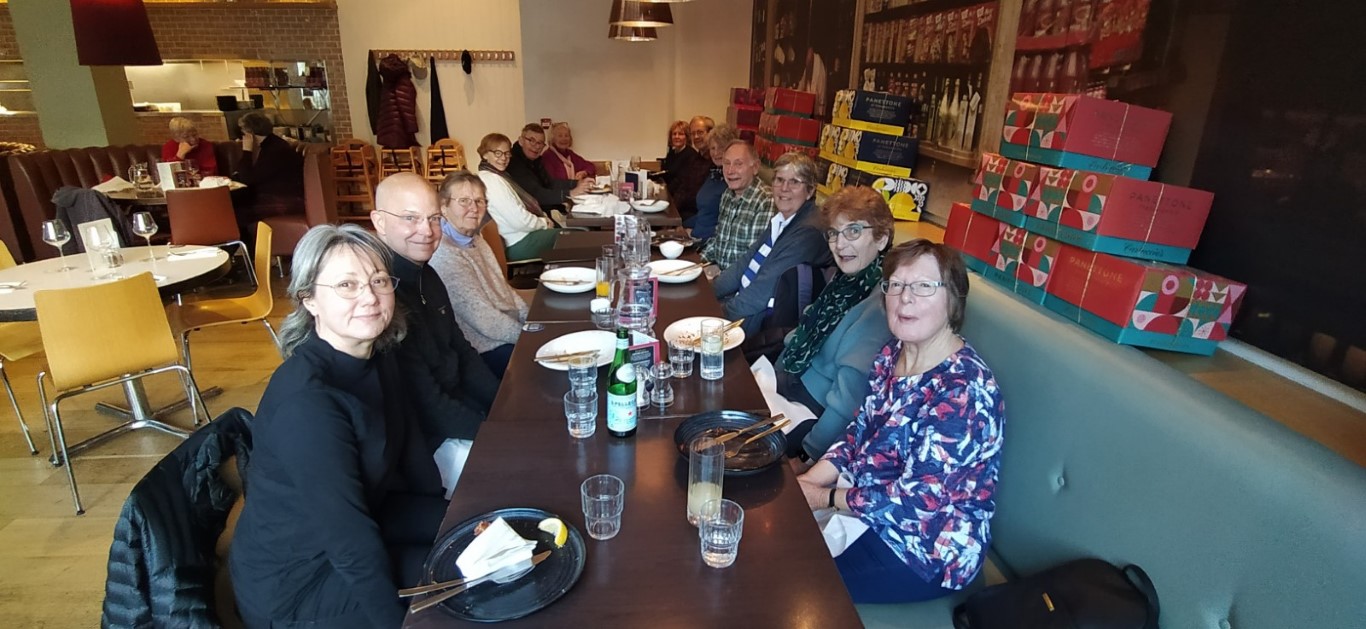
Carluccio's
Marley walk 30th November 2022
Kathryn had hoped the mist would clear as we had some great views to admire. Setting off from The Mill Tavern in Shottermill we headed up towards Brinksway, but then turned east in the area of Marley House. Sadly the view over Cognor Wood and beyond towards Butser and the English Channel was limited to the bottom of the hill! The walking was very pleasant and in spite of recent rain, we had no problems at all with wet feet during the morning. We eventually stopped for a drinks break above Kingsley Green and the weather this side of the hill was slightly better, but still the long views were shrouded in mist. A loop around High Marley and we retraced our steps, with a few diversions, back down through Brinksway and back to the pub. A great meal was had, with some hilarity looking at early photographs.
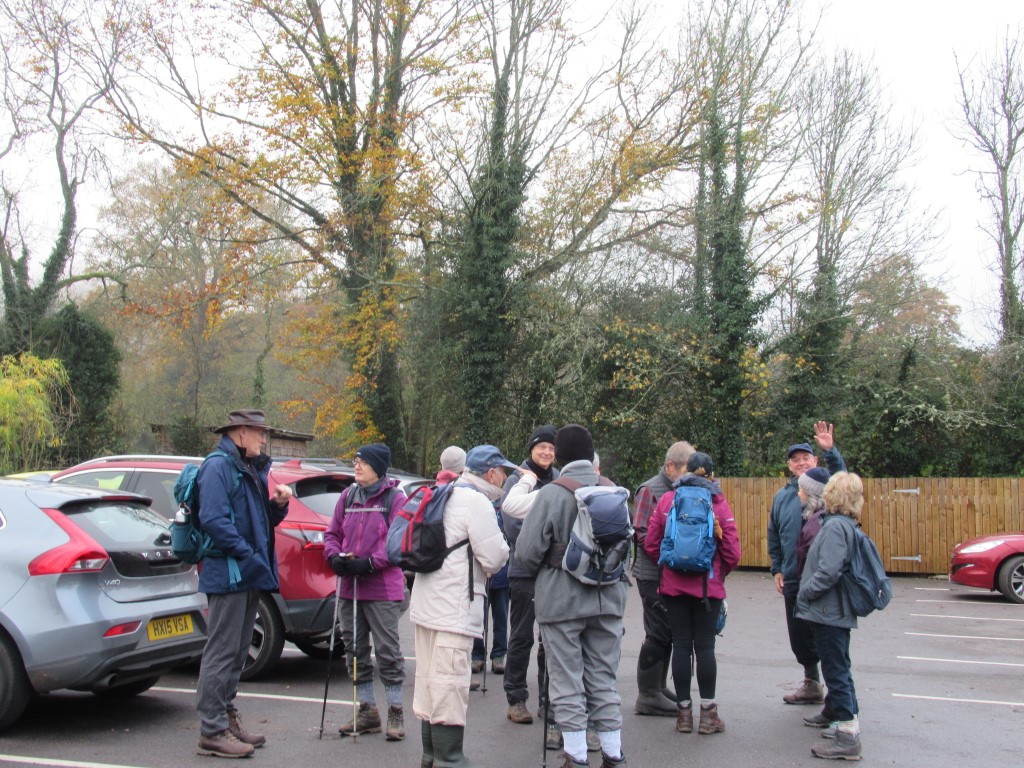
Gathering in the car park
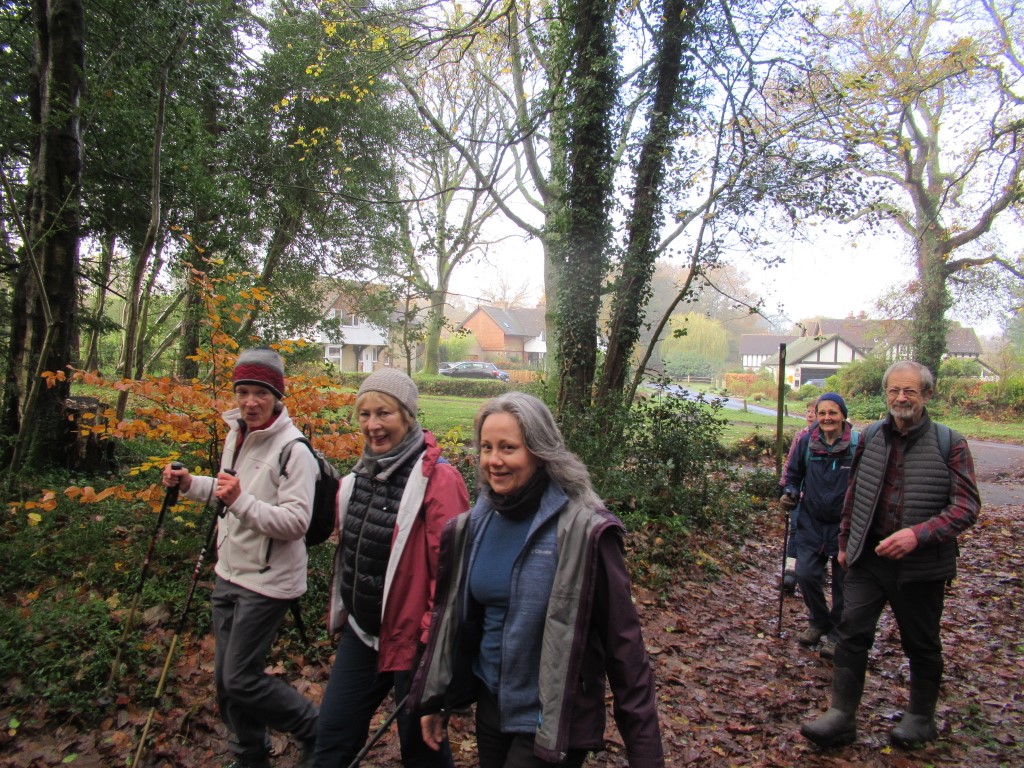
Heading out
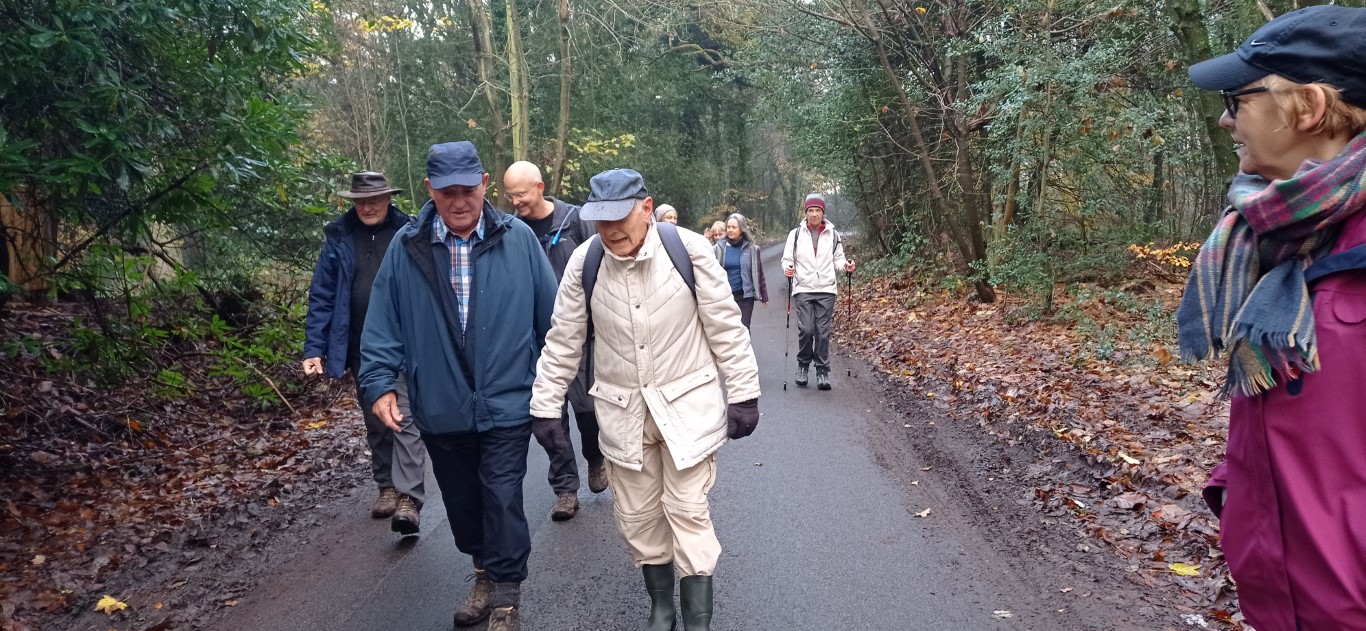
Shepherd with her flock
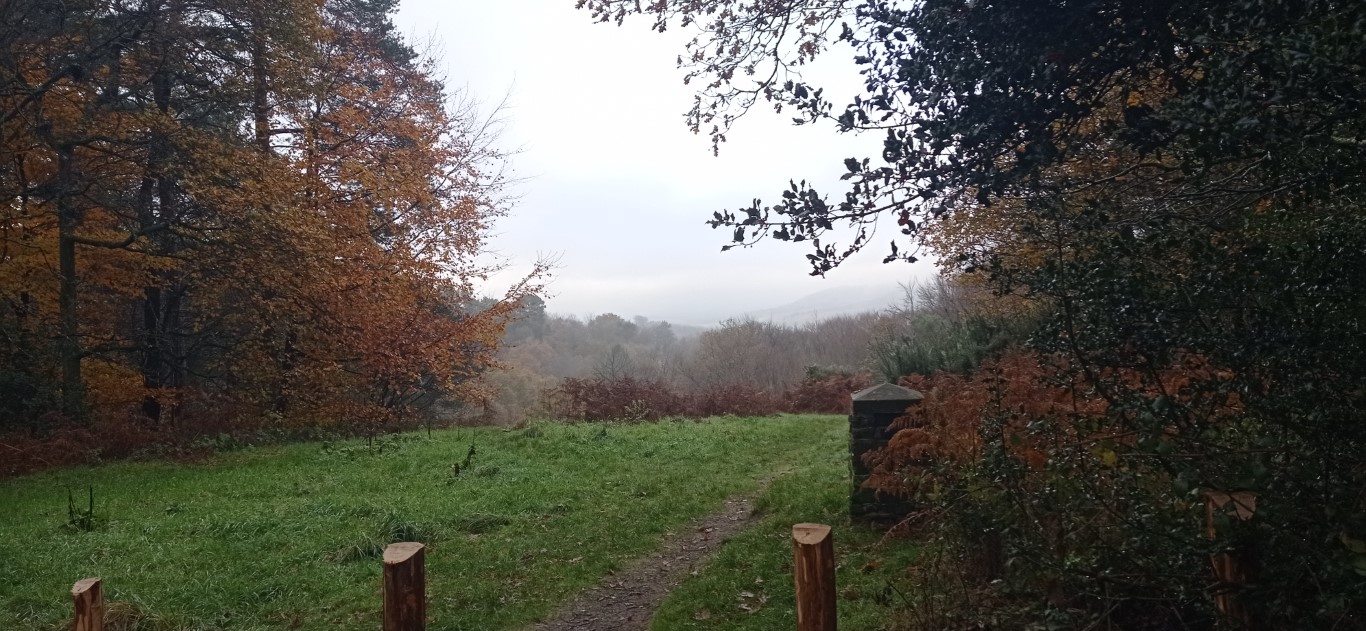
On a good day you can see forever
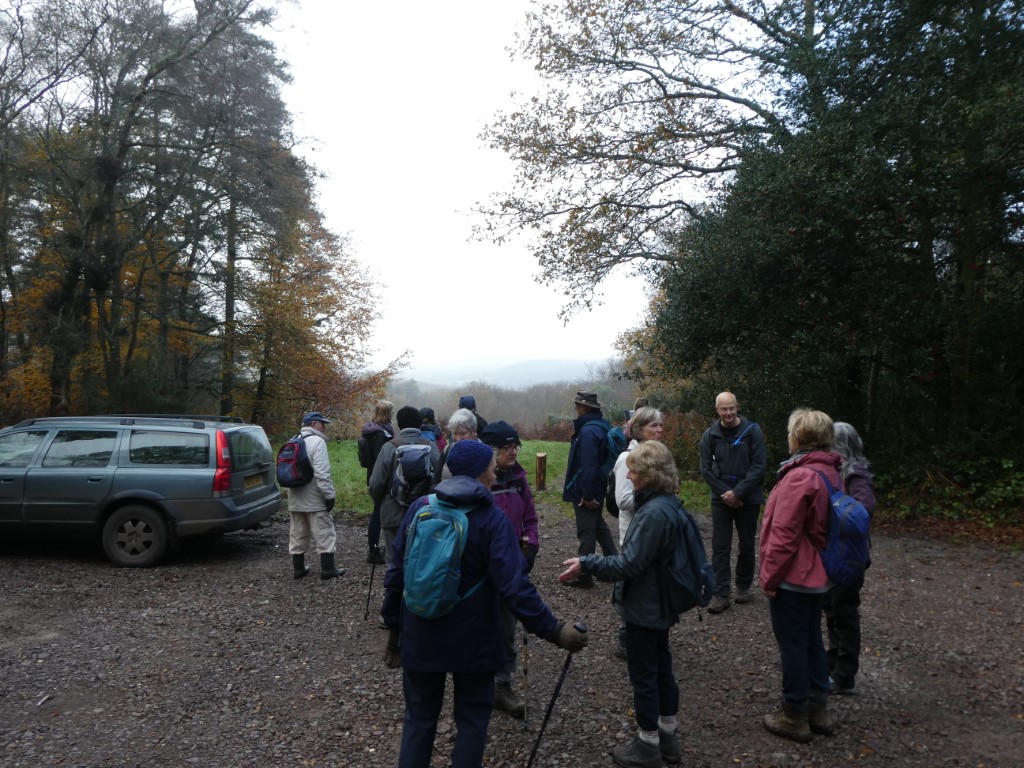
Well, it wasn't this day.
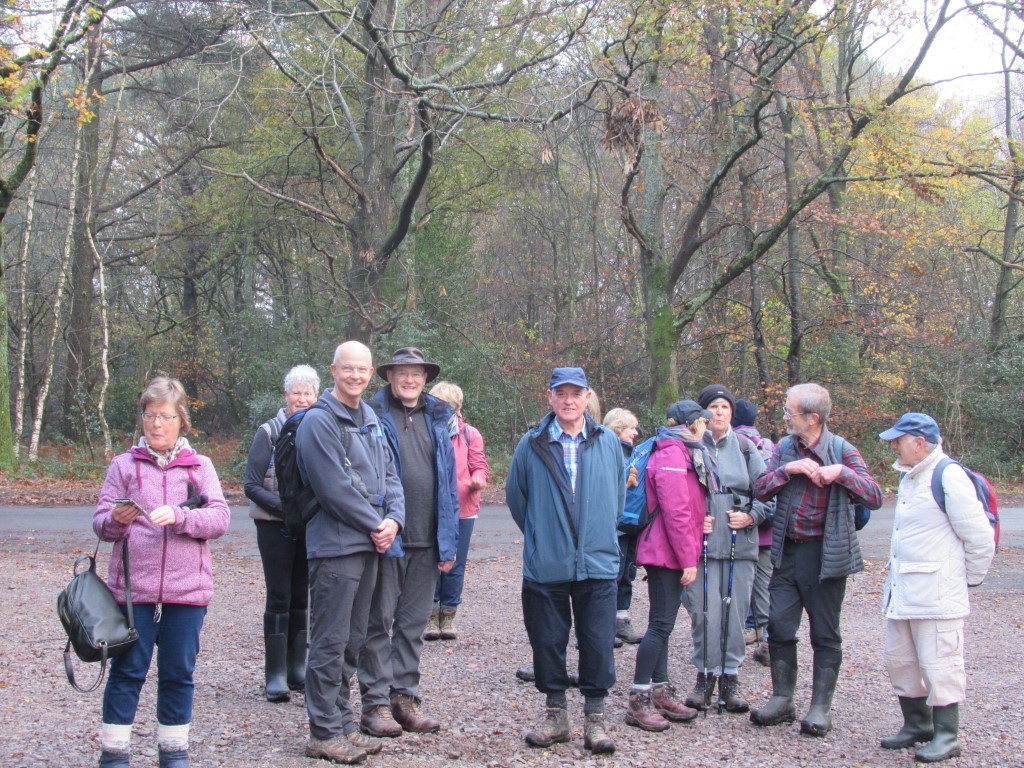
View lookers have now given up and are just standing around
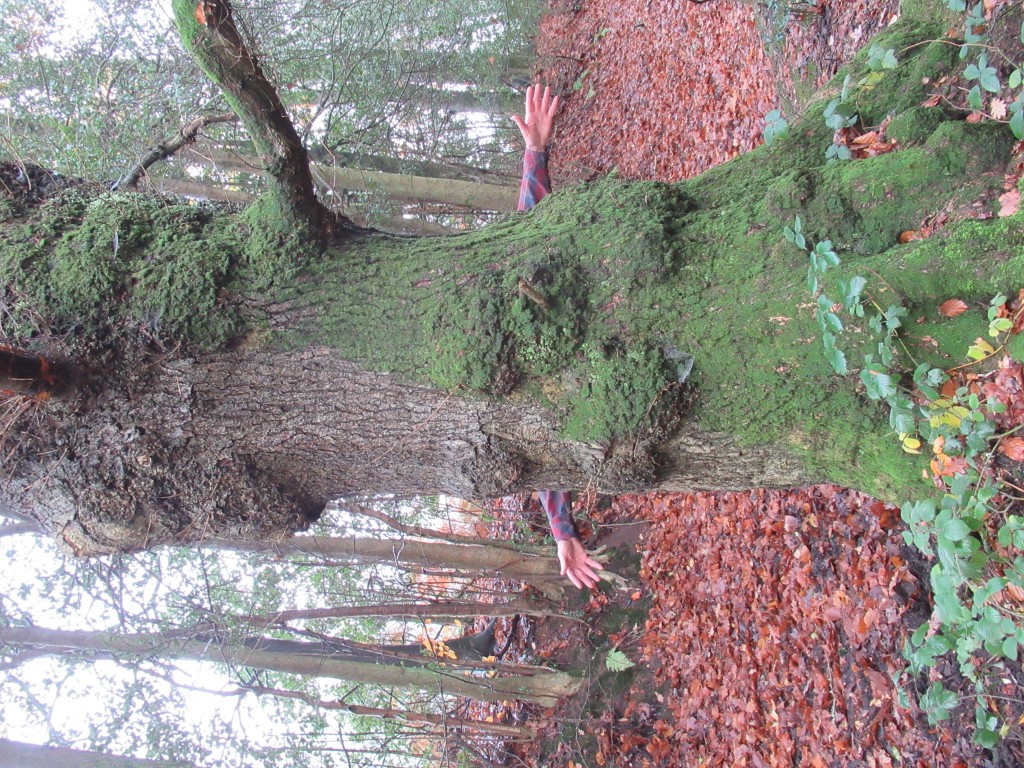
Tree hugger
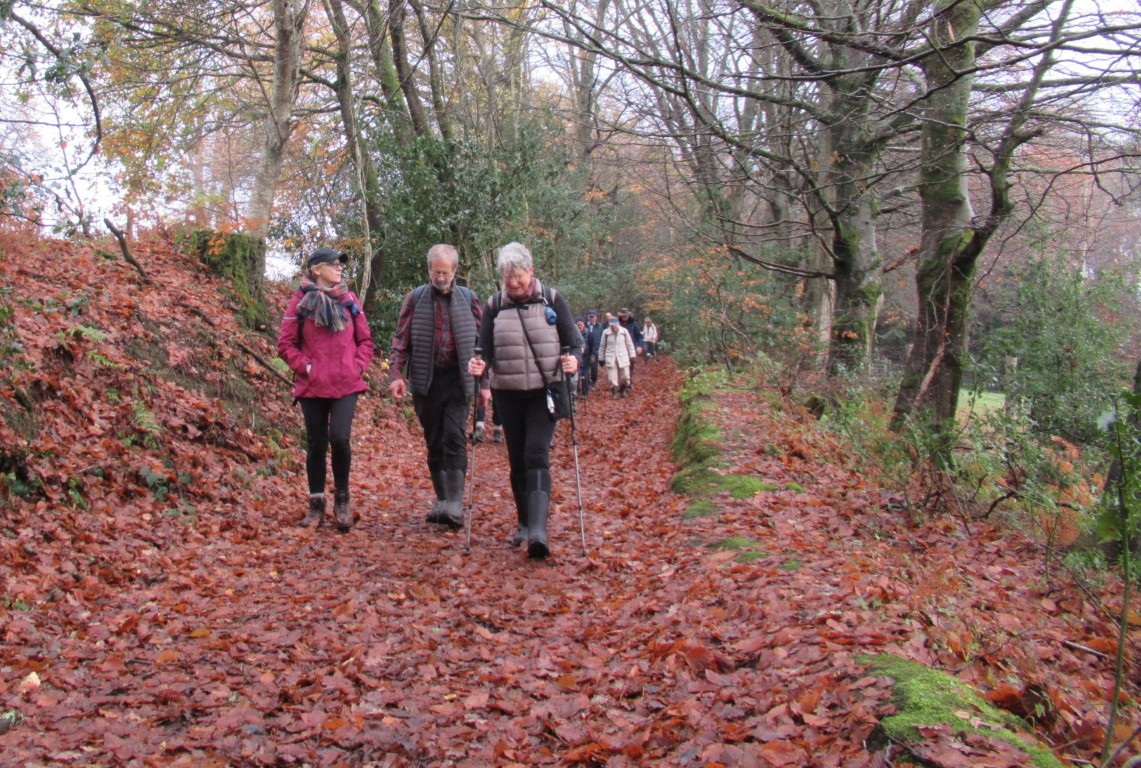
Autumn is very much in the air
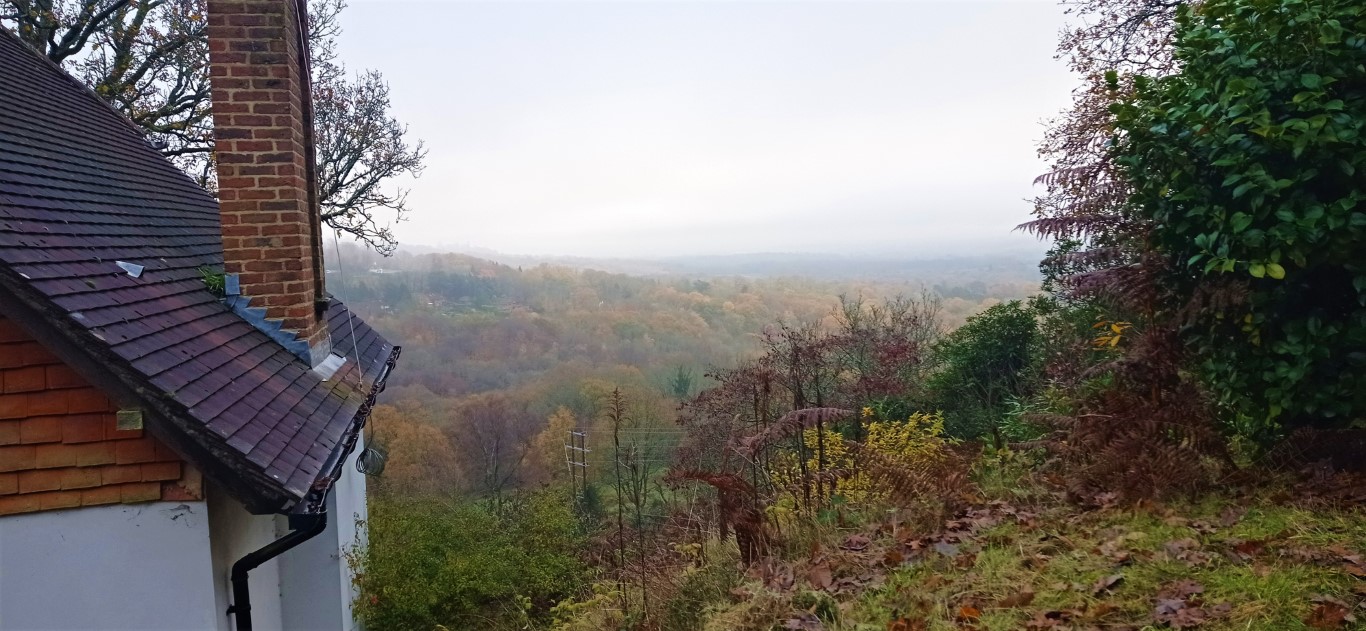
That looks a bit brighter
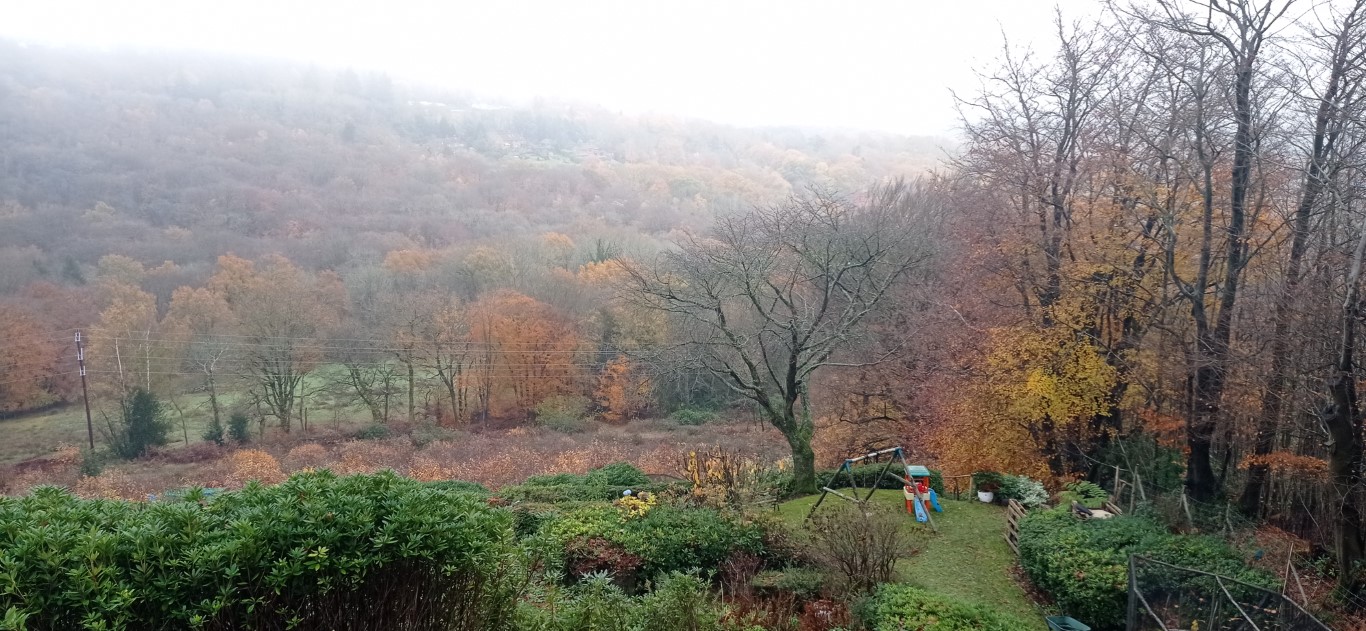
View towards Fridays Hill and Blackdown
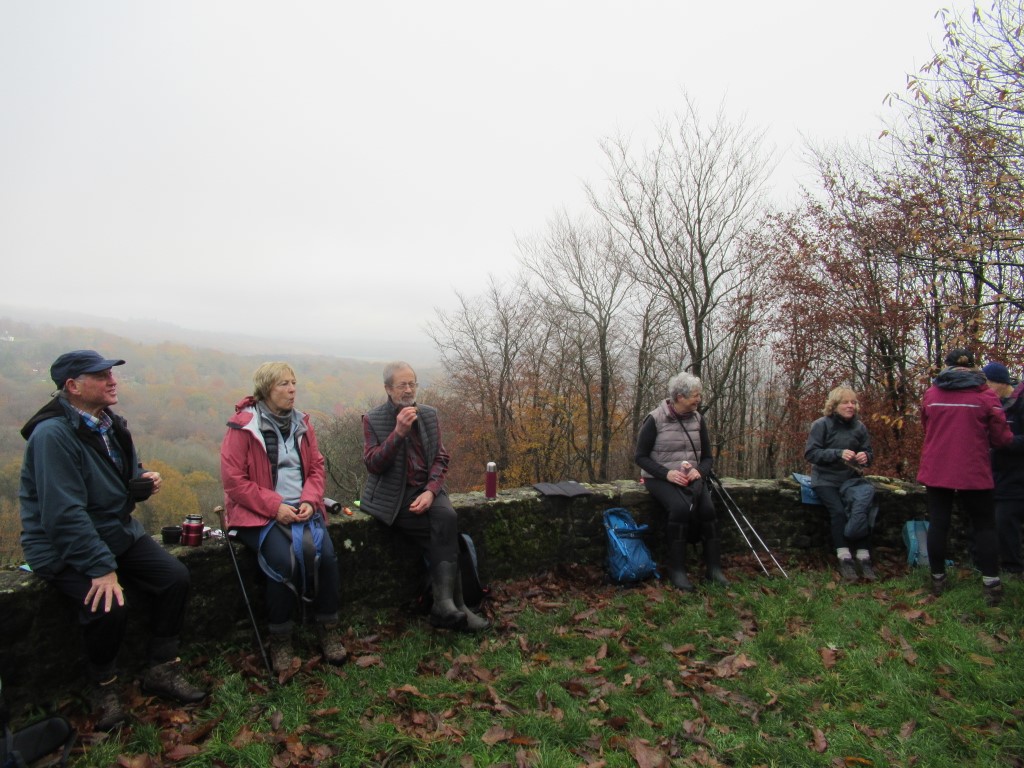
Ideal spot for a picnic
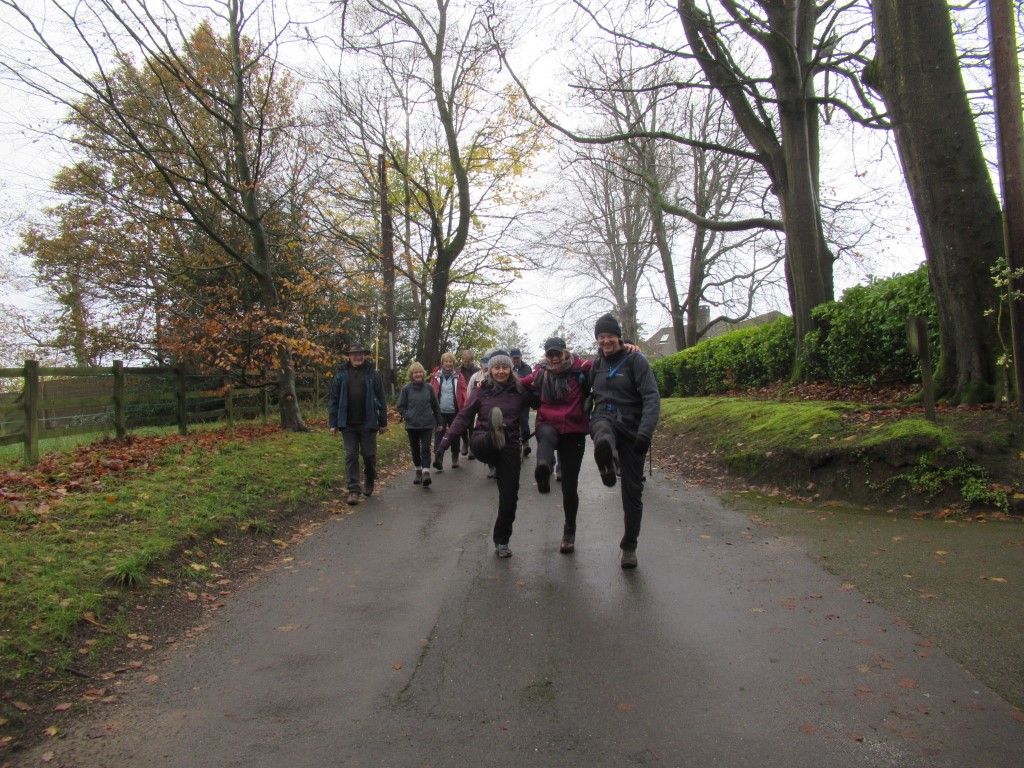
High kickers
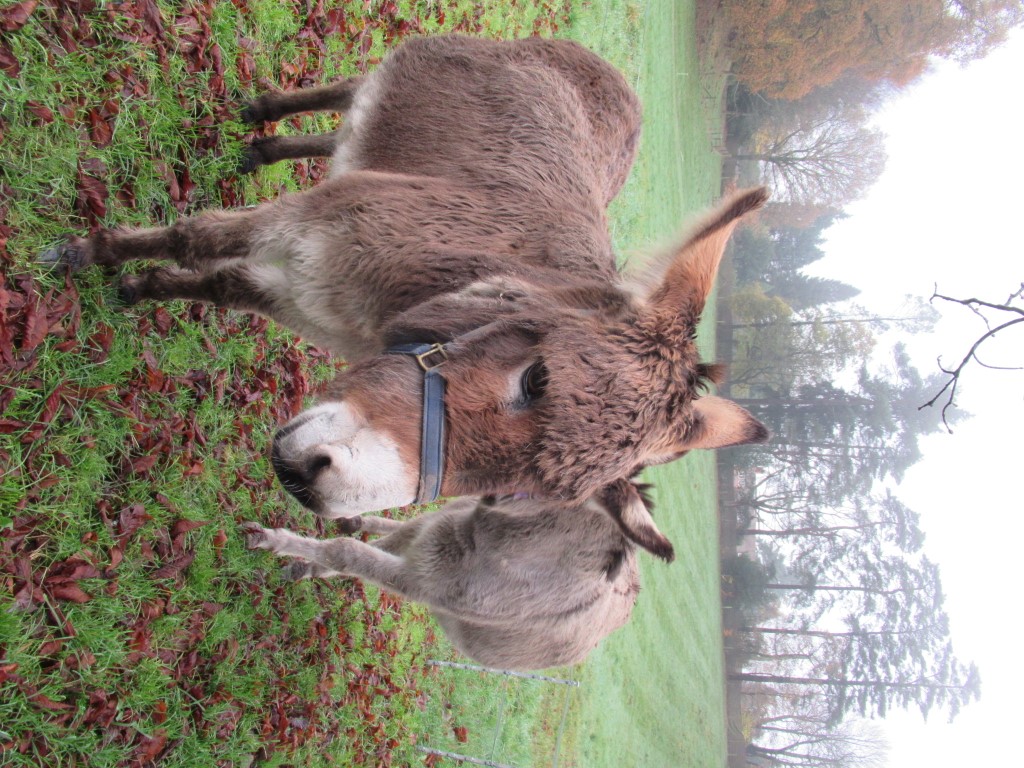
"I've heard there's some work experience stuff coming up soon in Bethlehem."
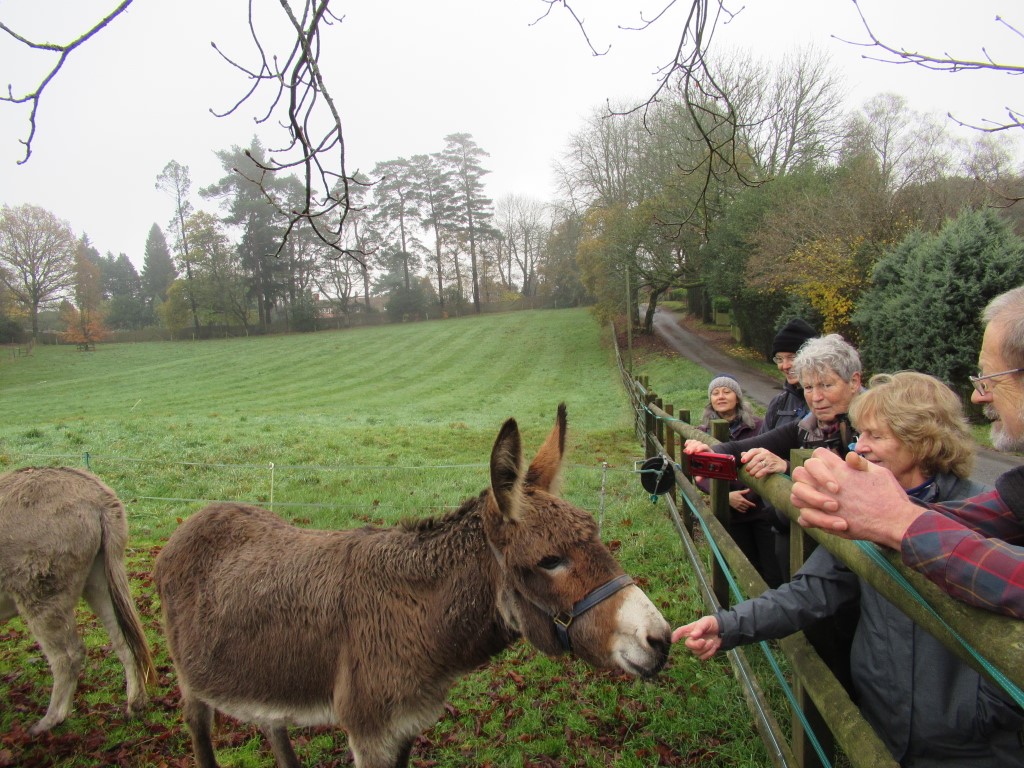
"Meanwhile I'll just humour these walkers."
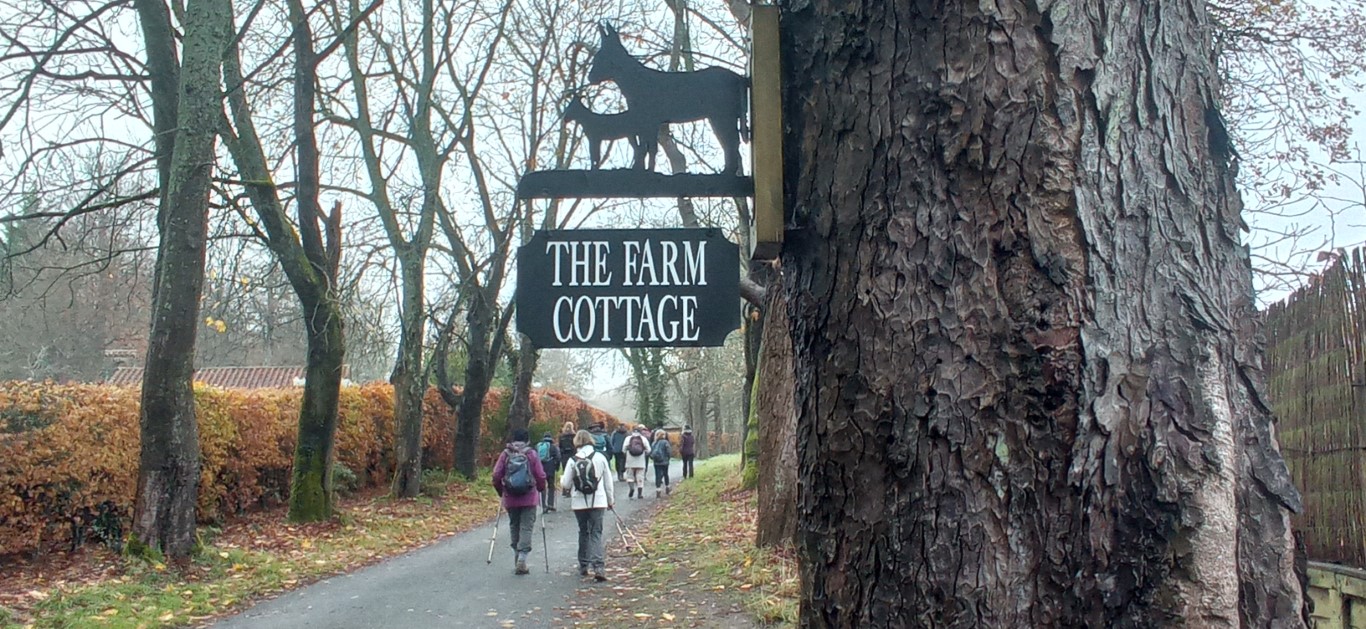
Donkey house
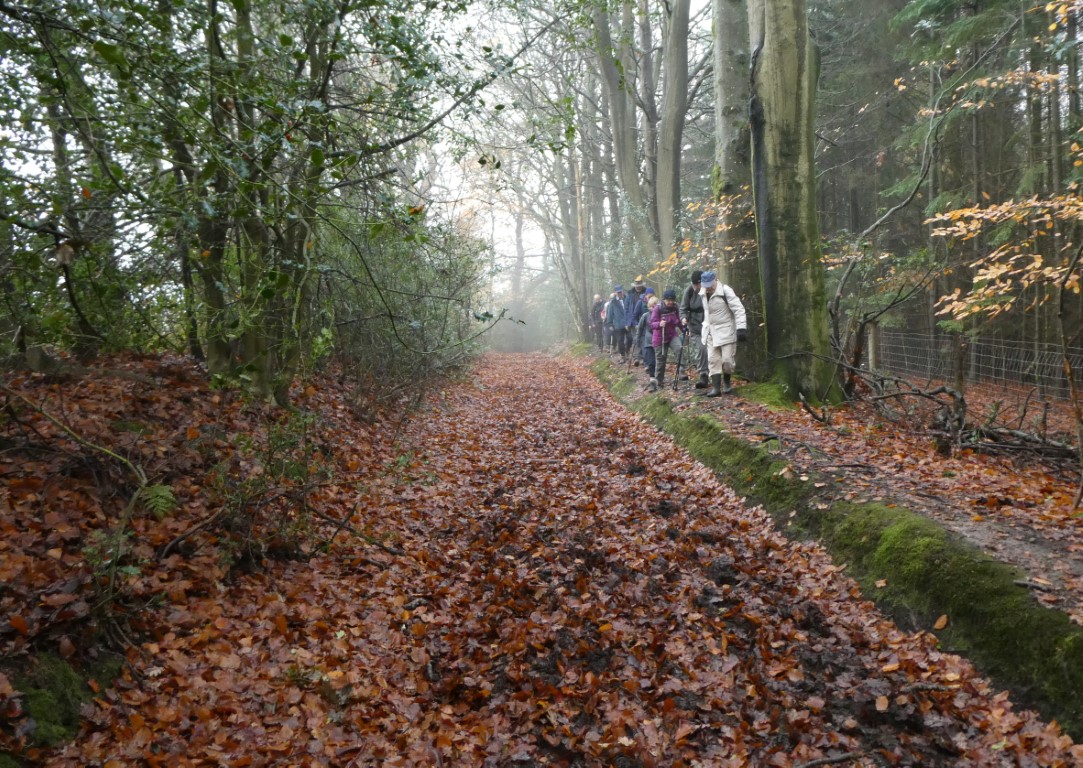
Nice high bank to avoid the river of mud and leaves
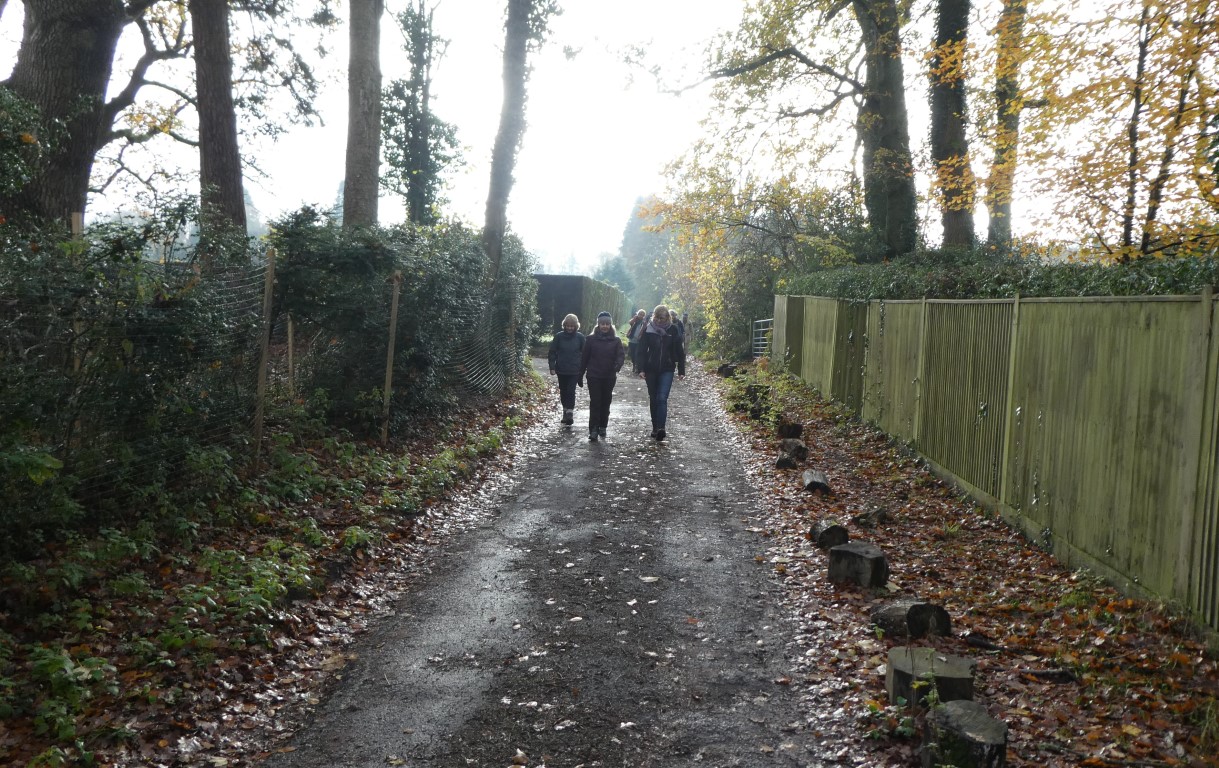
Homeward bound.
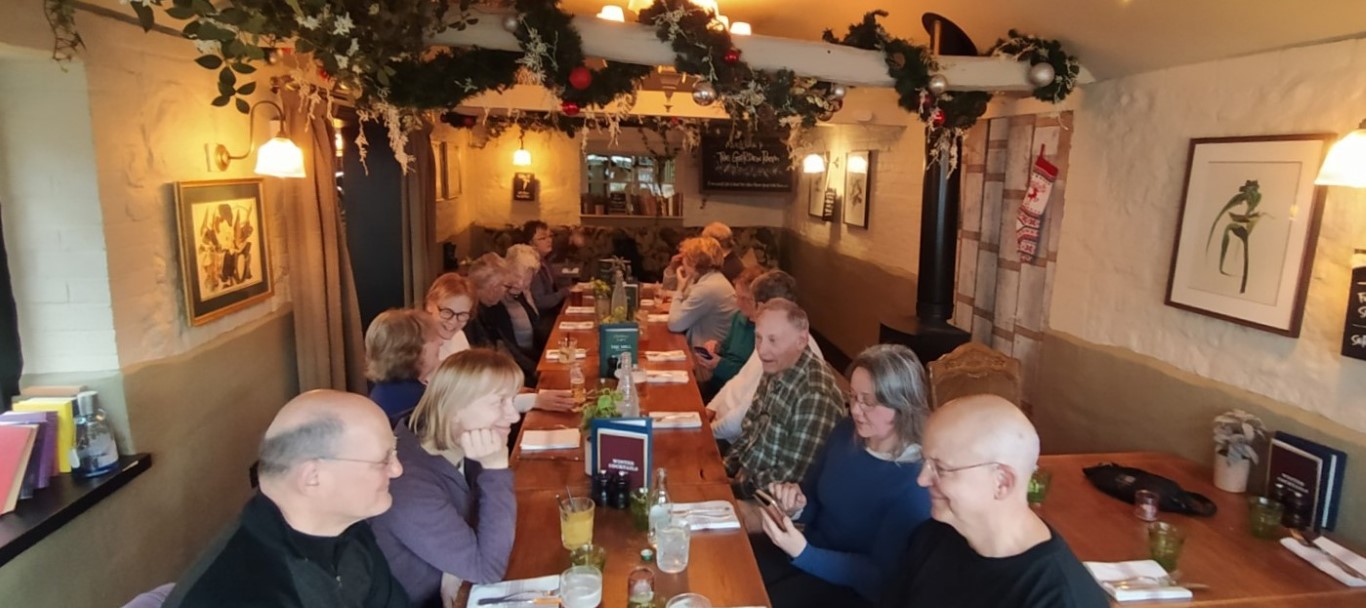
Great lunch at The Mill Tavern.
Weavers Down walk on 23rd November 2022
The rain had been heavy overnight but thankfully stopped by 10.00am and we had bright sunshine for our walk over the Weavers Down area. Starting out from The Deers Hut in Griggs Green we headed across the common to the north of Forest Mere, before turning south to skirt the renowned health spa. A couple of days may be a bargain at £630, and it may or may not include the " tension-relieving hot stone back massage and deeply relaxing scalp & foot massage." We resisted the temptation to spoil the walk and instead found a pleasant spot under the trees to have a short picnic, which, if not quite so relaxing, was definitely cheaper. After a walk alongside the Liphook Golf Course, we turned into Foley Manor and a wander down the drive to find a magnificent statue of Lord Strathnairn. It was in storage for 33 years after being found to be in the way of a new subway for Knightsbridge underground station. Eventually Westminster Council gave it/sold it to Foley Manor on condition it would be accessible to the public. Lord Strathnairn died aged 84 in Paris, was buried in Christchurch, Hants and never married. A heroic leader and strategist, he walked from Mount Lebanon to Beirut so that some of the elderly American missionaries he had rescued could be carried on his horse. When in command of the Central Indian Forces of 1,540 men, he routed 20,000 men of Tatya Tope's army. Guns captured by him during this period were later melted down to be used for his statue. After this we continued through the Foley Estate until we reached the path below Holly Hills, this path eventually leading us back to our start point. The Deers Hut was serving some excellent food, especially the bacon and brie baguette! The walk was about 4 miles.
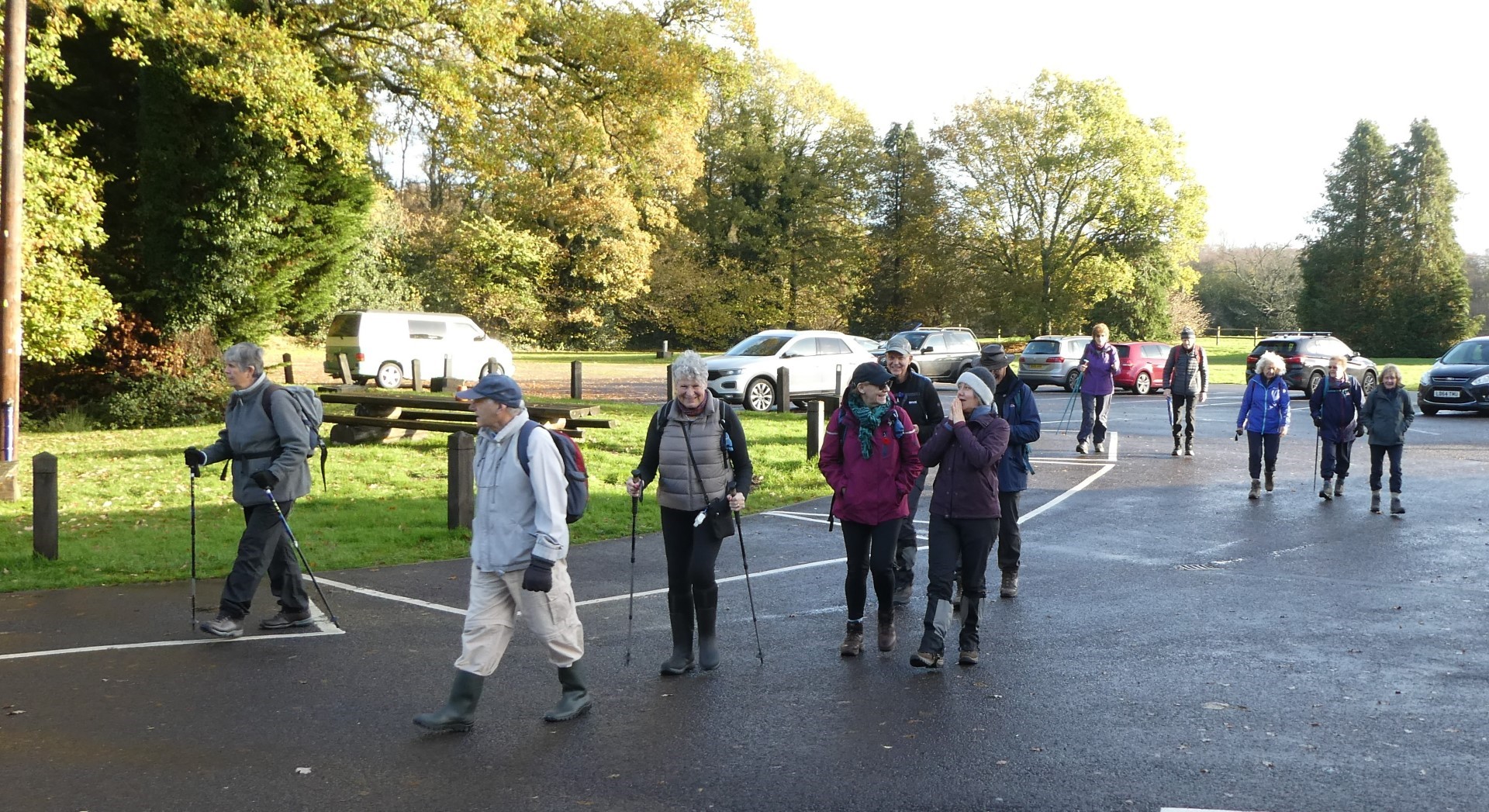
Starting out
.jpg)
Early morning rain hasn't quite all soaked away into the sand of Weavers Down
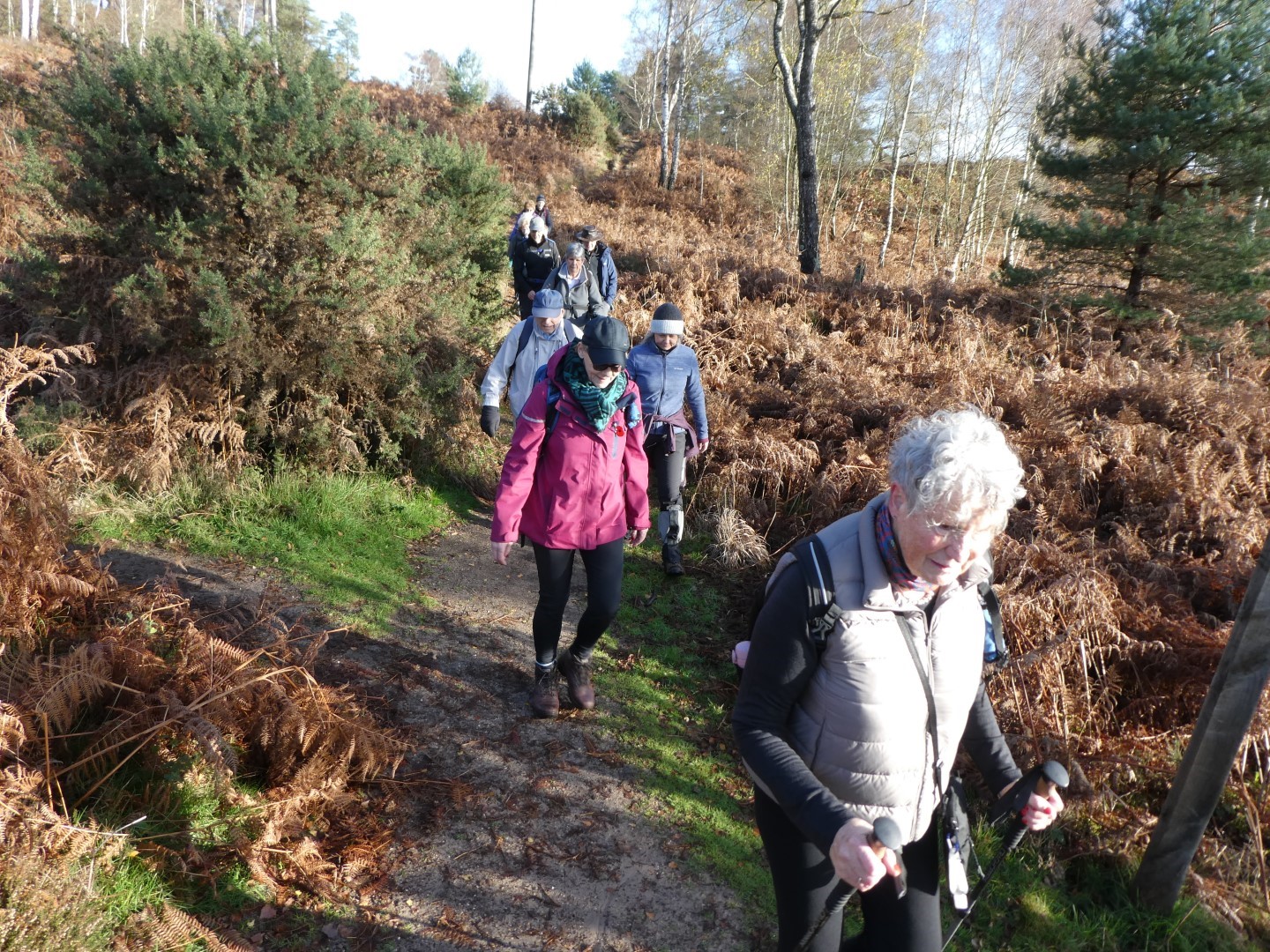
Bright sunshine was very welcome
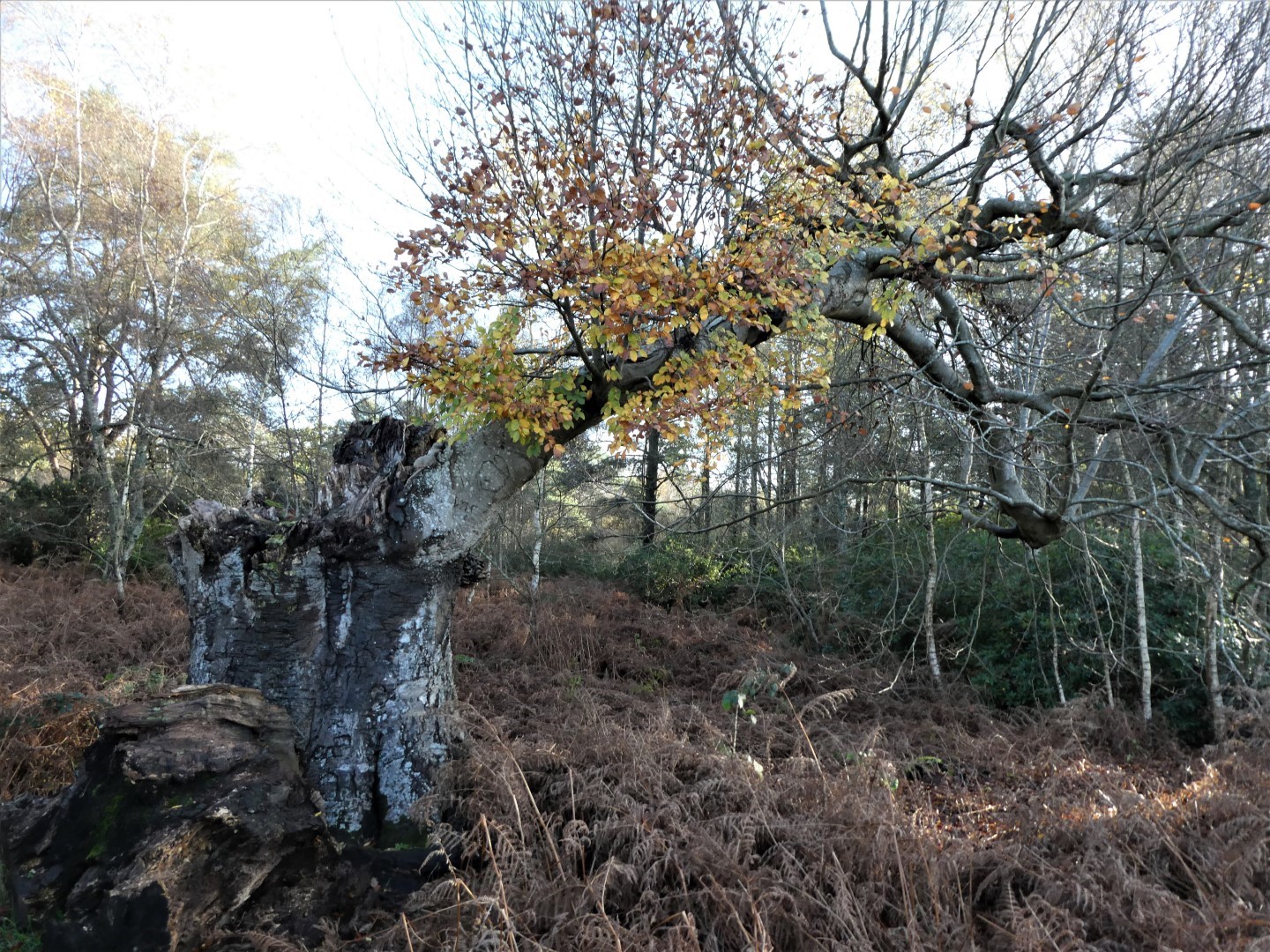
One branch struggling to survive
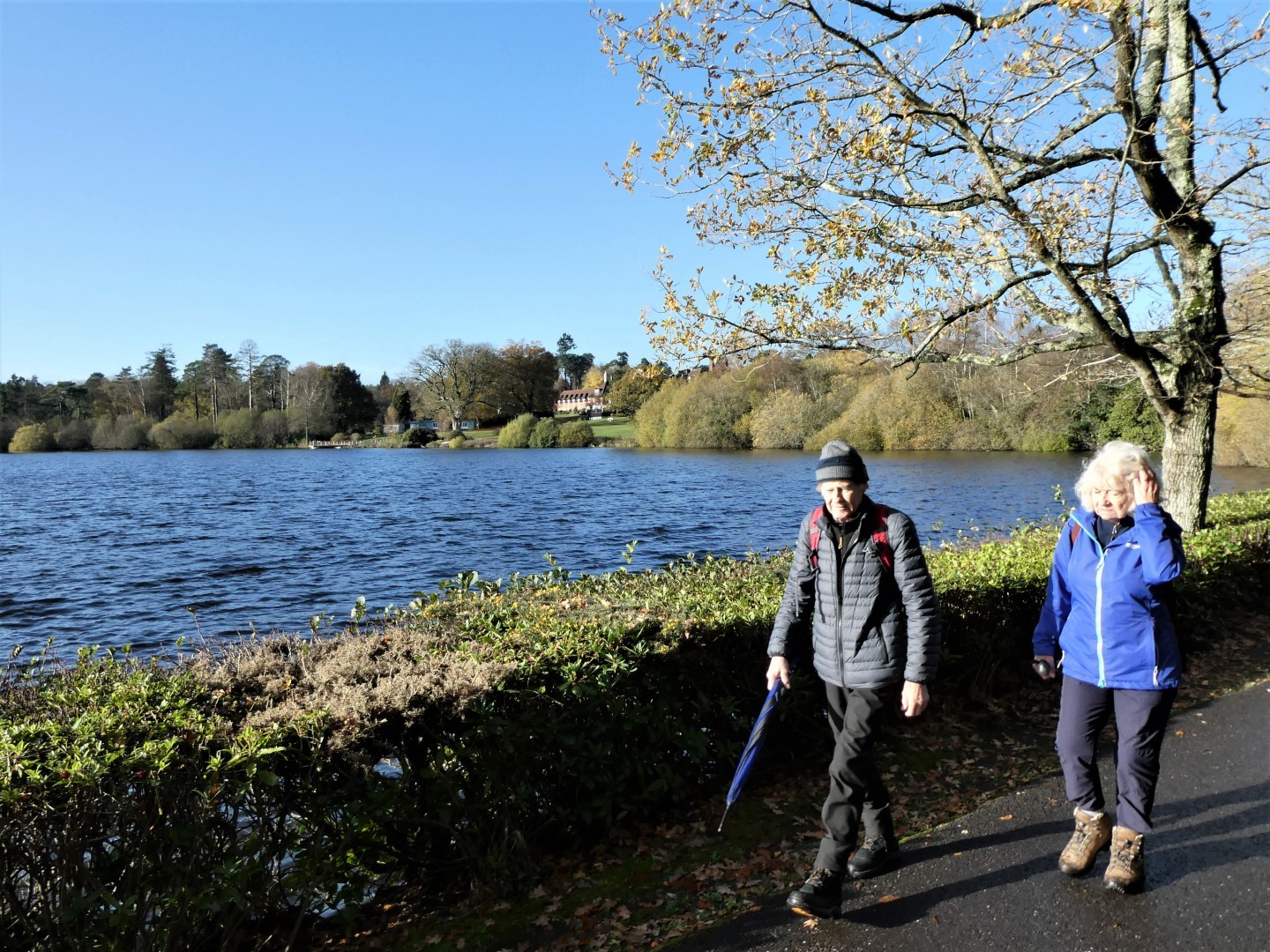
Forest Mere in the distance
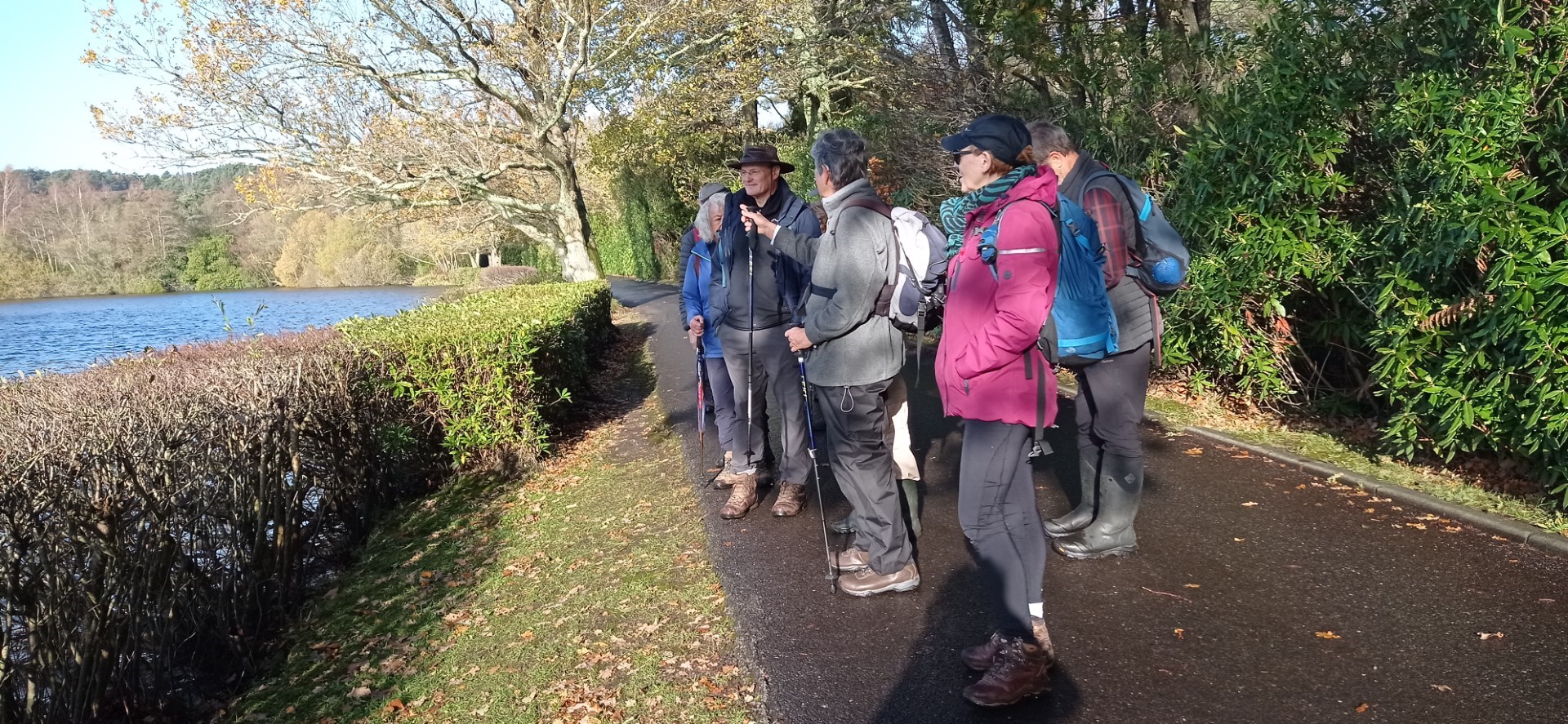
Bit too chilly for a swim
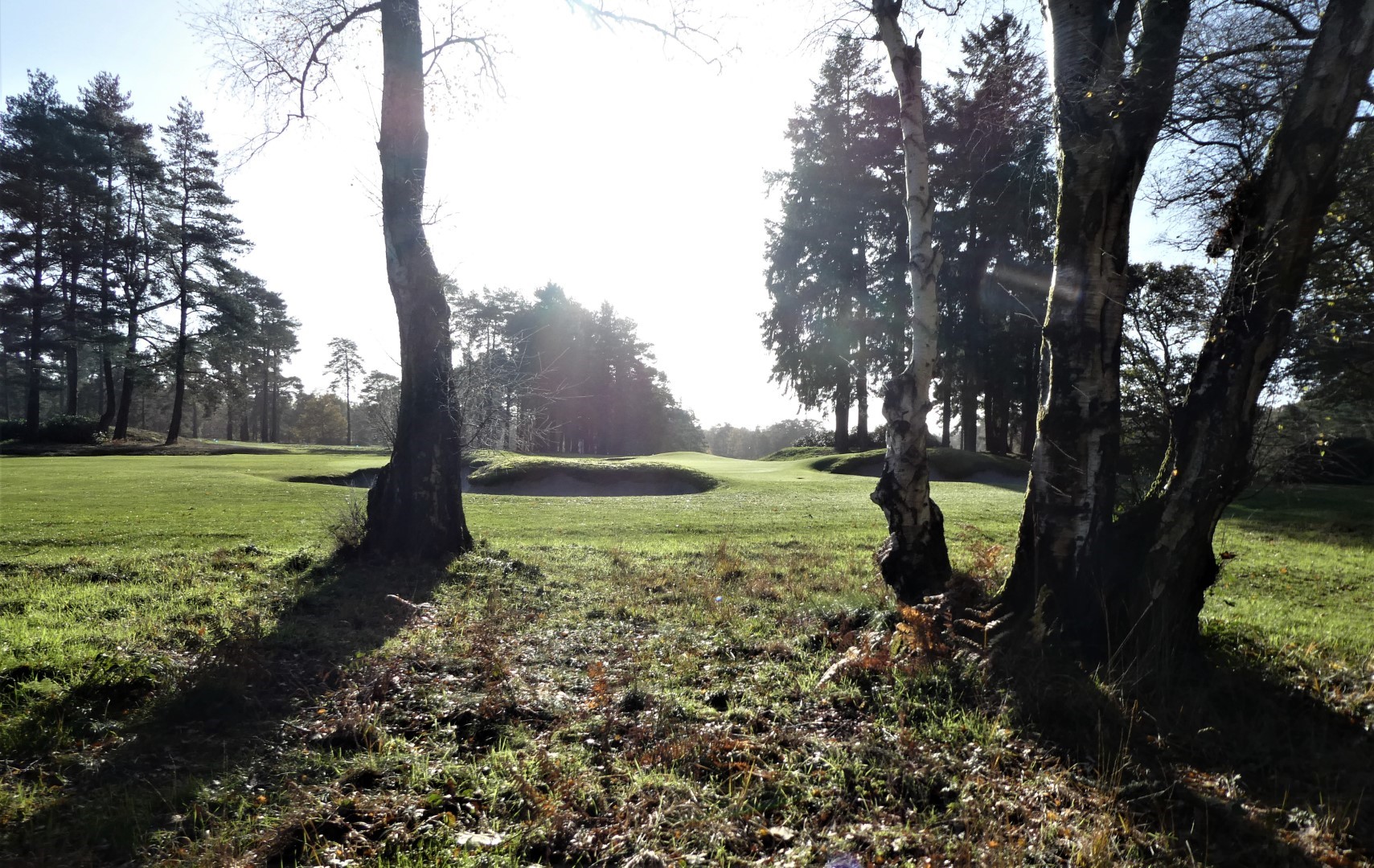
Liphook golf course, site of iron/bronze age tumulus (burial site)
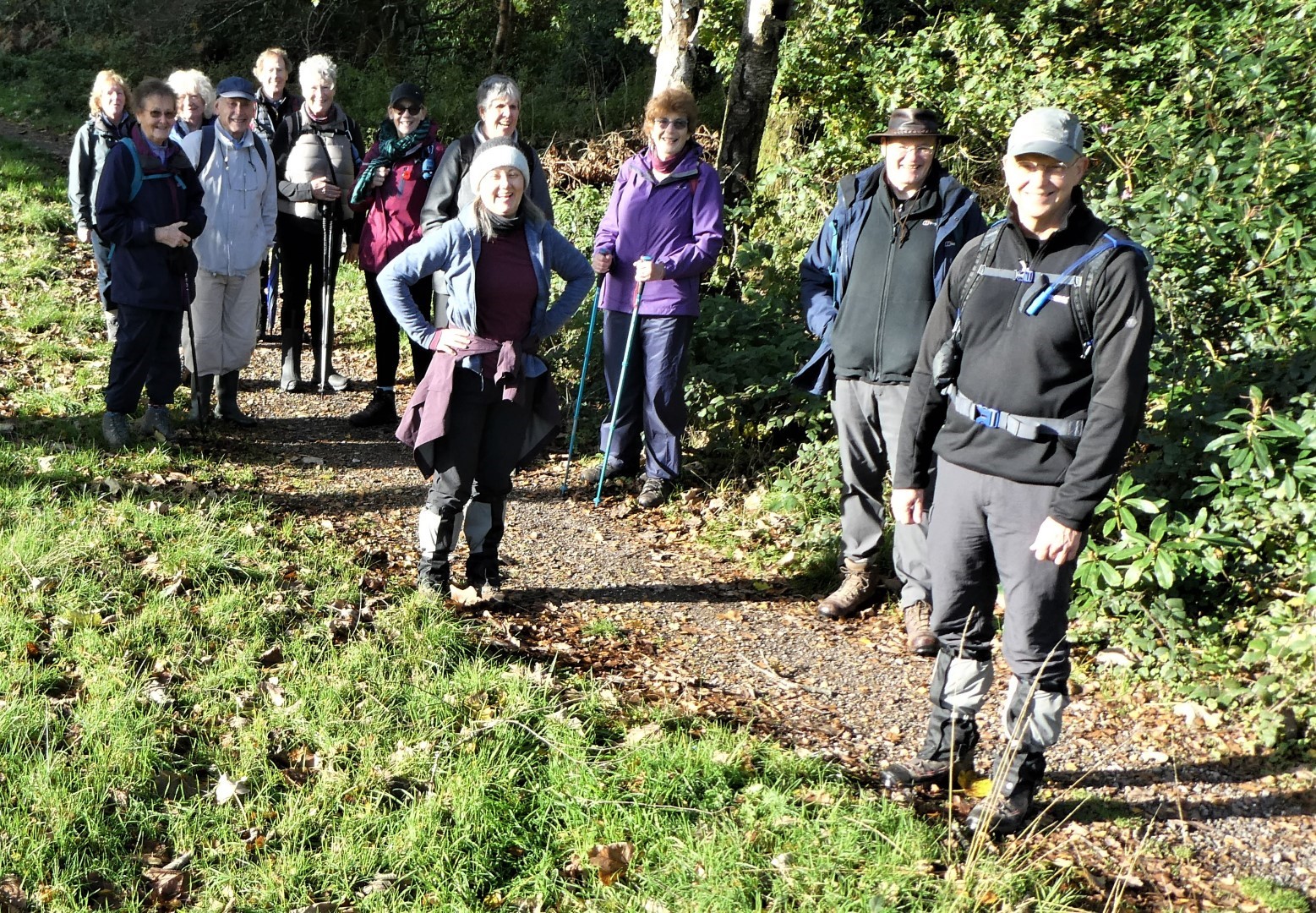
Walkers, no golf clubs in sight
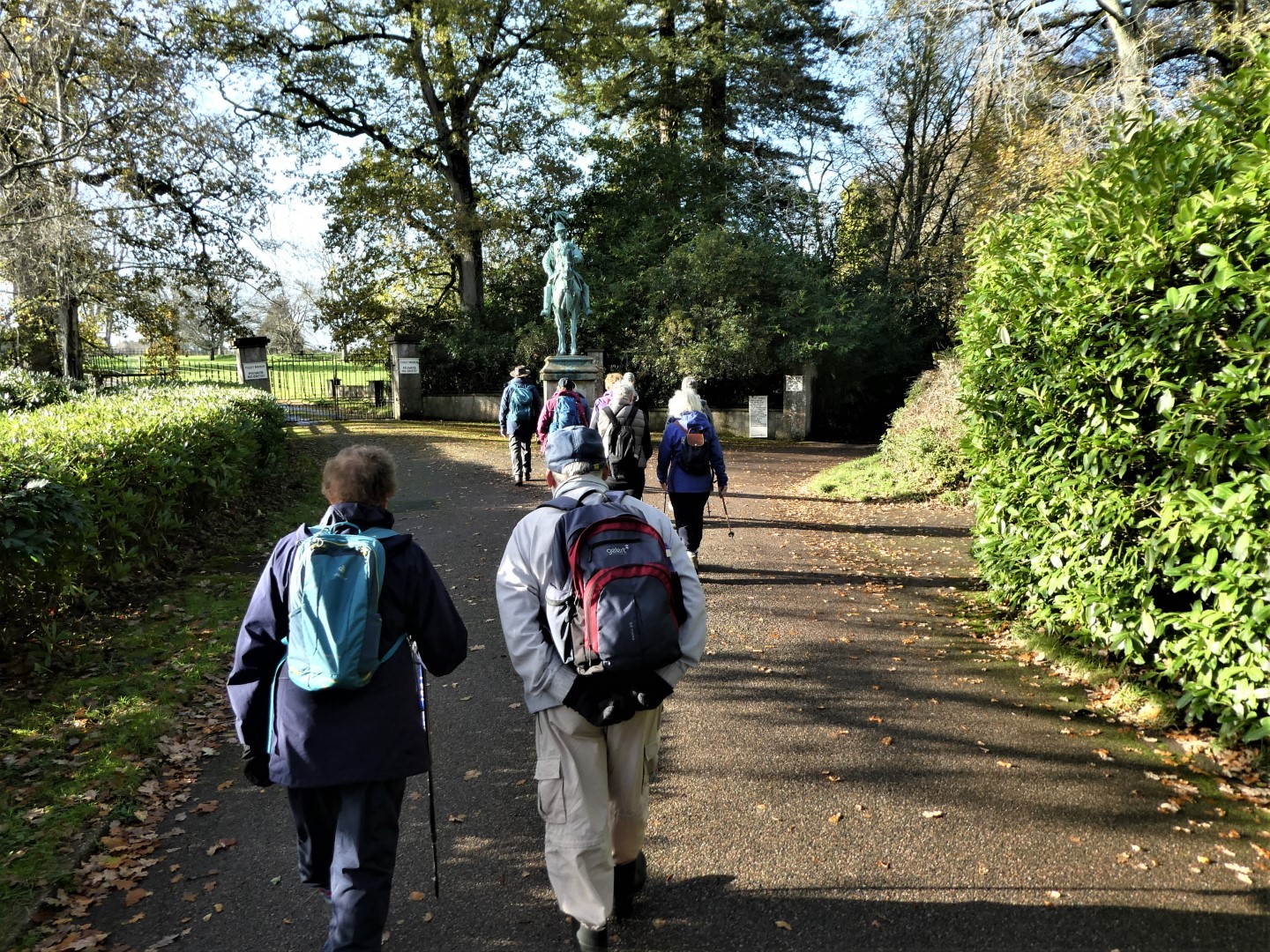
Foley Manor drive.
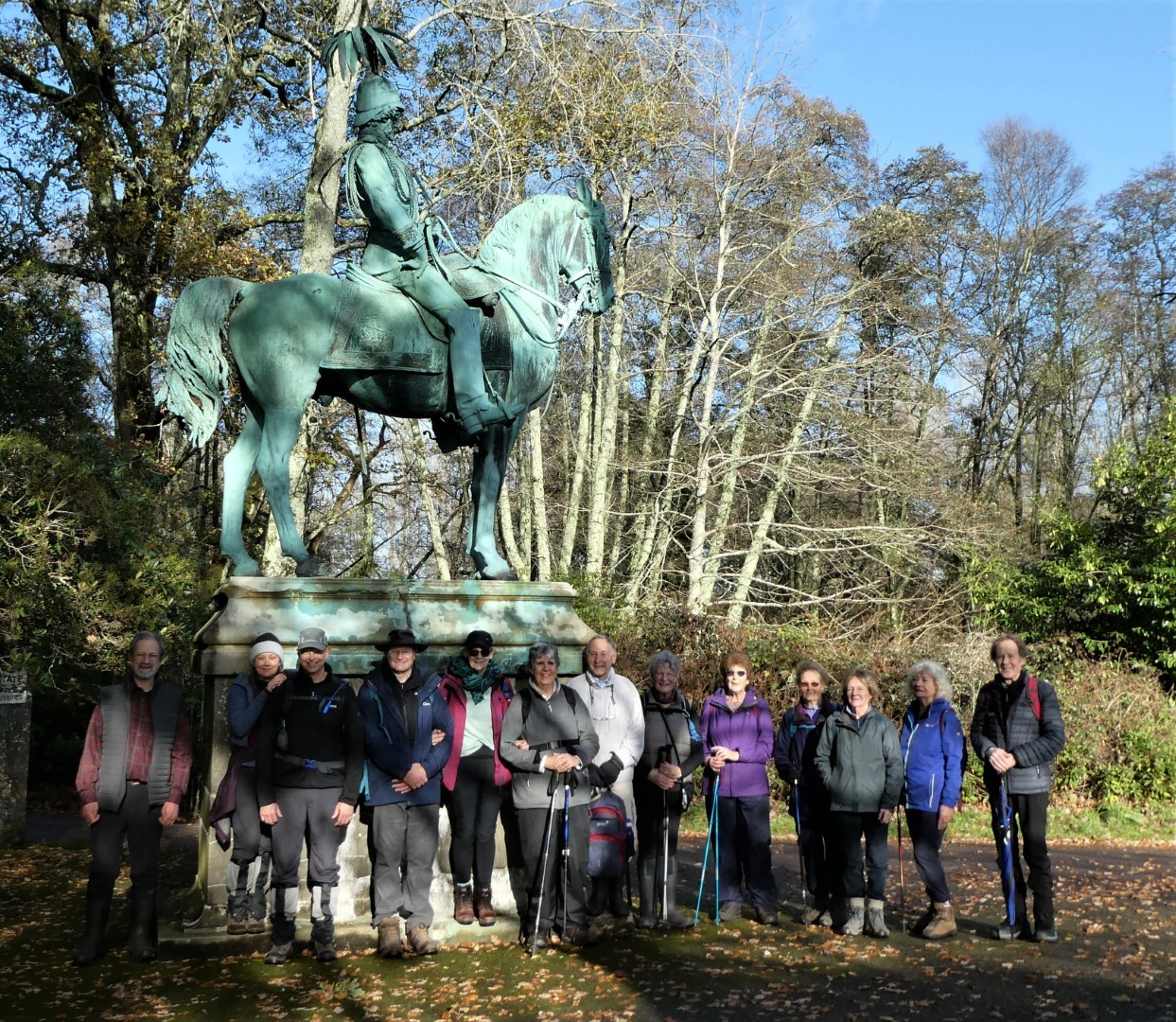
Lord Strathnairn and friends.
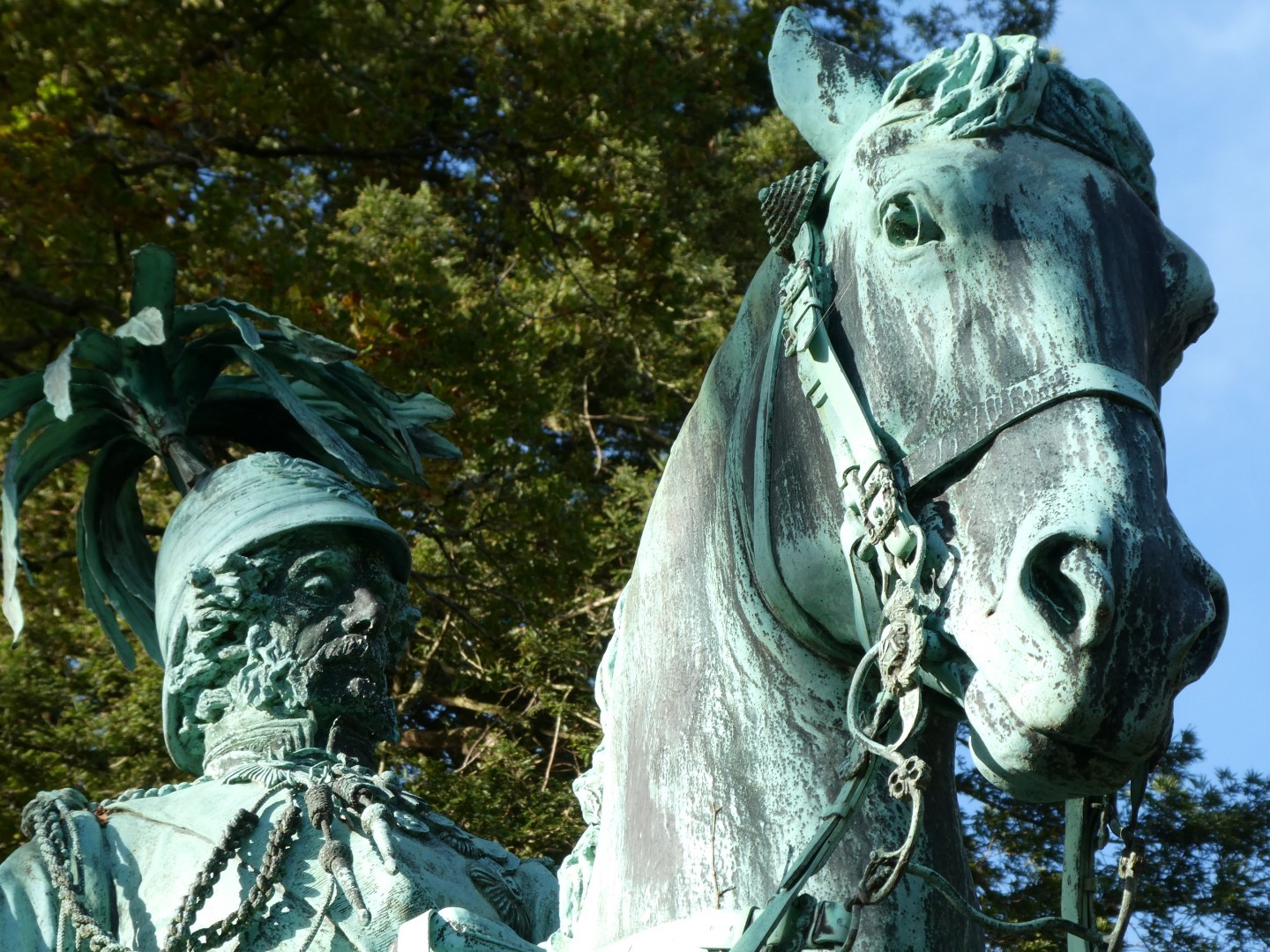
Statue made from captured guns, bronze being stronger than early iron and steel.
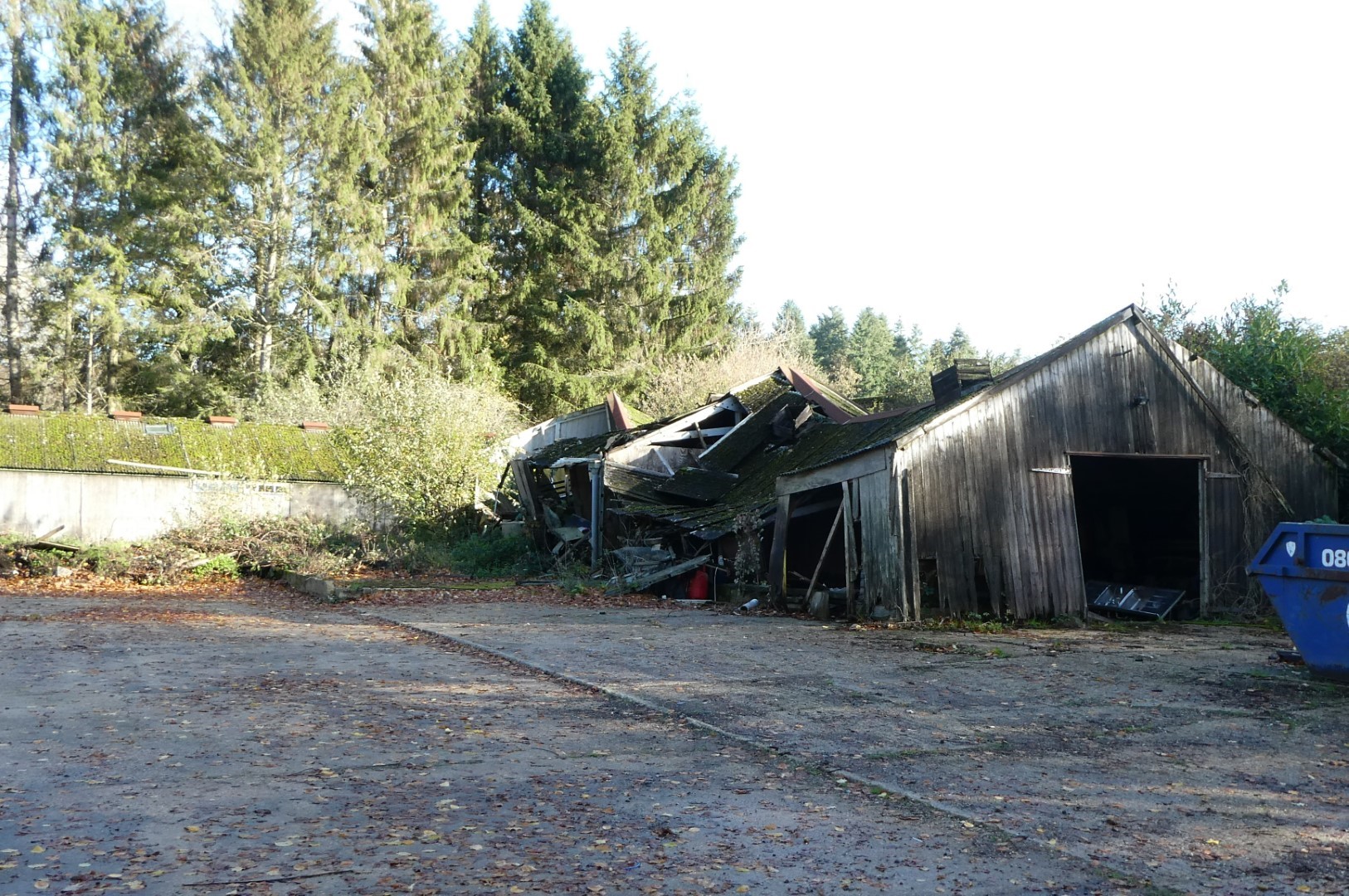
A bit of pollyfilla and paint is all it needs for a complete restoration
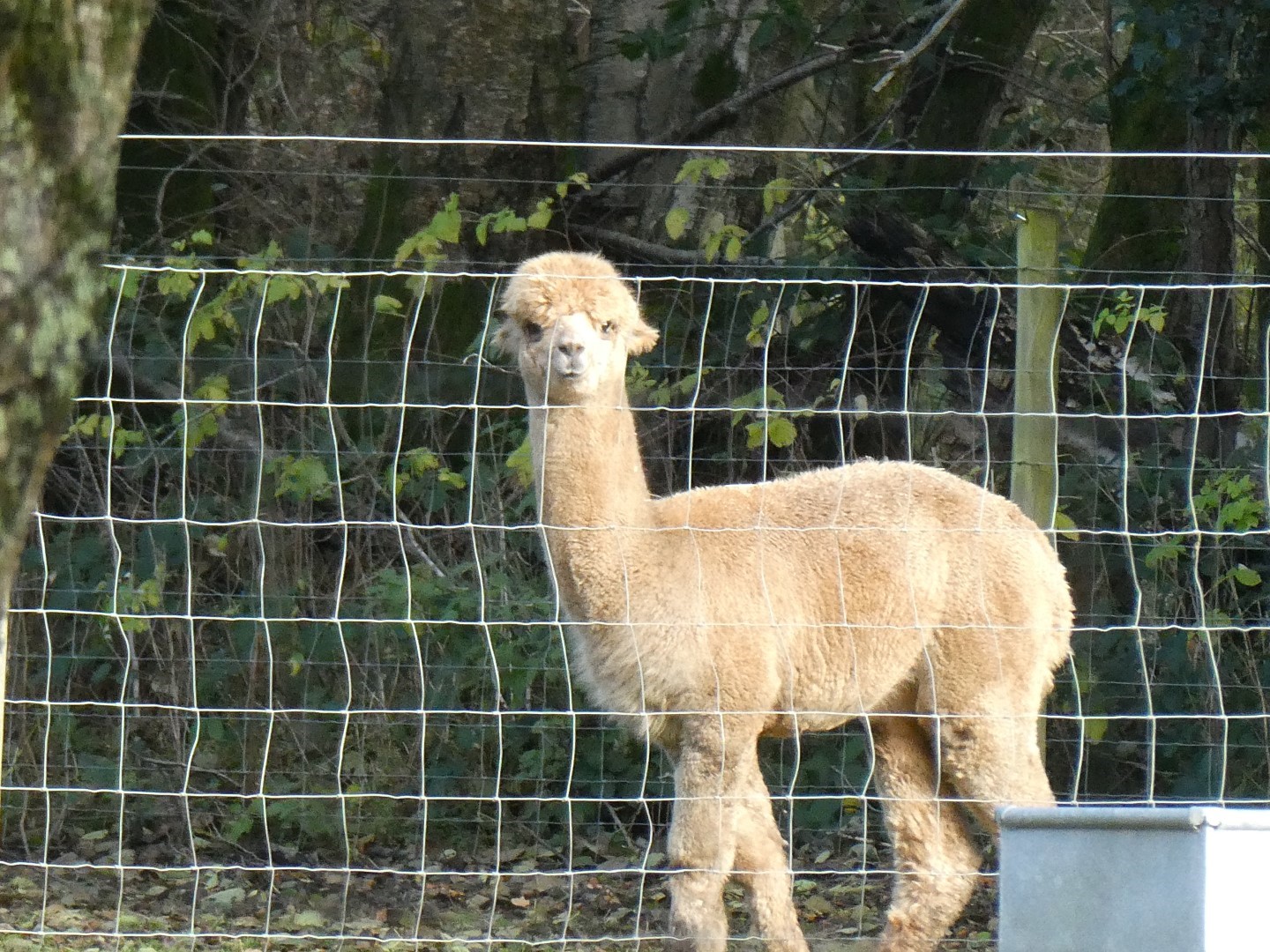
Young alpaca wondering what those people are doing over there
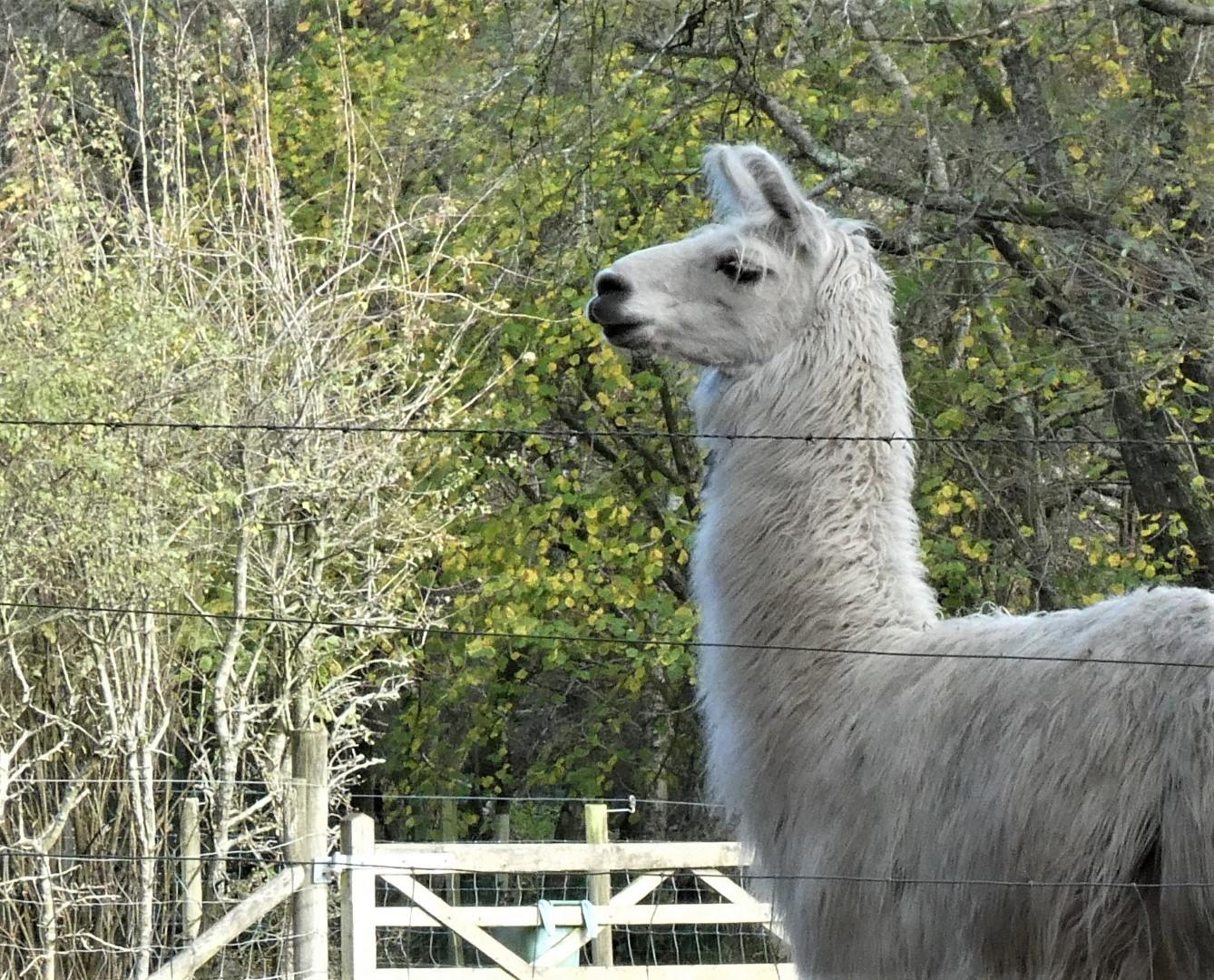 #
#
Adult llama knows they're just walkers
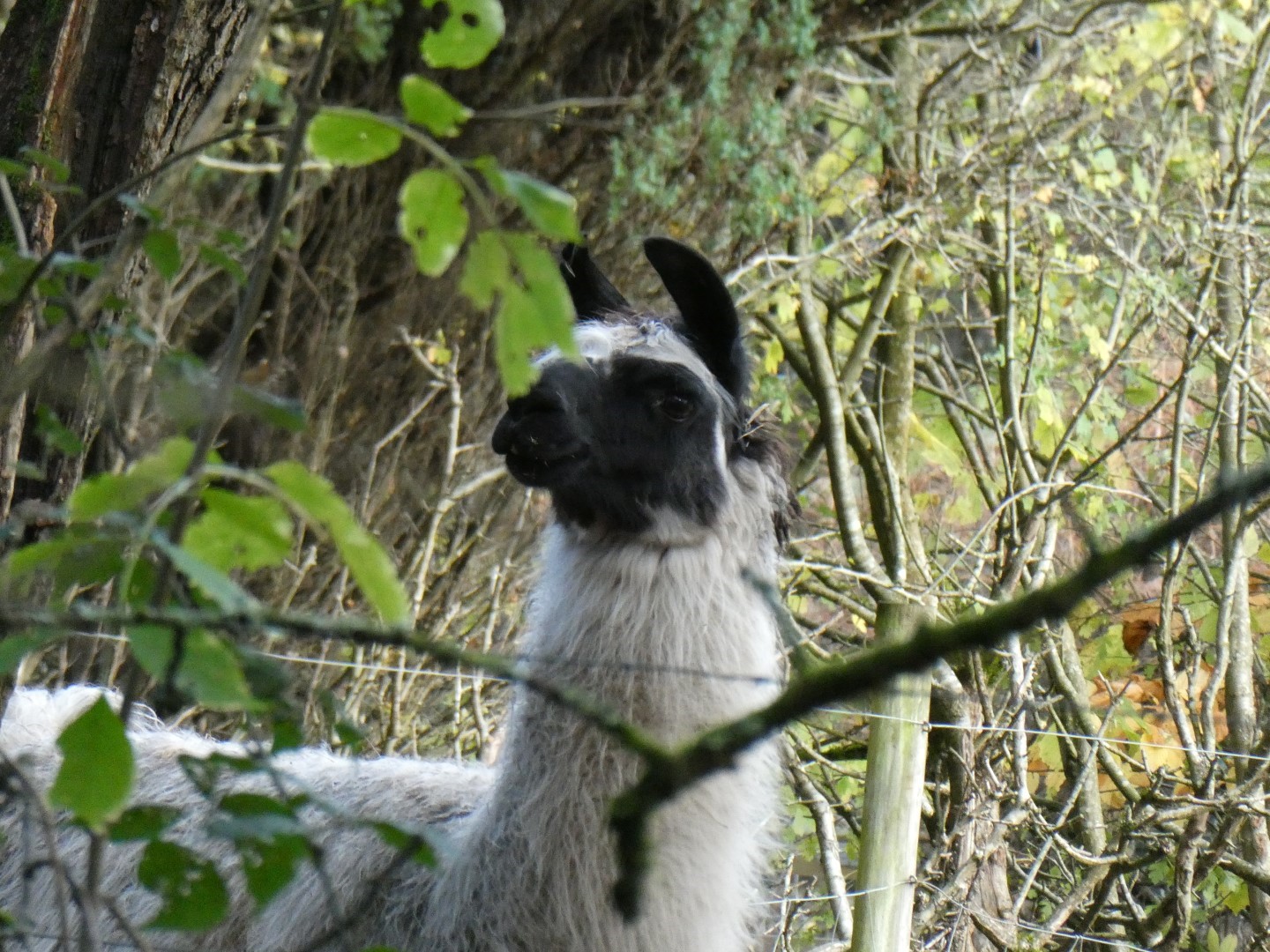
Never trust a llama wearing a mask
.png)
About 4 miles
Byworth Walk on 16th November 2022
The 4.6 mile walk promised a fountain, picturesque woodland and great views of the South Downs and rolling countryside up to Black Down based on the pre-walk. The weather was not promising as we started at The Welldiggers Arms at Low Heath, slid down the mudslide to Hallsgate Farm where we encountered the Tardis that the blue paint had burnt off during re entry before walking up to the picturesque houses of Byworth. The path cut behind The Black Horse Inn where the promised fountain was not working, but a double rainbow lifted our spirits. Descending the hill revealed a new tributary that was absent on the pre-walk to the bridge over the stream. This new tributary competed with the stream for width and depth requiring some acrobatics to access the bridge. From here, the rise through the woodland and open heath to Petworth were uneventful. The Serpentine Trail was picked up near the Grade II listed Sacred Heart Church and the sun greeted us as we walked down the valley and up the other side where we were rewarded with fine views across to Black Down. Ascending again through a copse to Brinkshole Heath where we stopped for a coffee break and a discourse on mushrooms. After crossing Riverhill Lane a right turn took us off the Serpentine Trail down the edge of Flexham Park to Riverhill and onto a path bounded by electric fences to Little Bognor where we were met by enthusiastic horses. The Victorian post box and historic houses were admired before we crossed a field with great views of the South Downs. Our final leg was through Egdean Common and Low Heath back to The Welldiggers Arms where we were treated to a well-earned lunch.
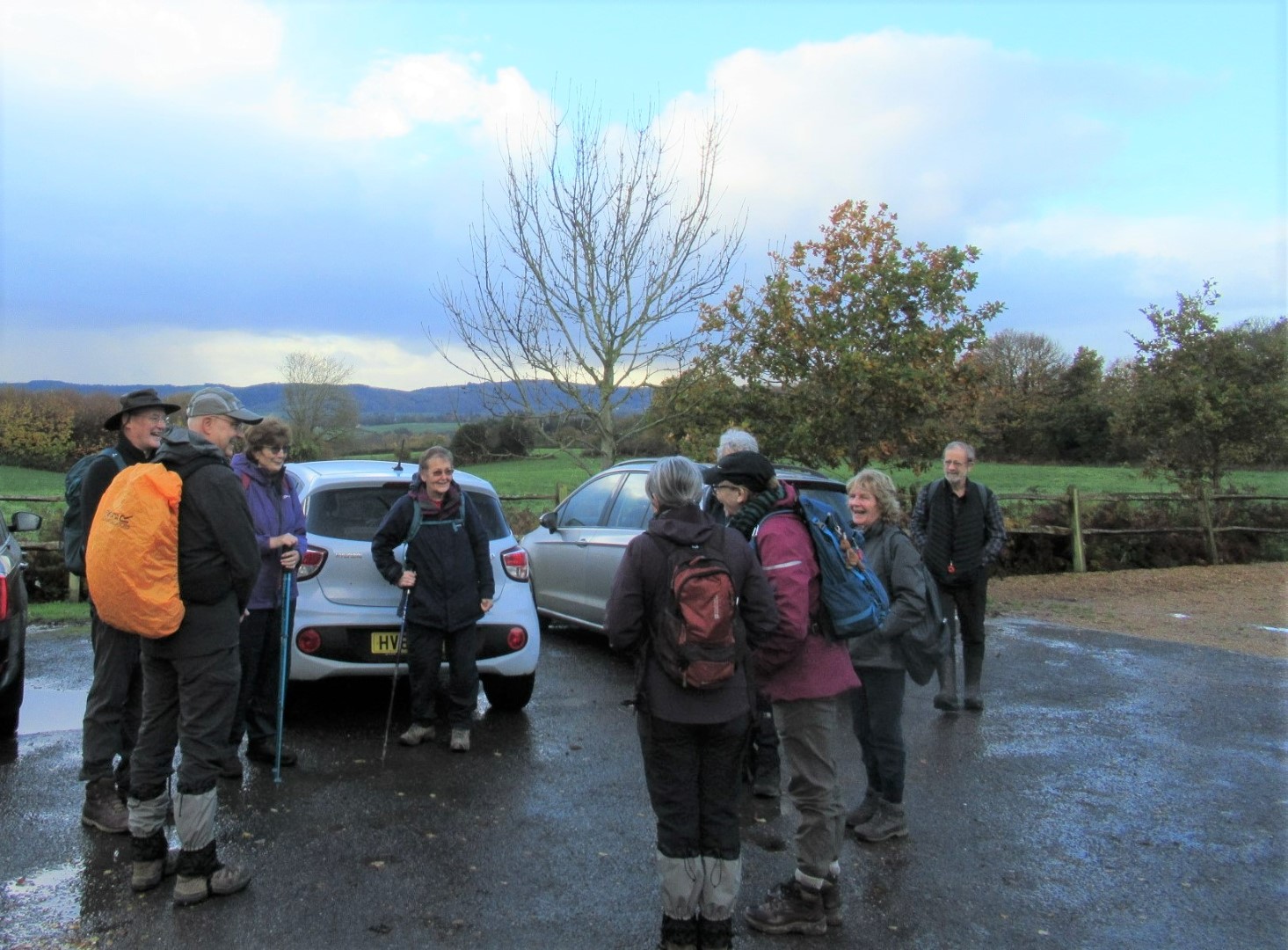
Ready for the start, hoping the rain holds off
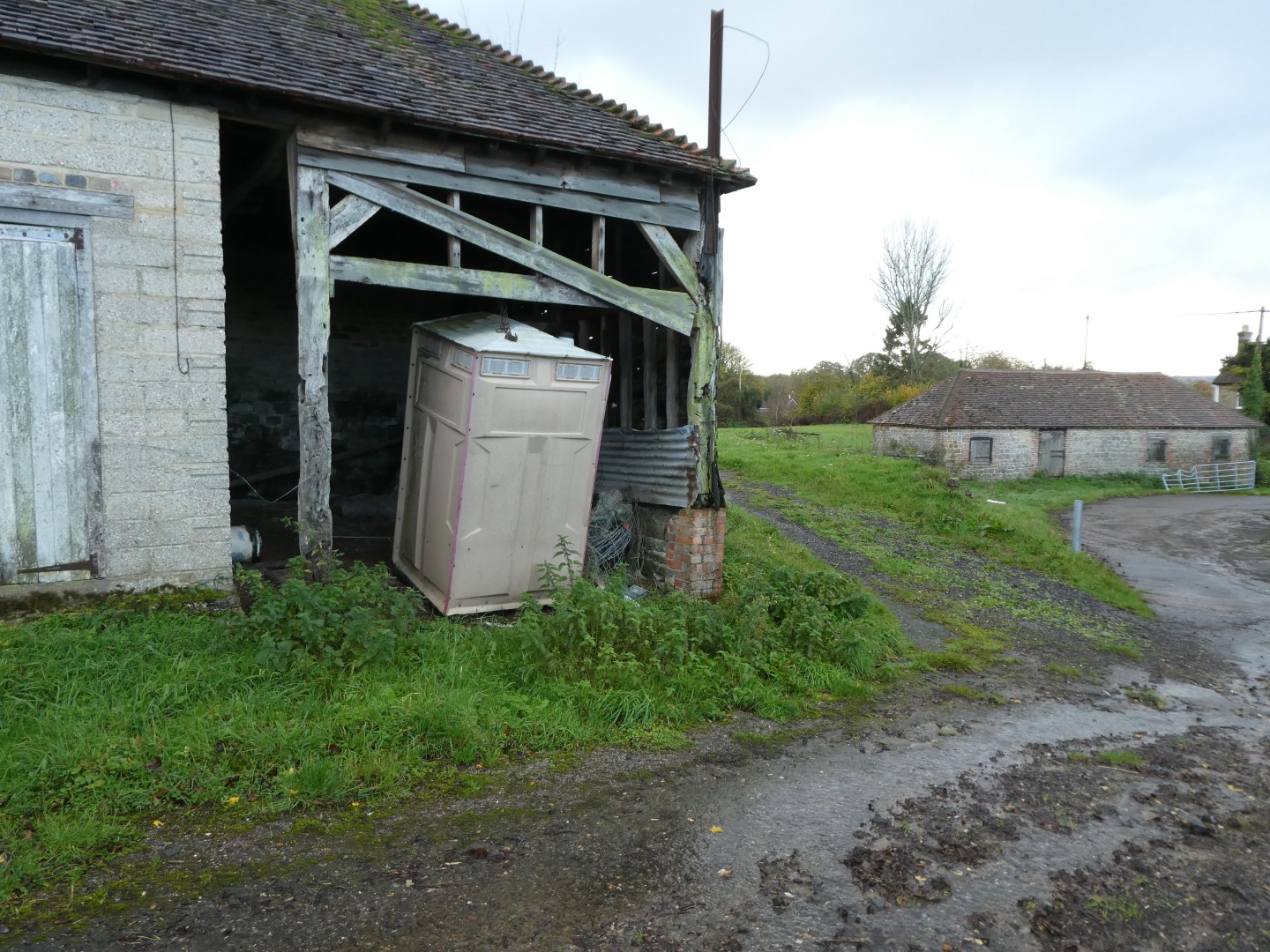
Tardis made a poor landing
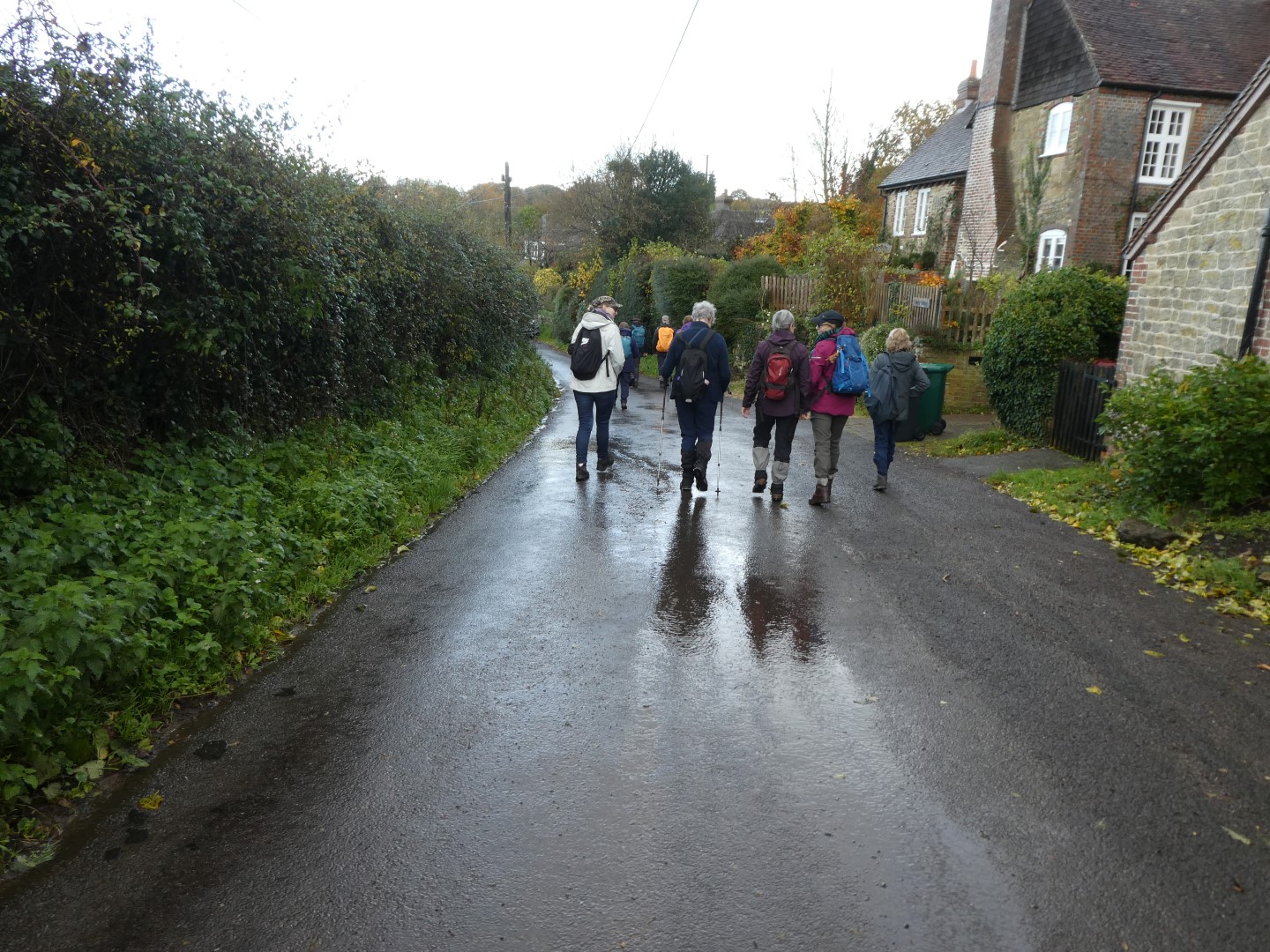
Walking in to Byworth
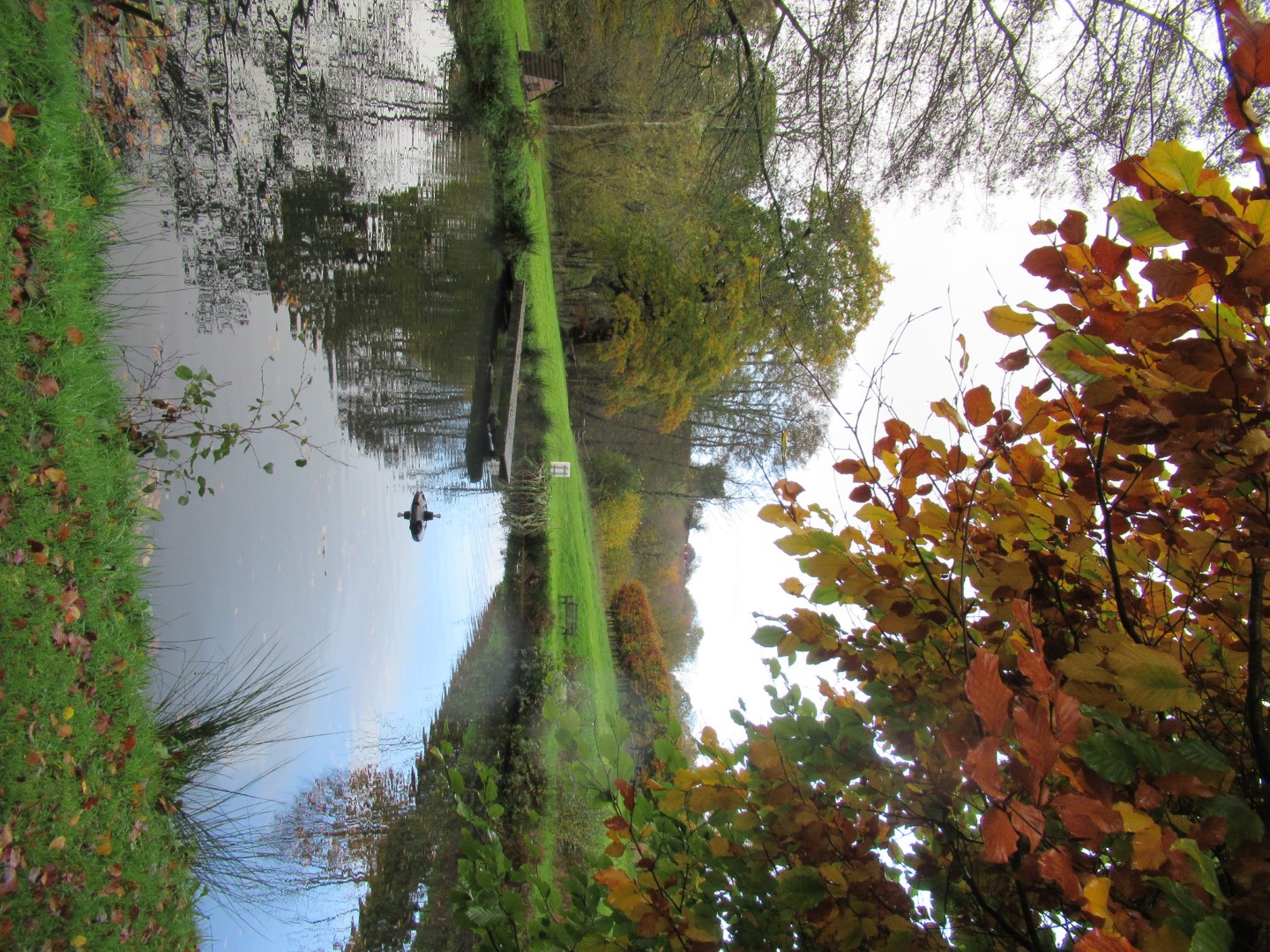
The fountain of youth spluttered out
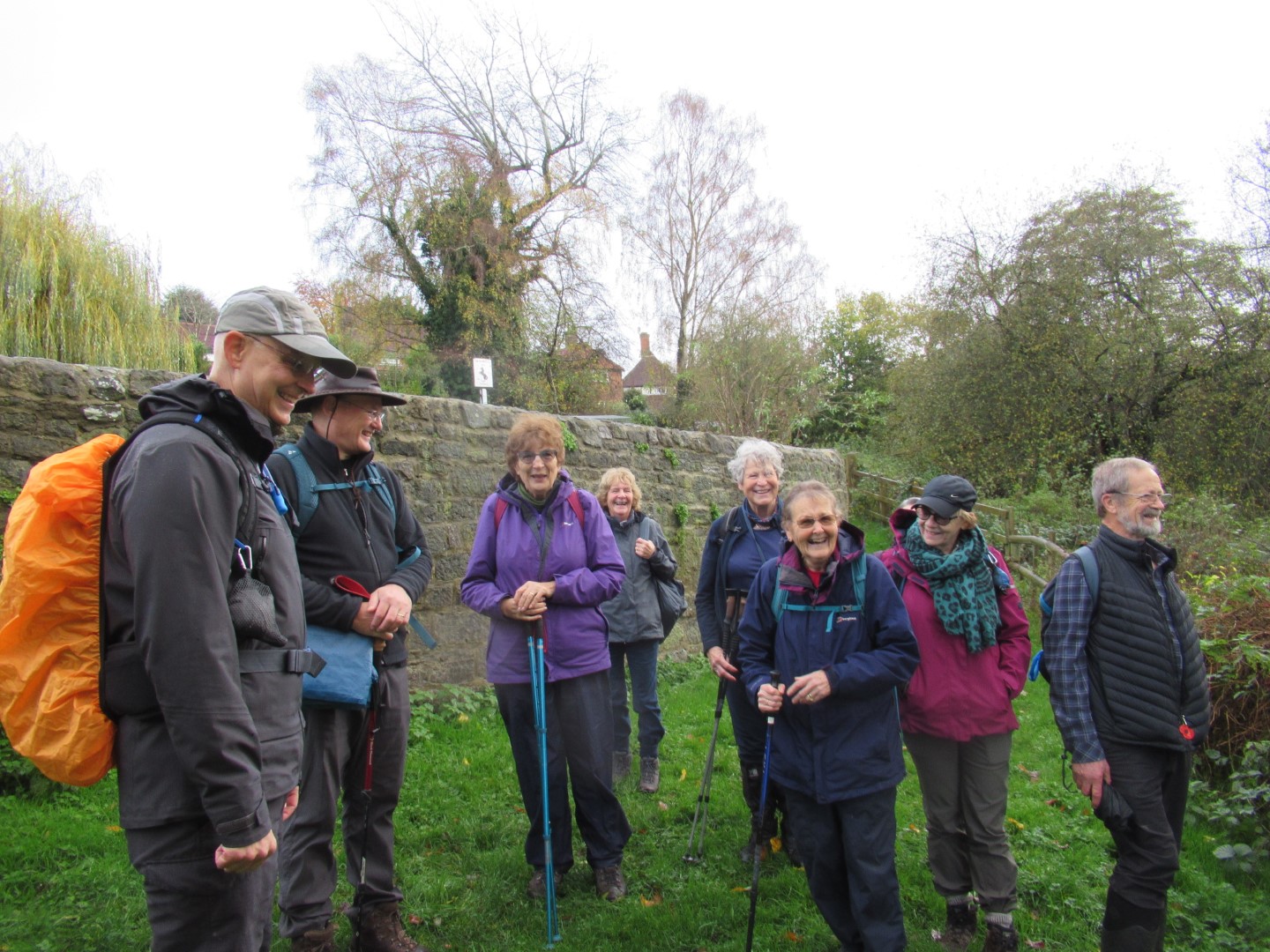
So we’ll have to wait until next time
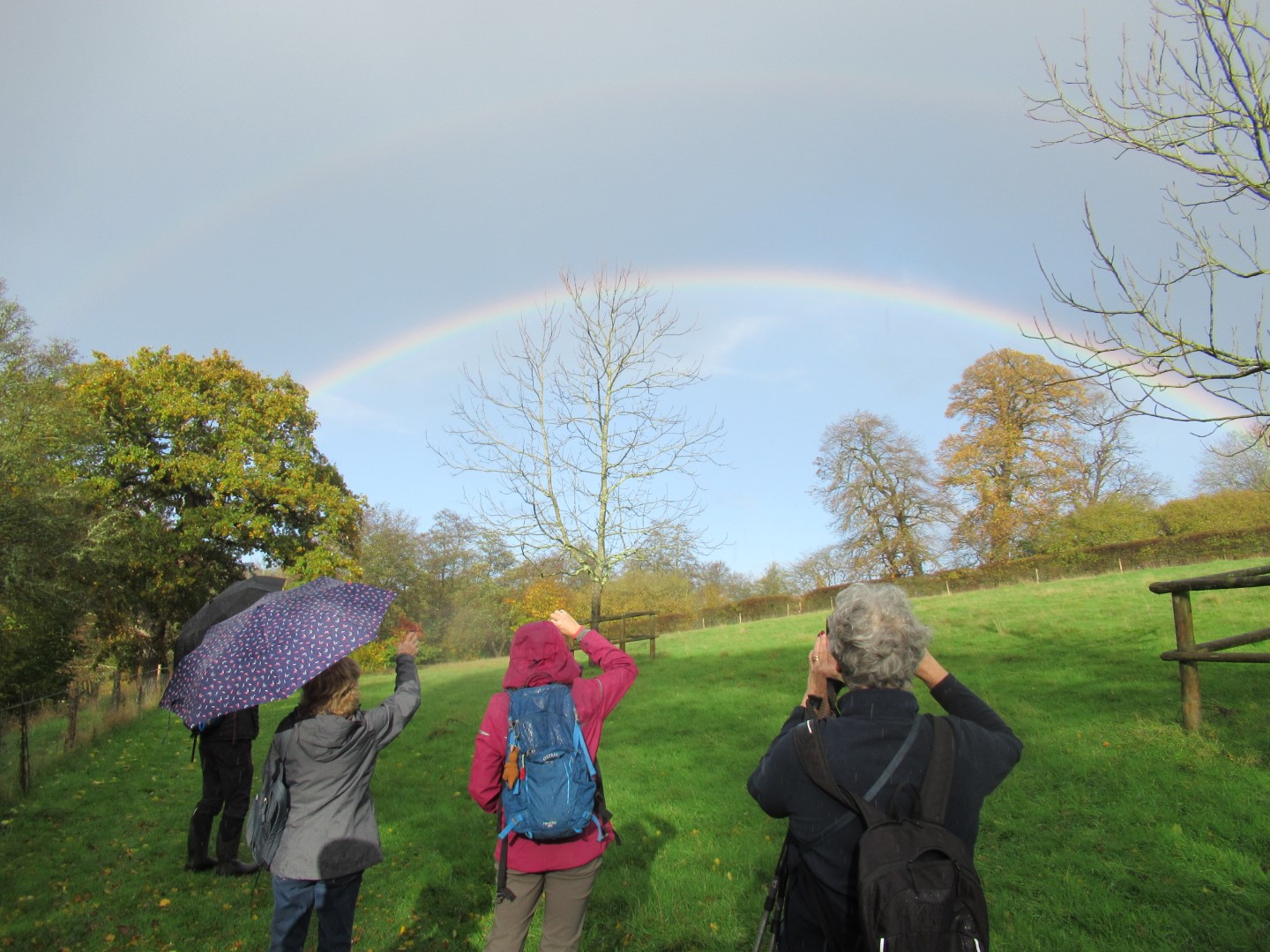
But the double rainbow made up for it
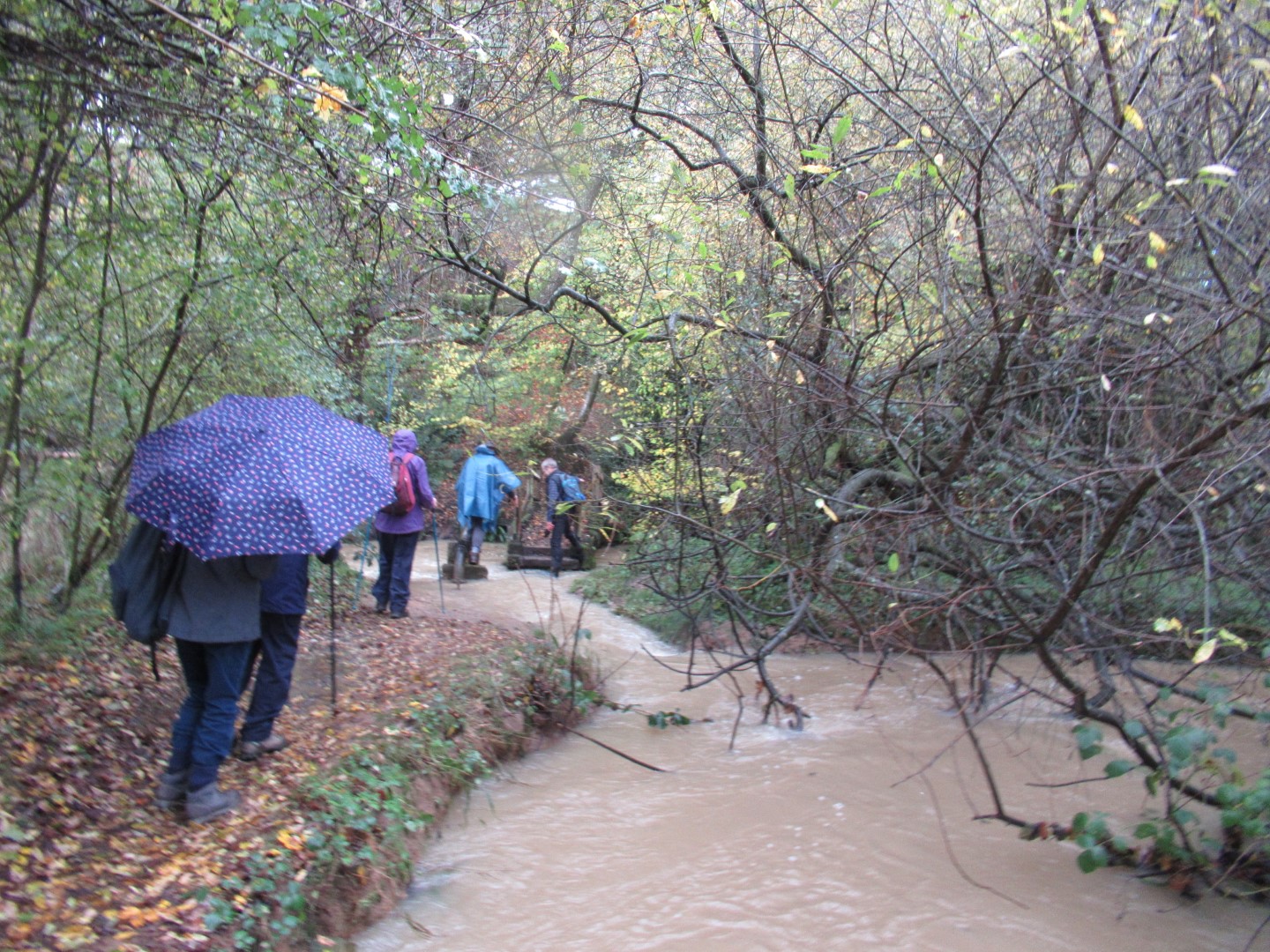
Here comes the rain and a new tributary, time to break out the Ark.
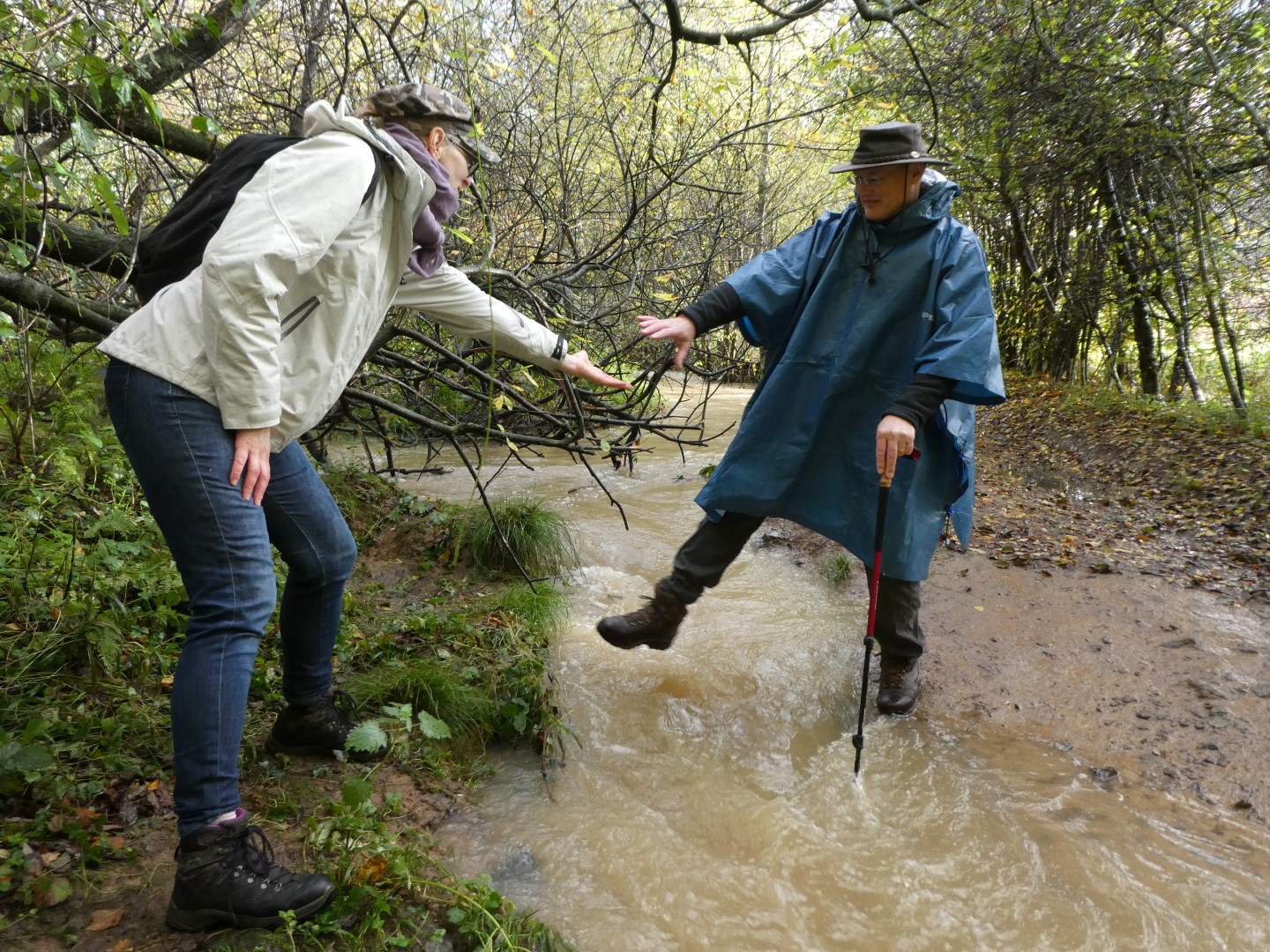
Argh.... I think I'll make it?!
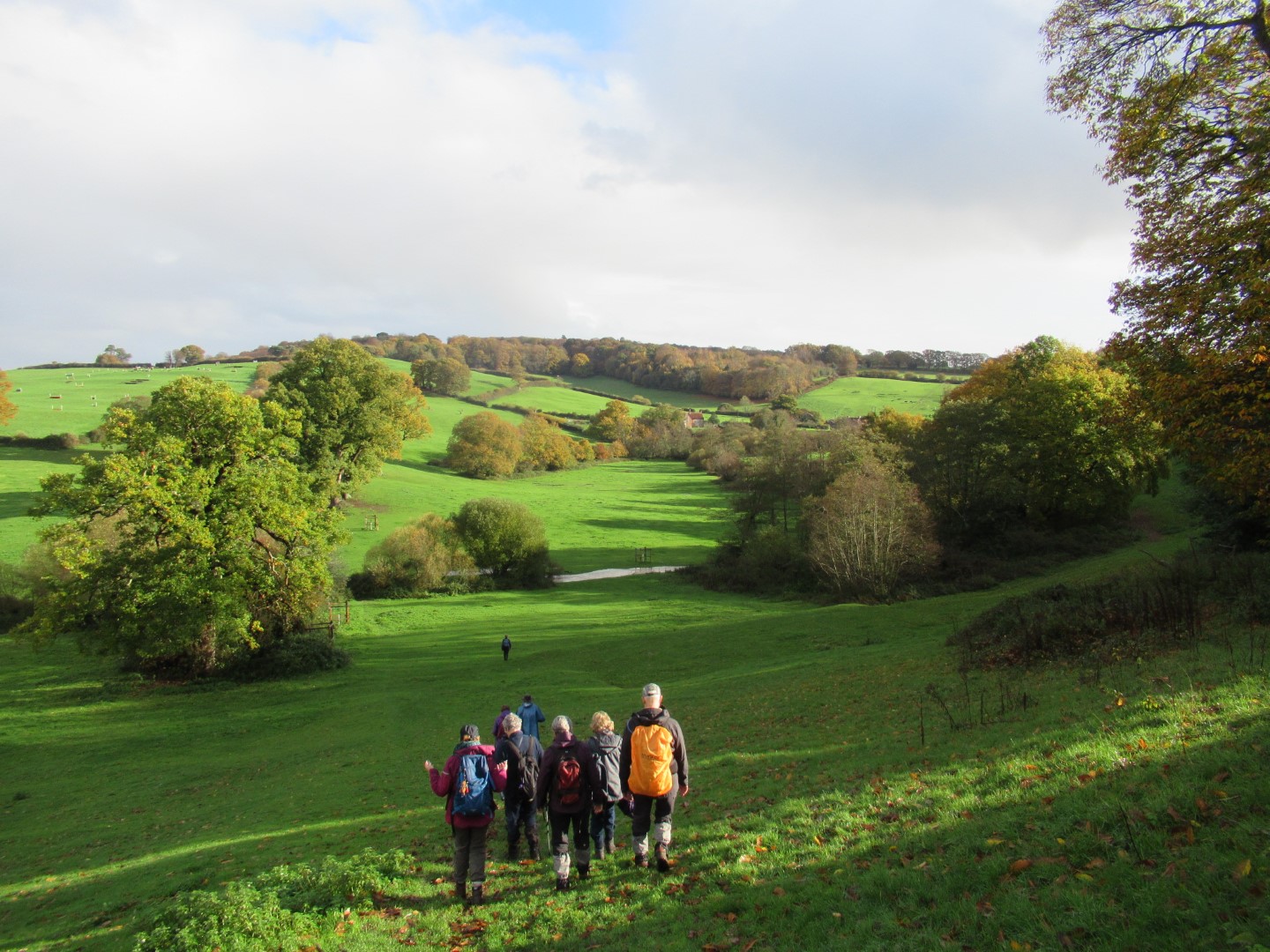
That’s more like it
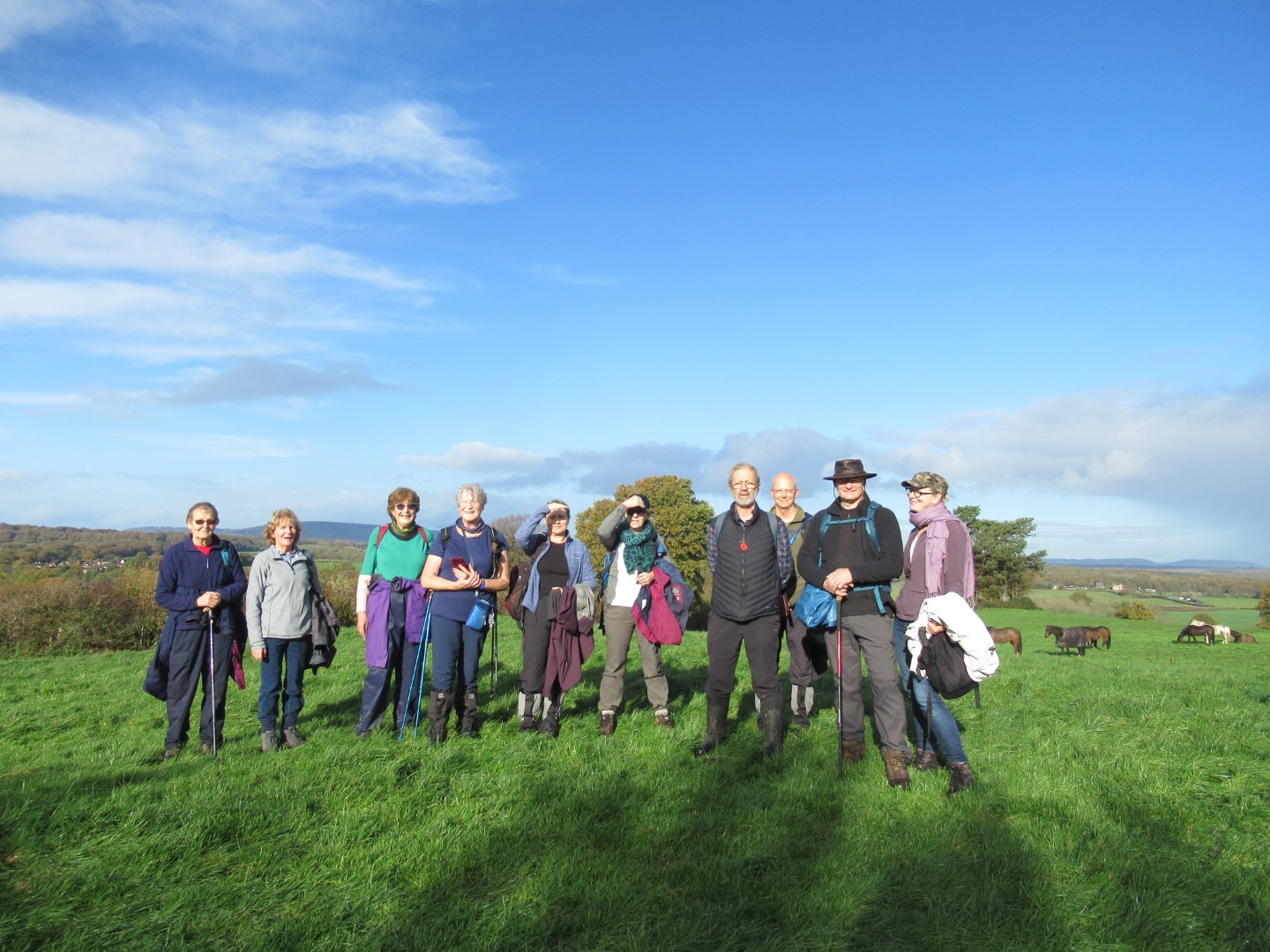
Enjoy the view or pose for a photo?
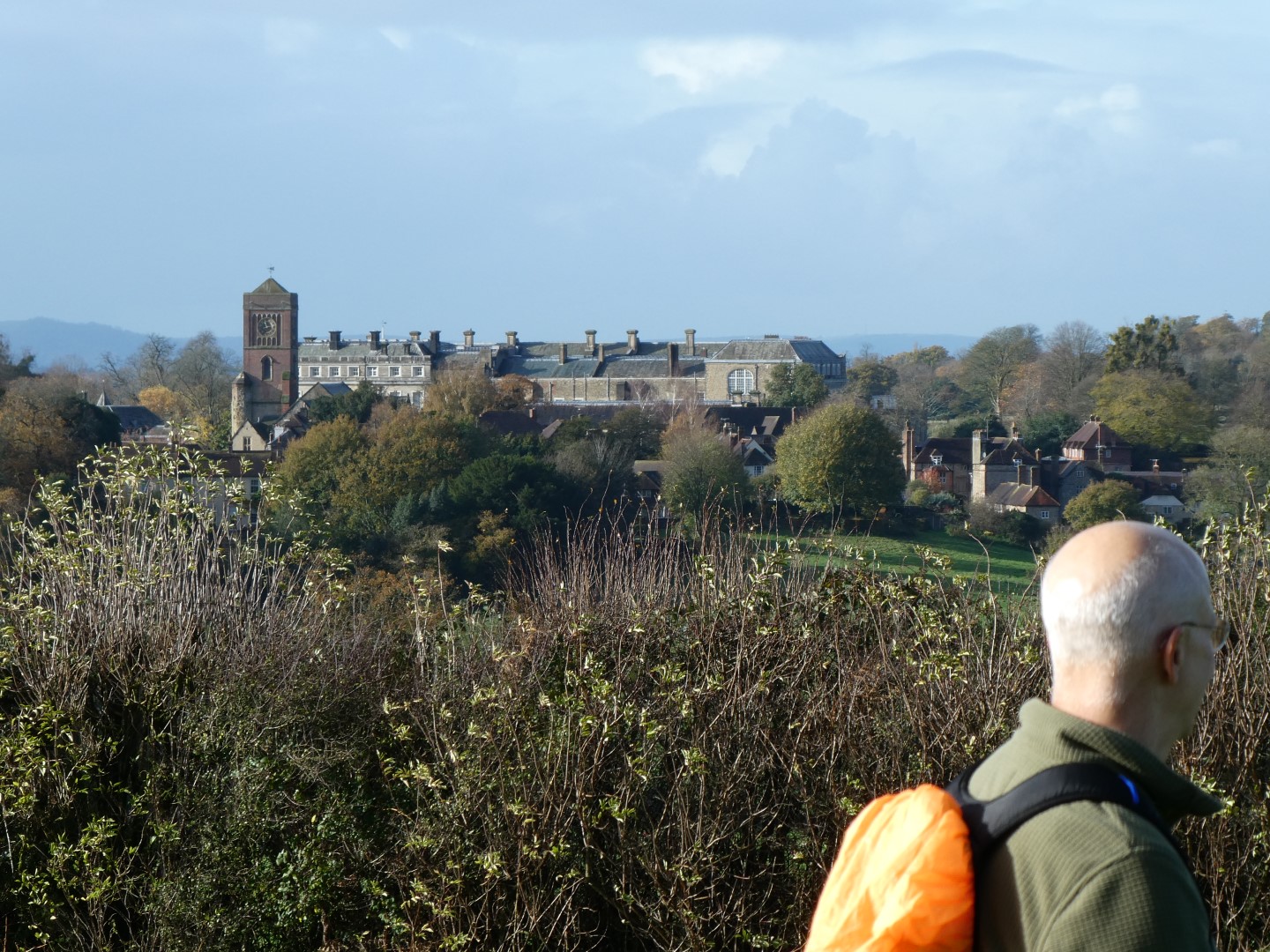
Petworth House about 3/4 of a mile away
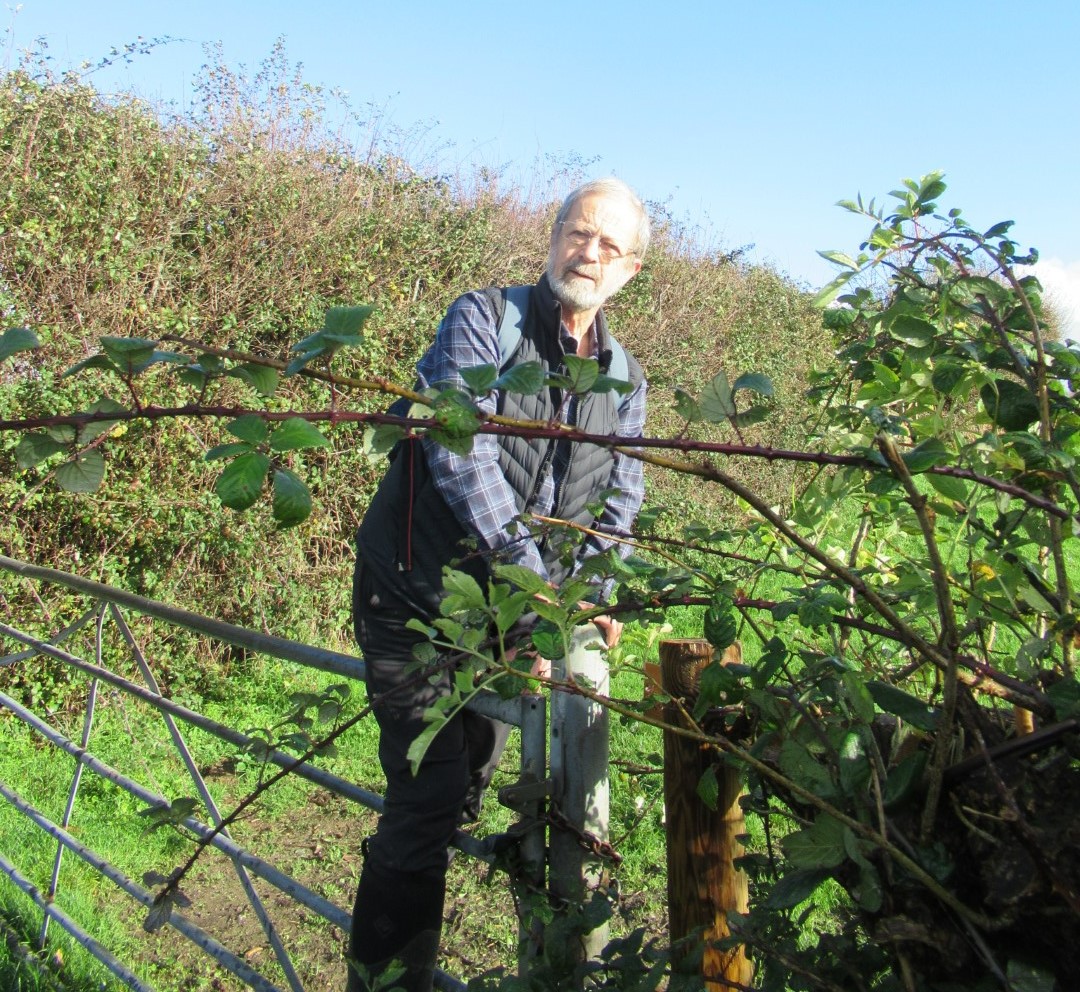
Glad the brambles stopped before the gate
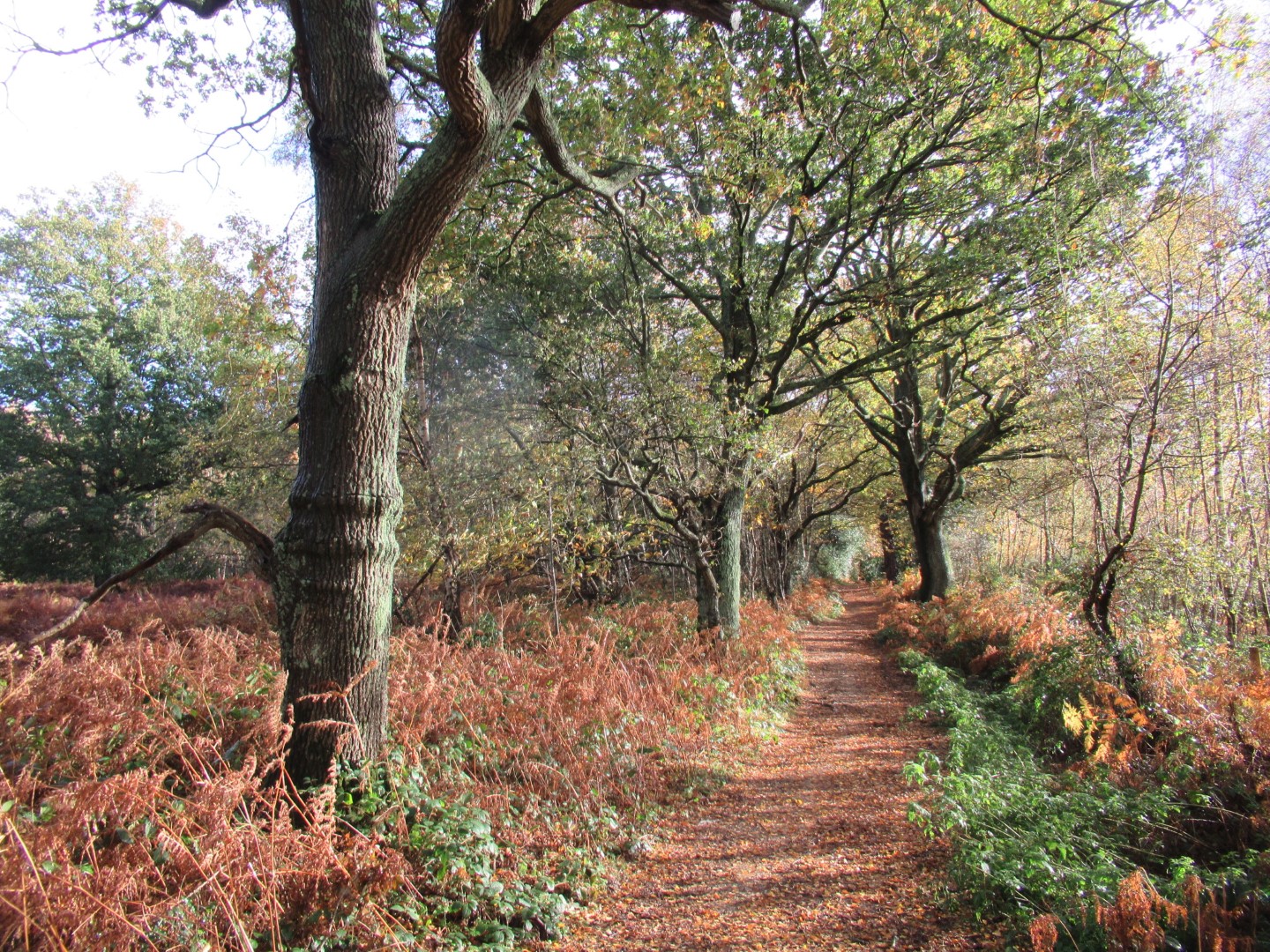
Brinkshole Heath
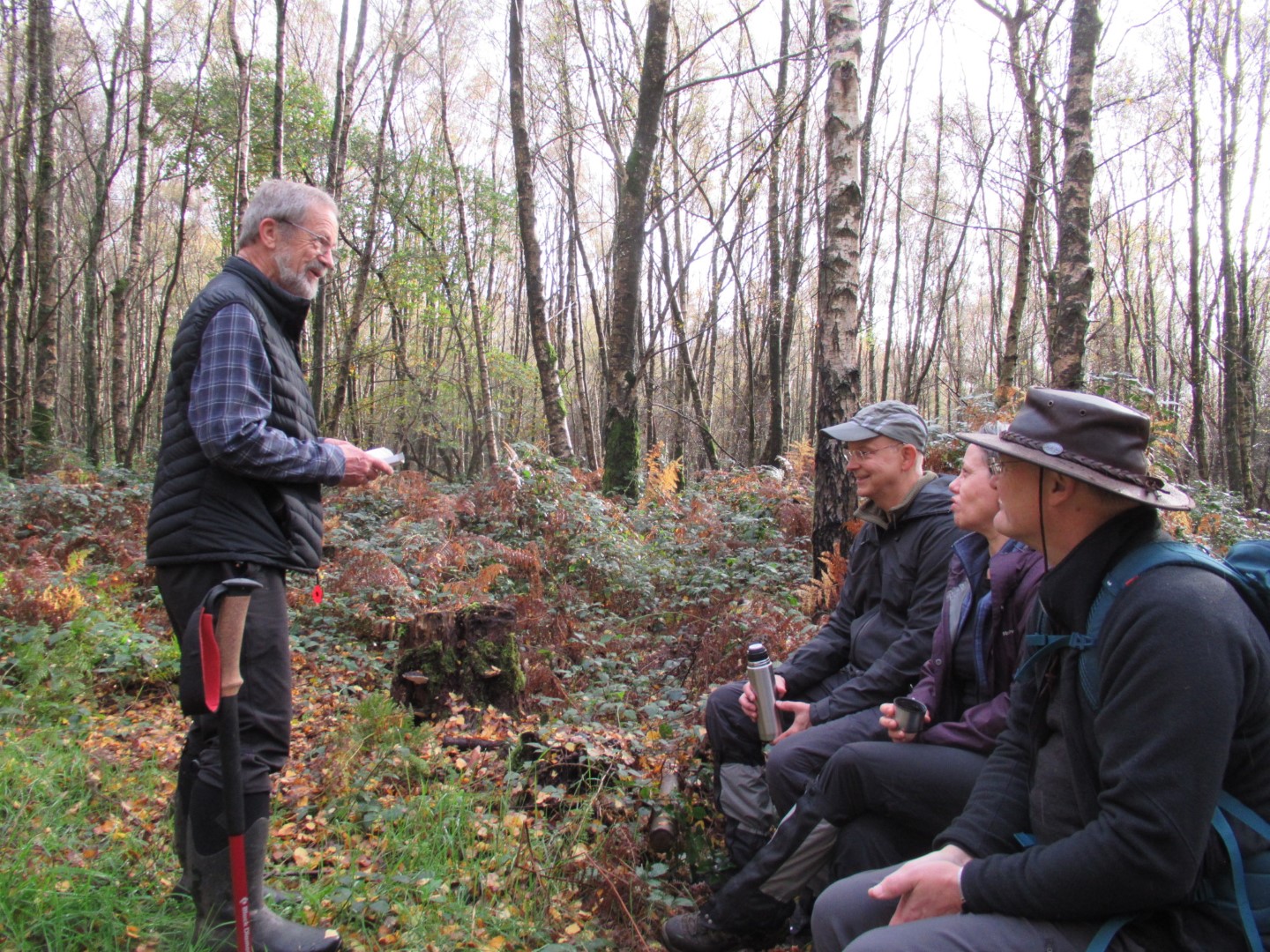
Are you sitting comfortably? Then I’ll begin…..Once upon a time, there was a mushroom….

I like cameras and phones, they're really tasty.
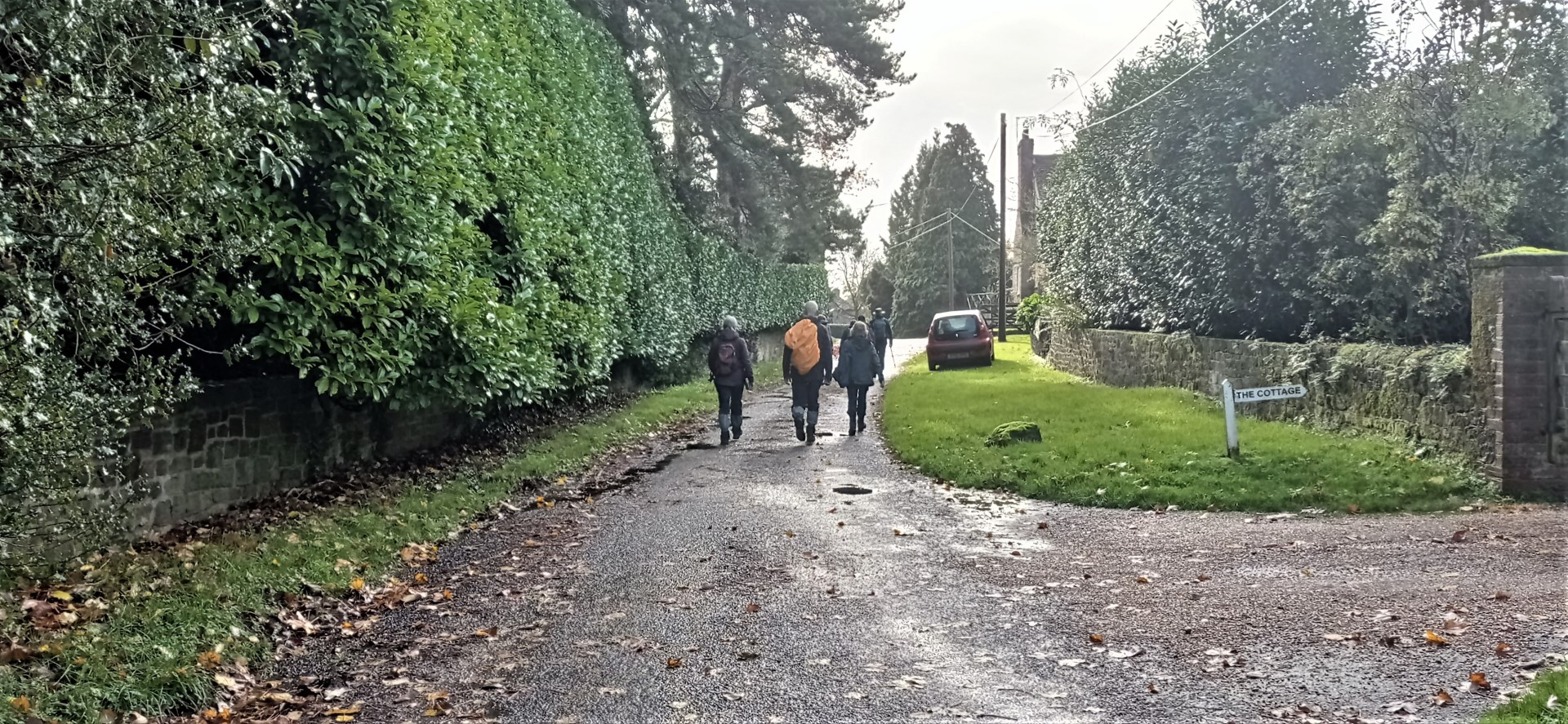
Little Bognor
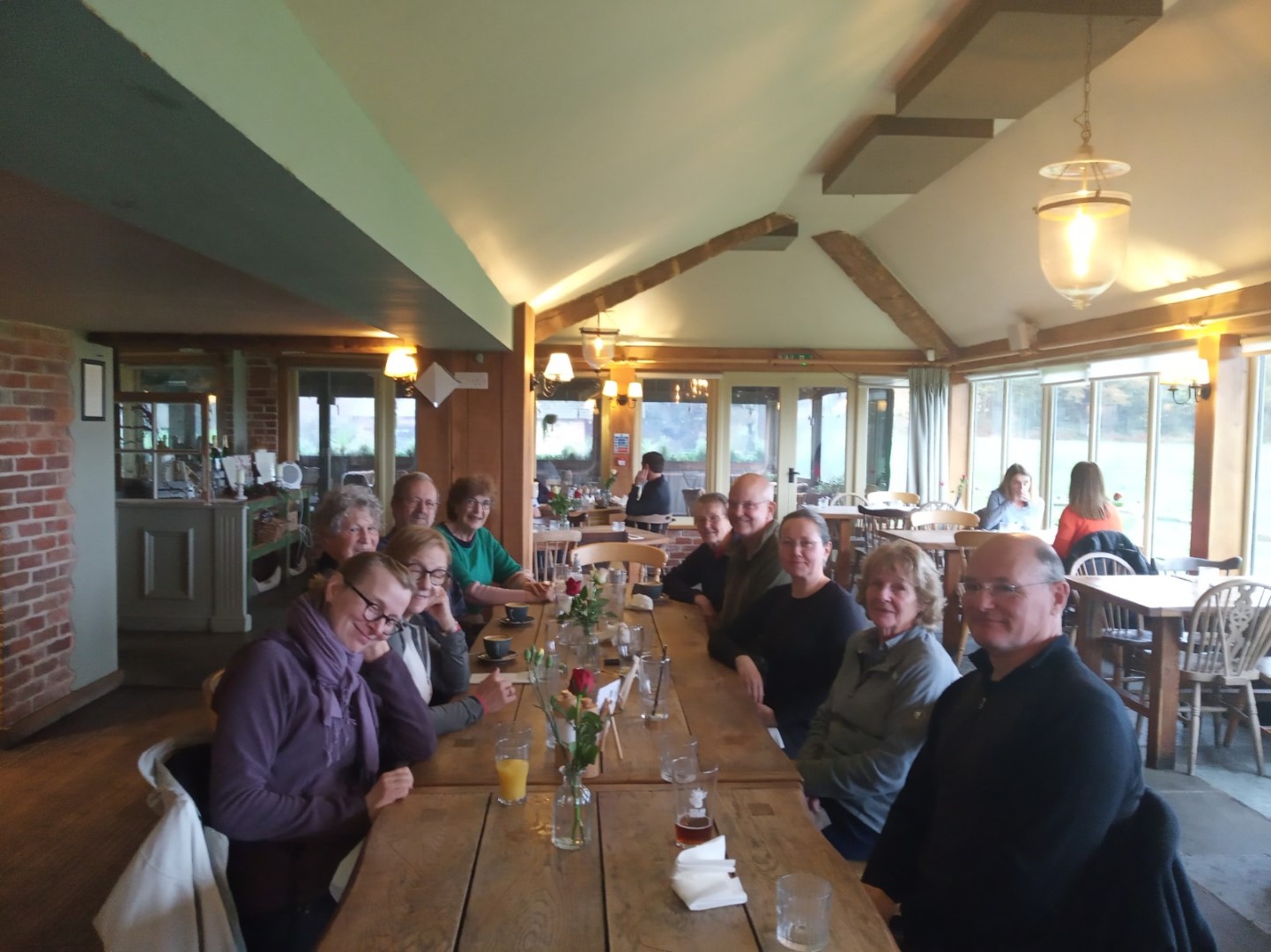
Dining in the Welldiggers Arms.
.png)
About 5.1/2 miles
Walderton walk on 9th November 2022
Denis started his walk from the car park of The Barley Mow in Walderton village. The roads to reach the walk had been flooded in many areas from overnight rain but the weather was now clear and bright. After a bit of road walking to avoid some muddy spots, we headed towards Manor Farm and then eventually turned onto the Monarch's Way towards Inholmes Wood. Once in the wood we turned down towards Piglegged Row before climbing up again, hoping for a break on a nicely placed bench. However we had been beaten to it so we carried on to another rest spot, which turned out to be much better! This was above the Watergate Estate. With a view over towards Hayling Harbour and the sea, we could just about see the Isle of Wight. A large object seemed to be in the sea and the general conclusion was that it was probably a container ship (later sleuthing showed it was probably "Ever Lucky" a container ship capable of carrying over 100,000 tons, on its way to Amsterdam from Southampton). Once refreshed we passed behind Watergate House and on into Watergate Hanger before turning into Watergate Park for a final stroll into the village and a welcoming Barley Mow. The walk was about 4.1/2miles.
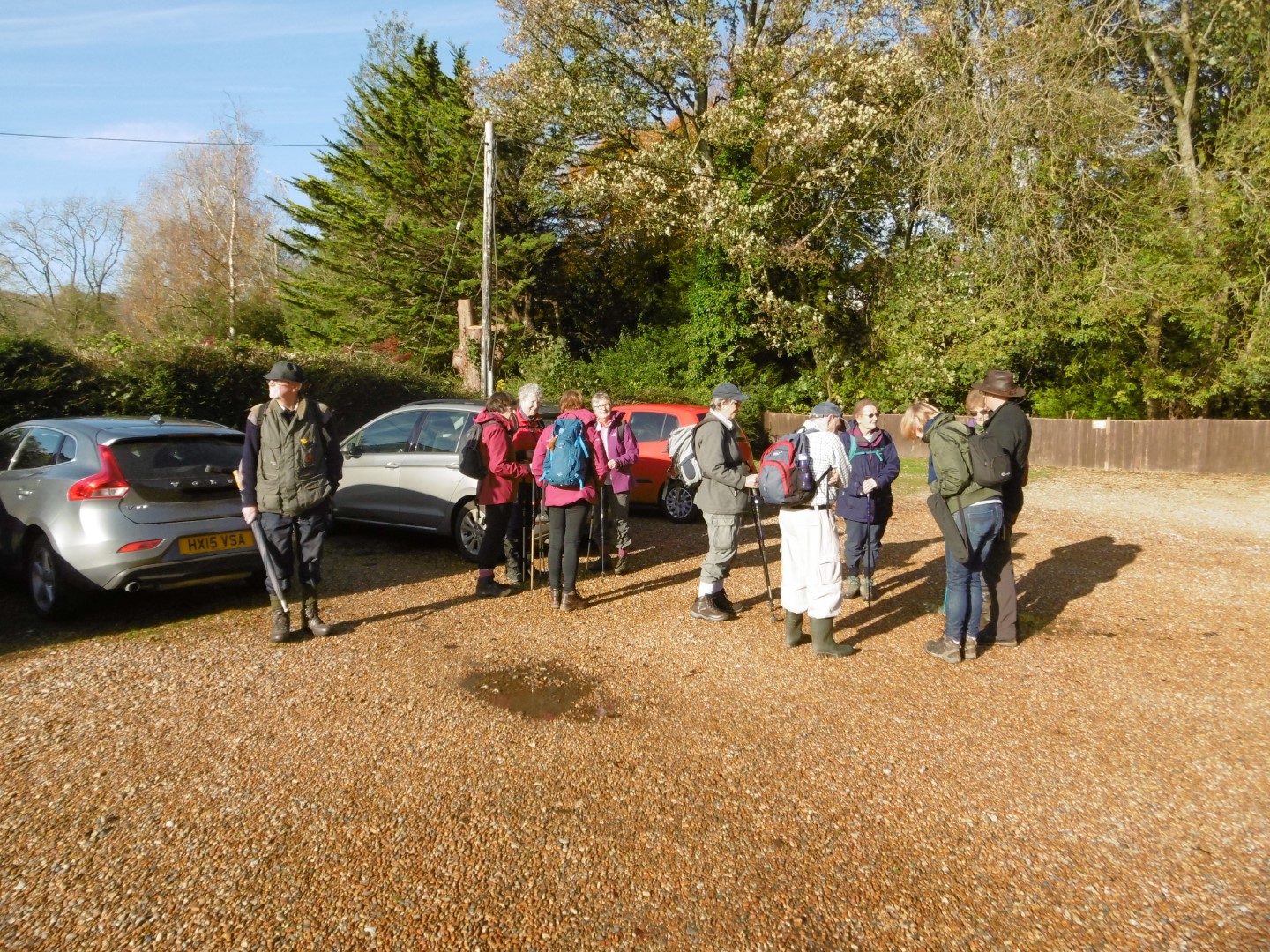
Car park assembly
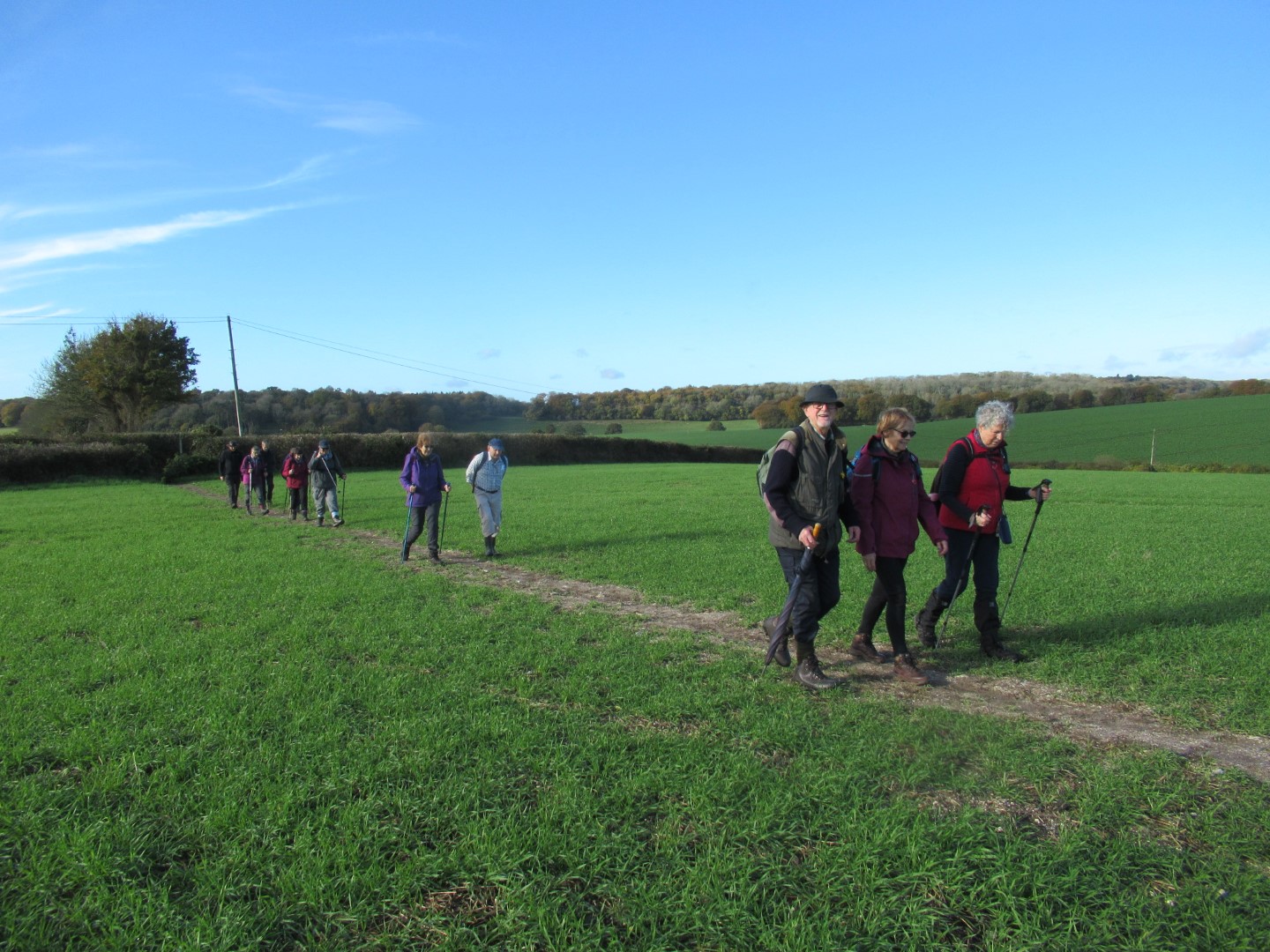
Heading up Monarchs way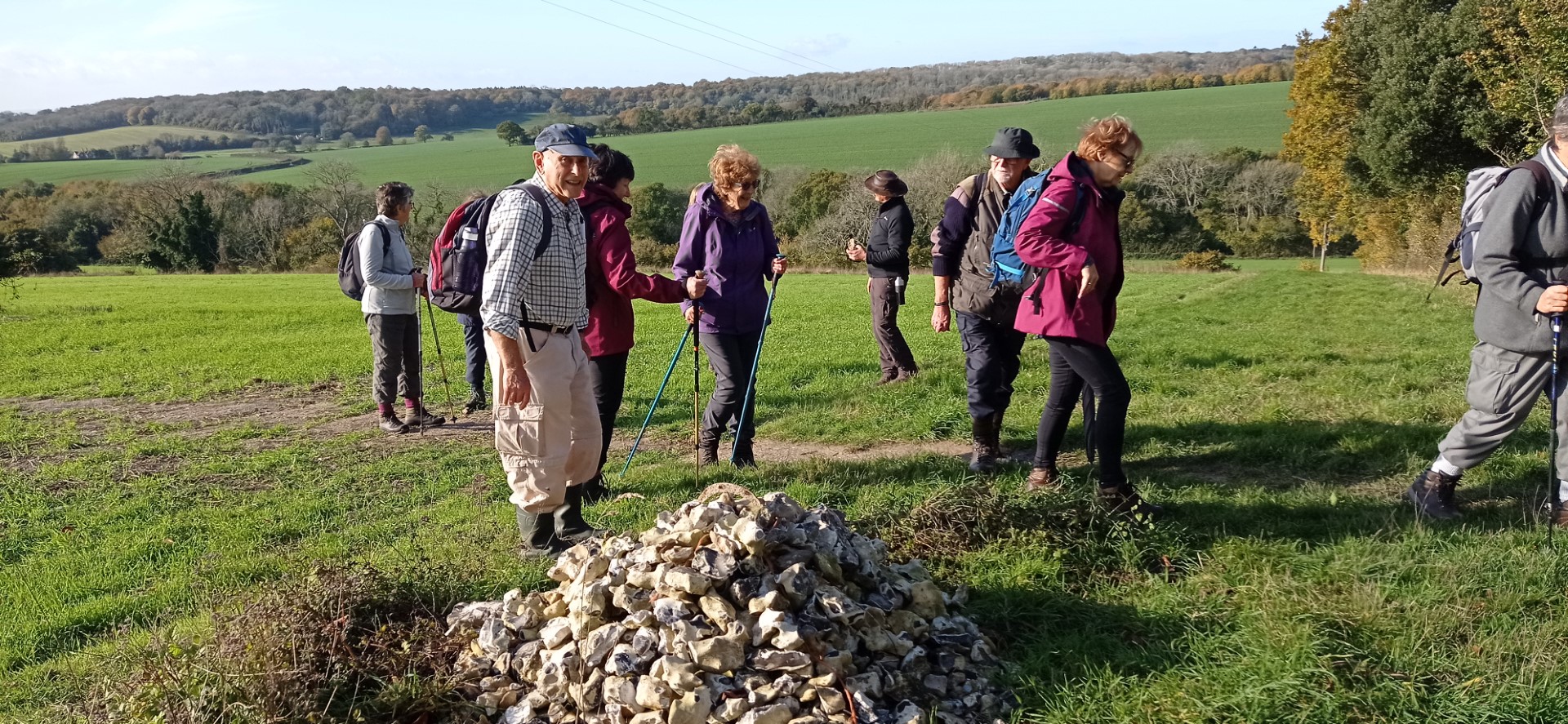
Stone cairn with half a horseshoe on top - there must be some luck in there?
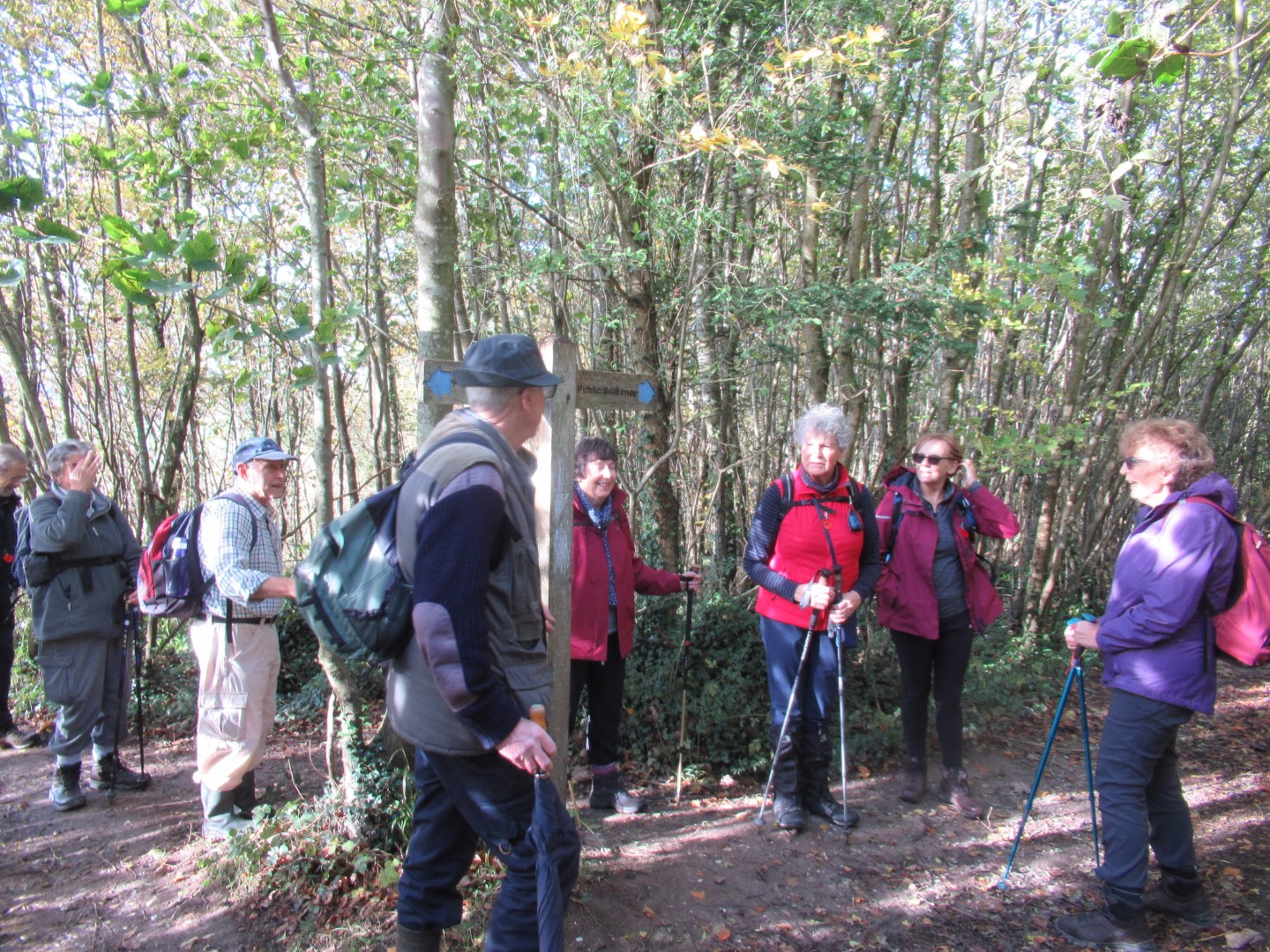
Inholmes Wood
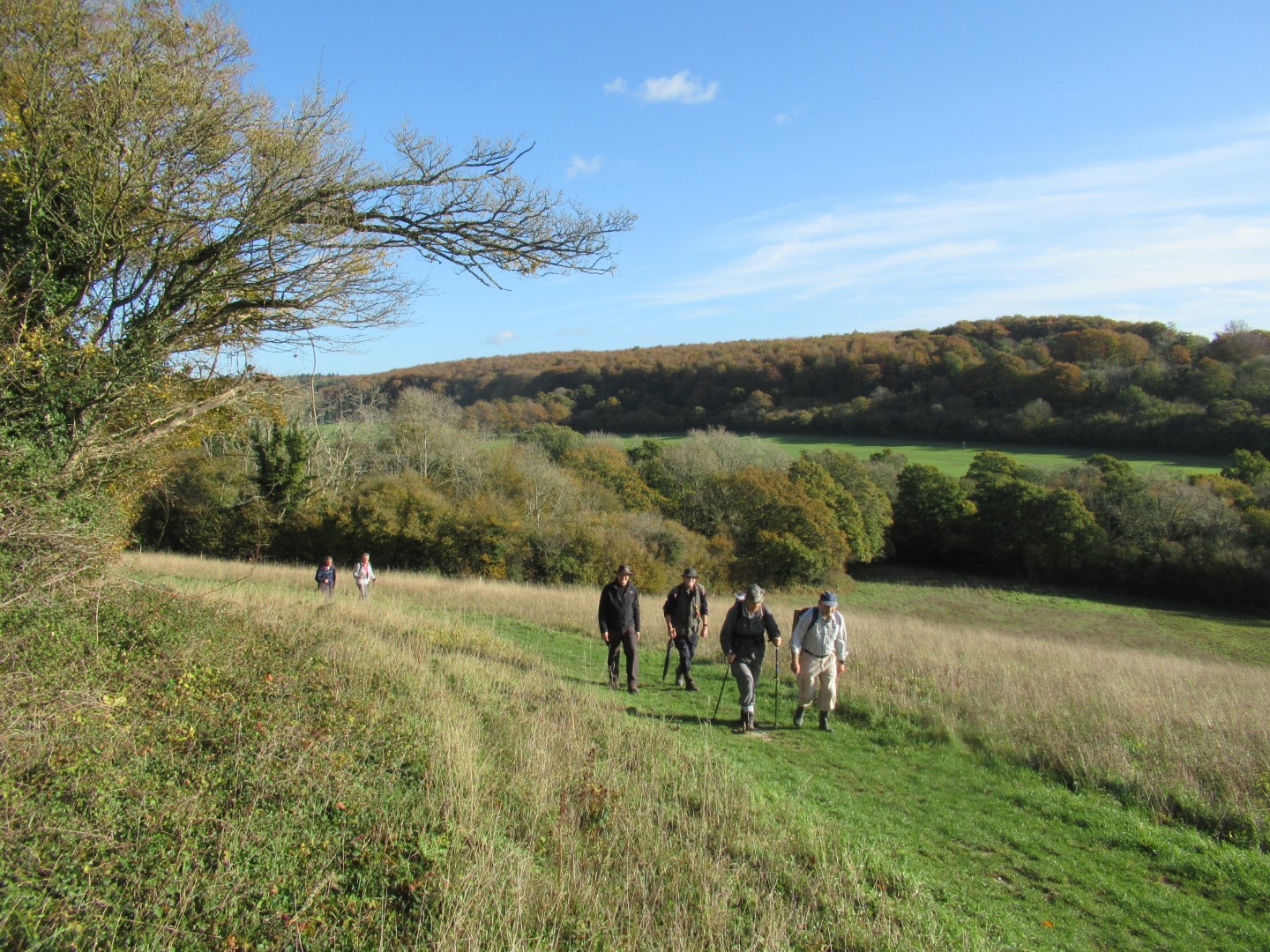
Just above Piglegged Row
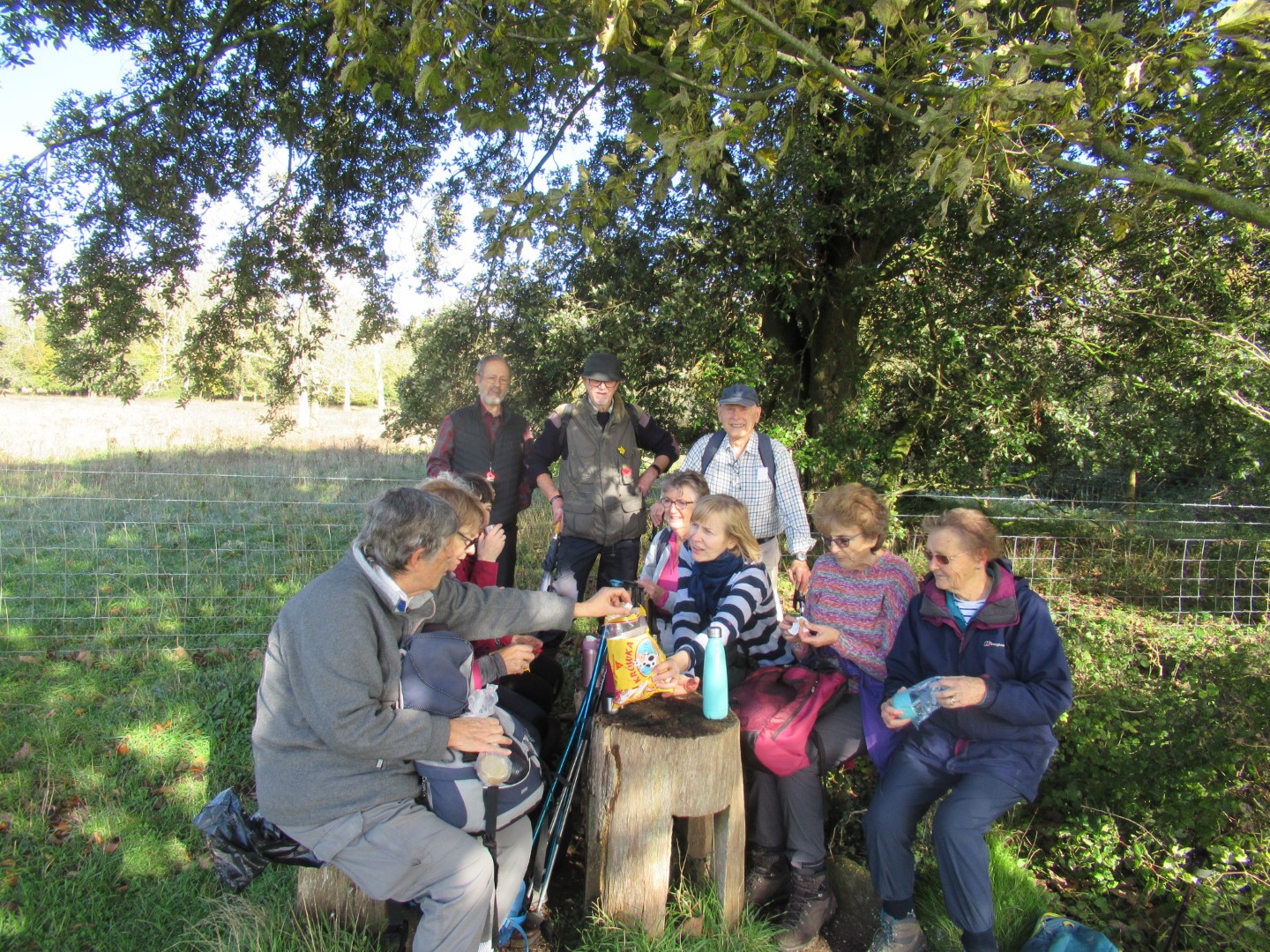
Coffee stop at last - and bonus sweeties!
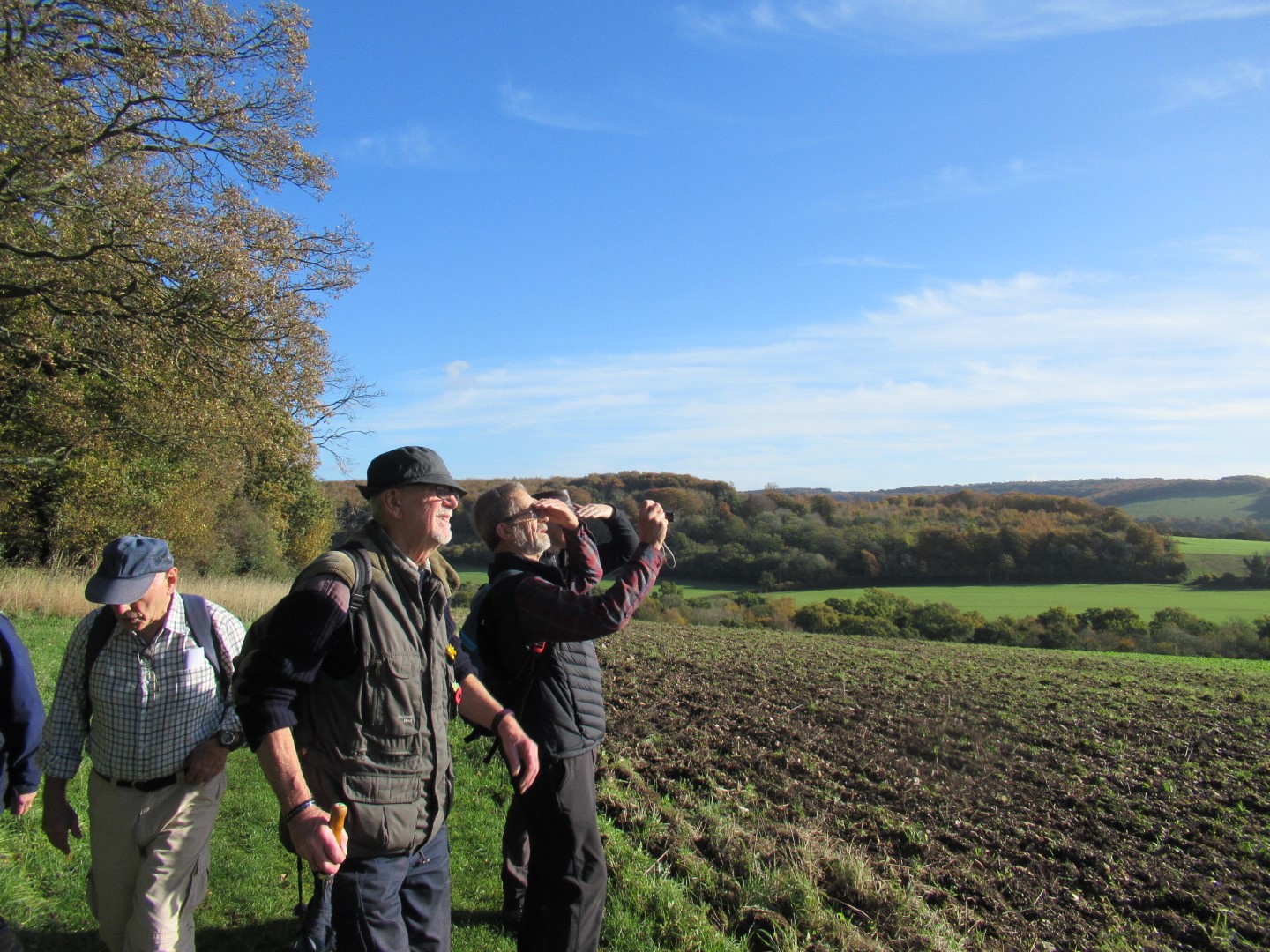
"So, what is that dark blob out on the sea?"
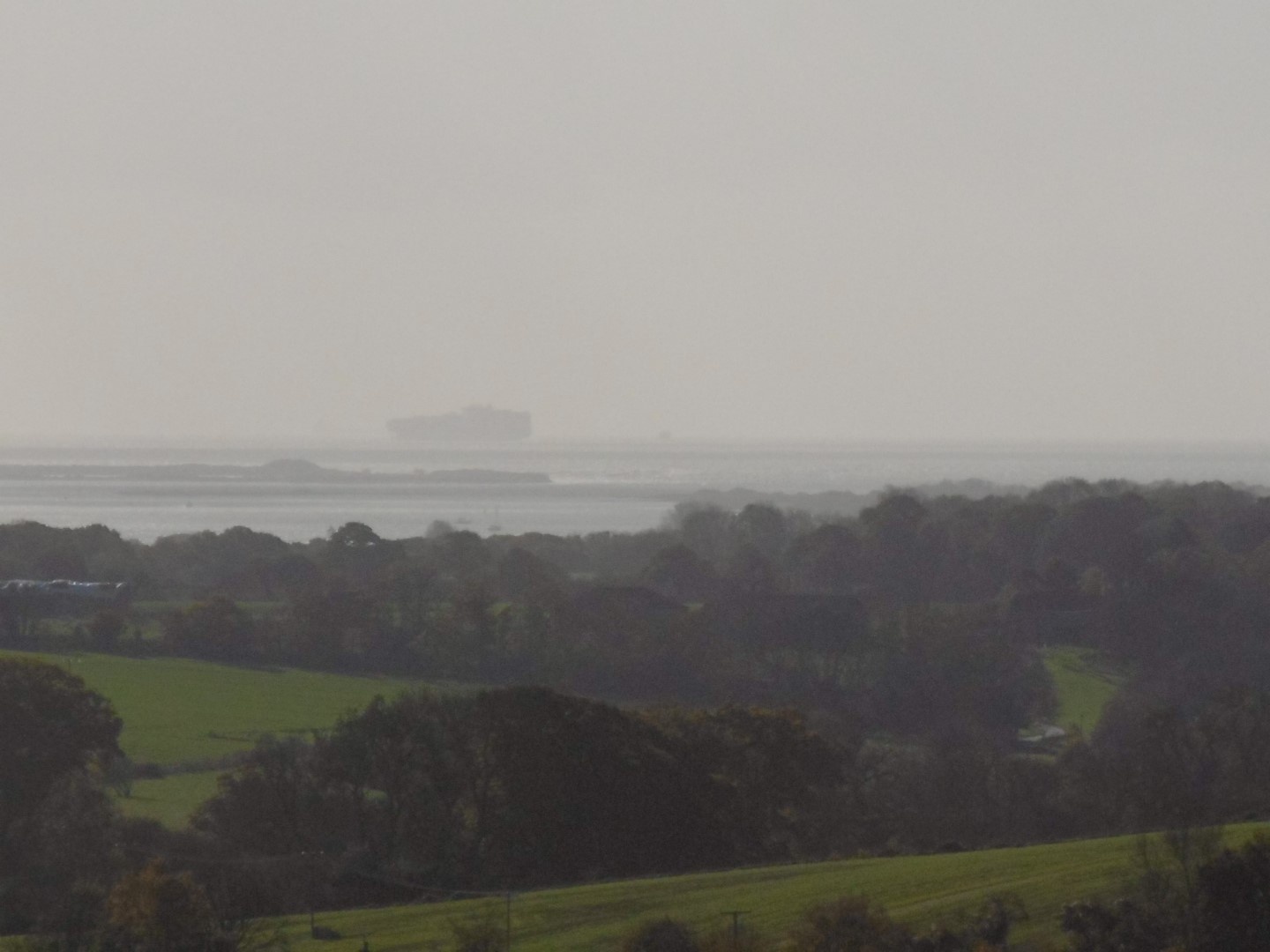
Probably a container ship on its way to Amsterdam
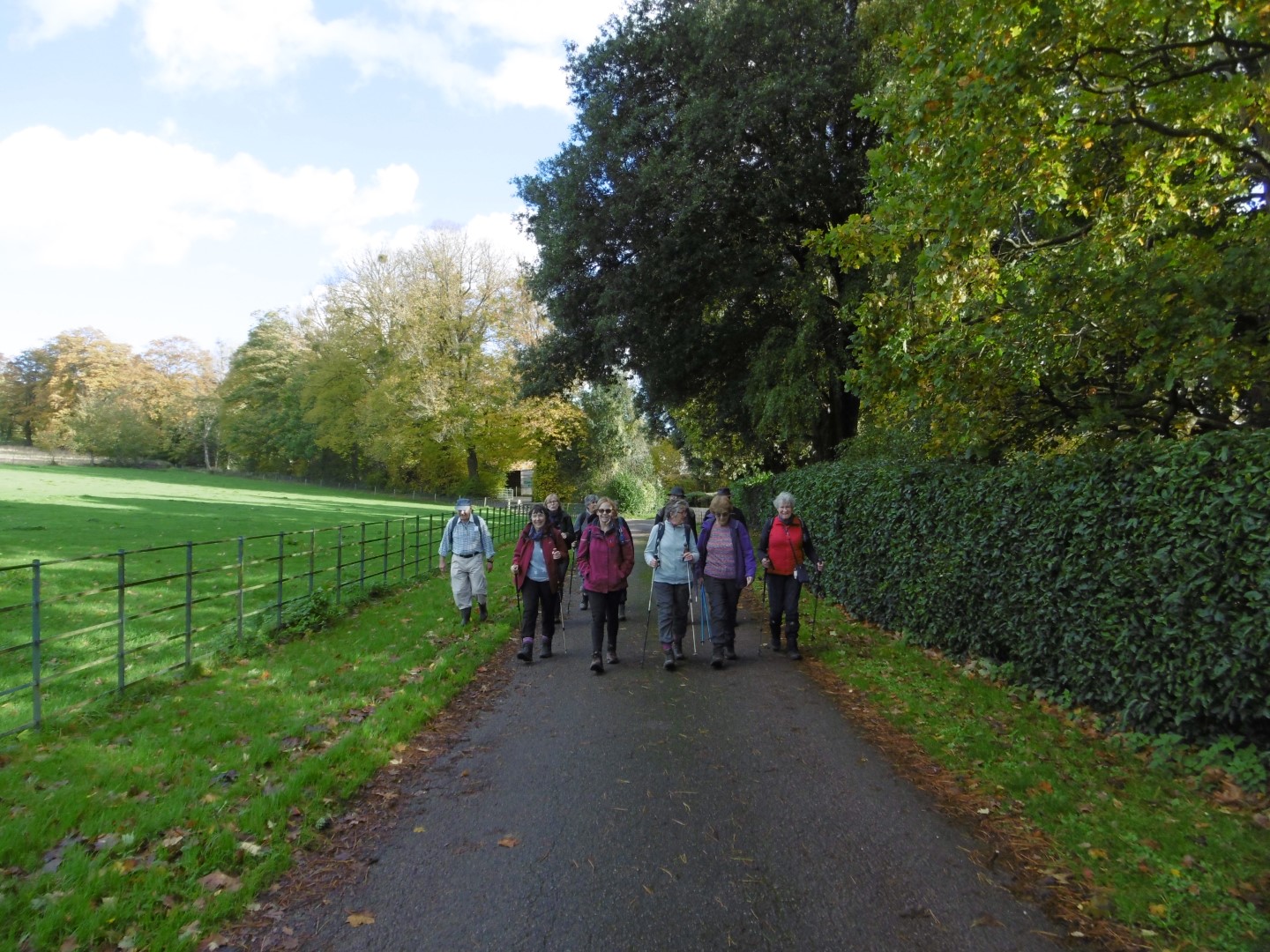
Drive at the back of Watergate House
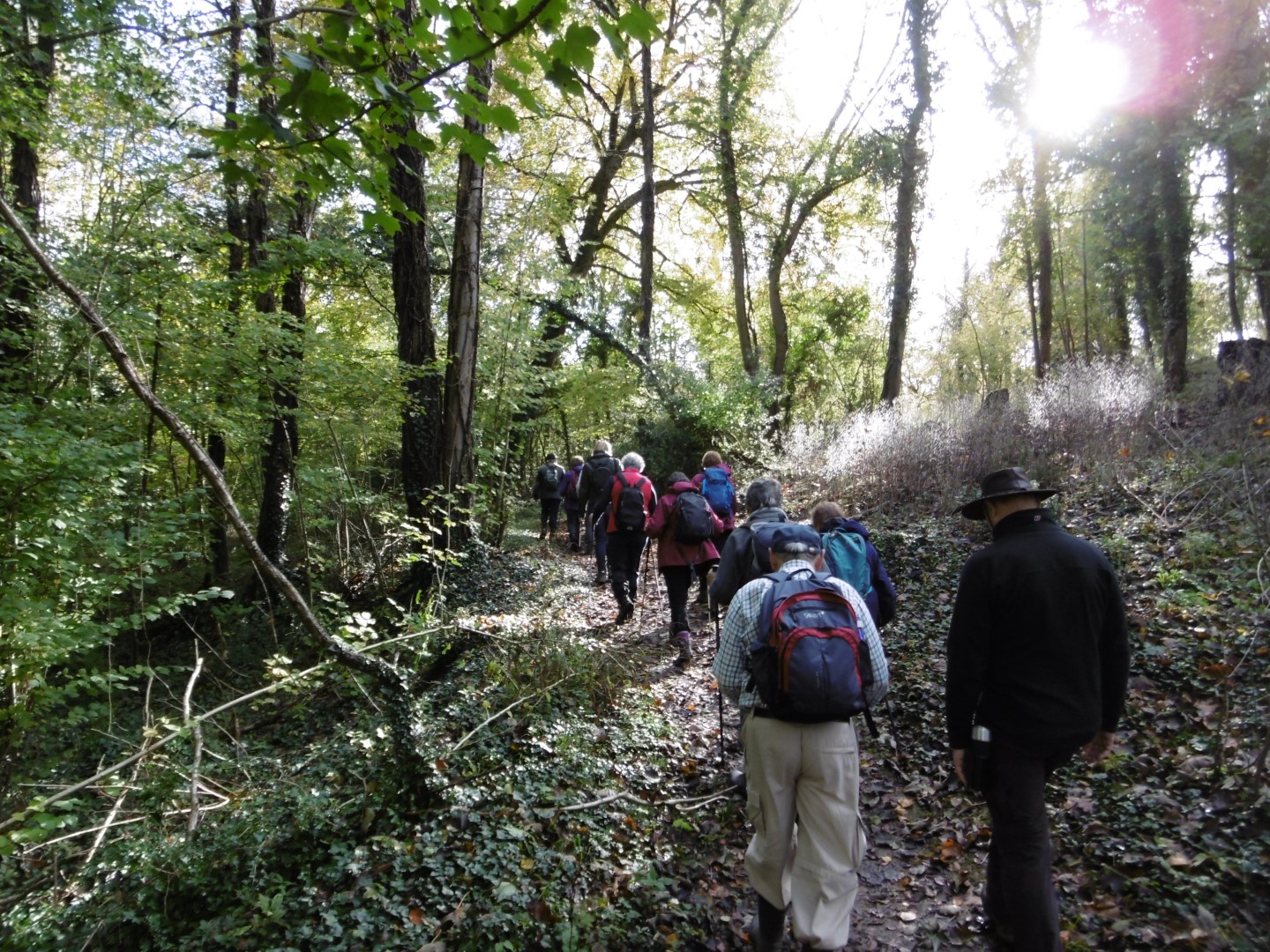
Watergate Hanger
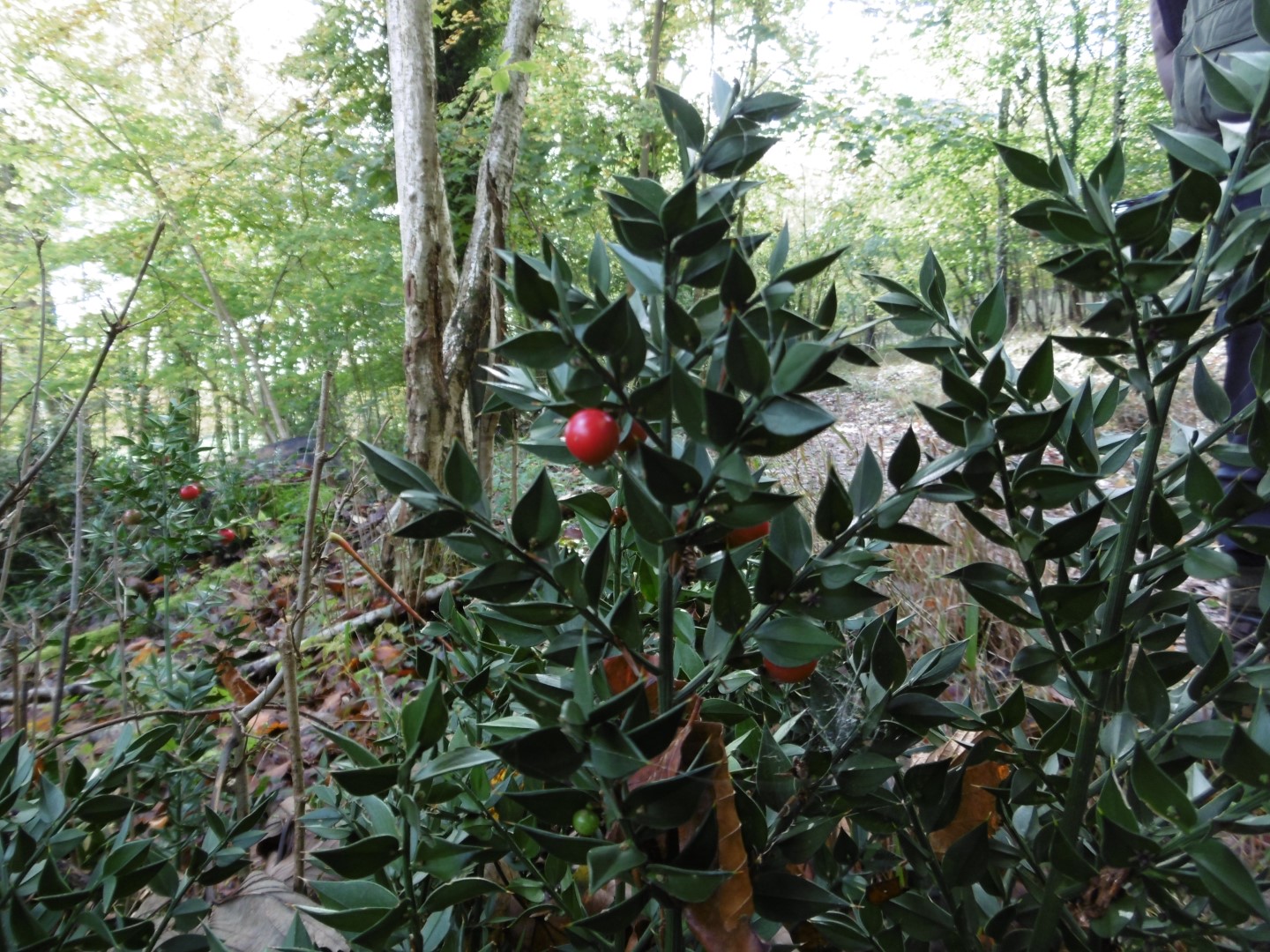
Butcher's broom - historically used to sweep down butchers boards with its tough foliage. Berries are poisonous.
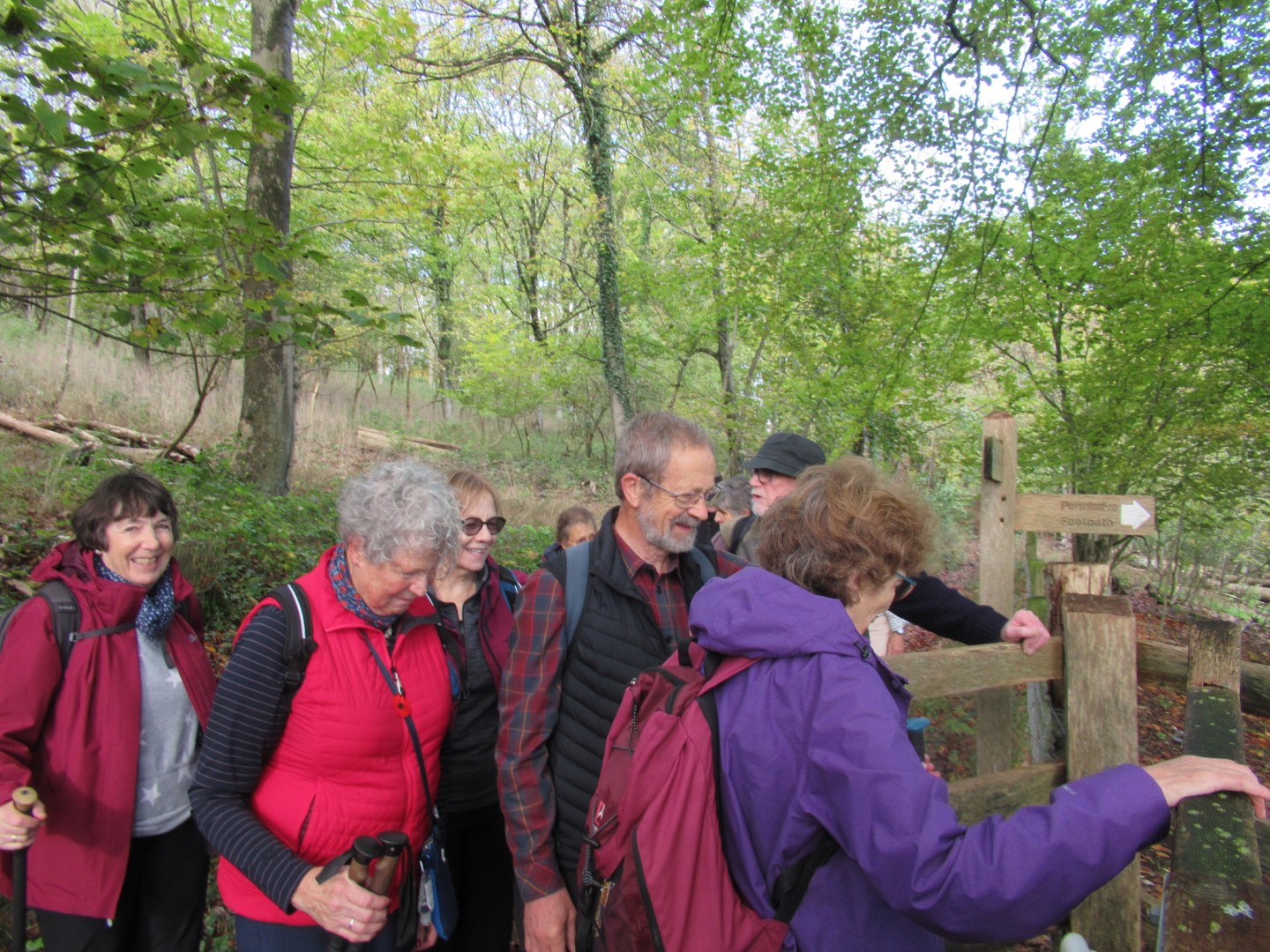
Crowding at the gate
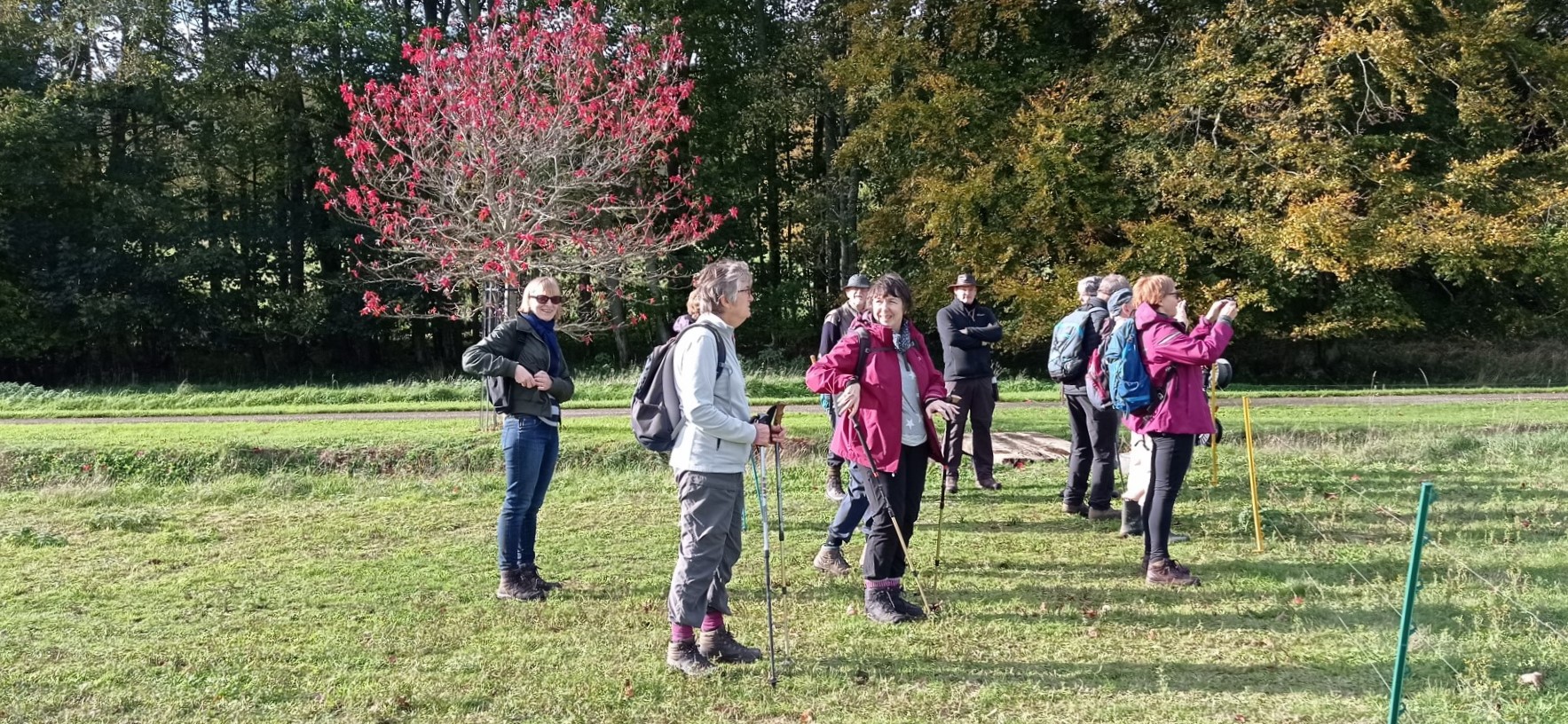
"What's so interesting?"
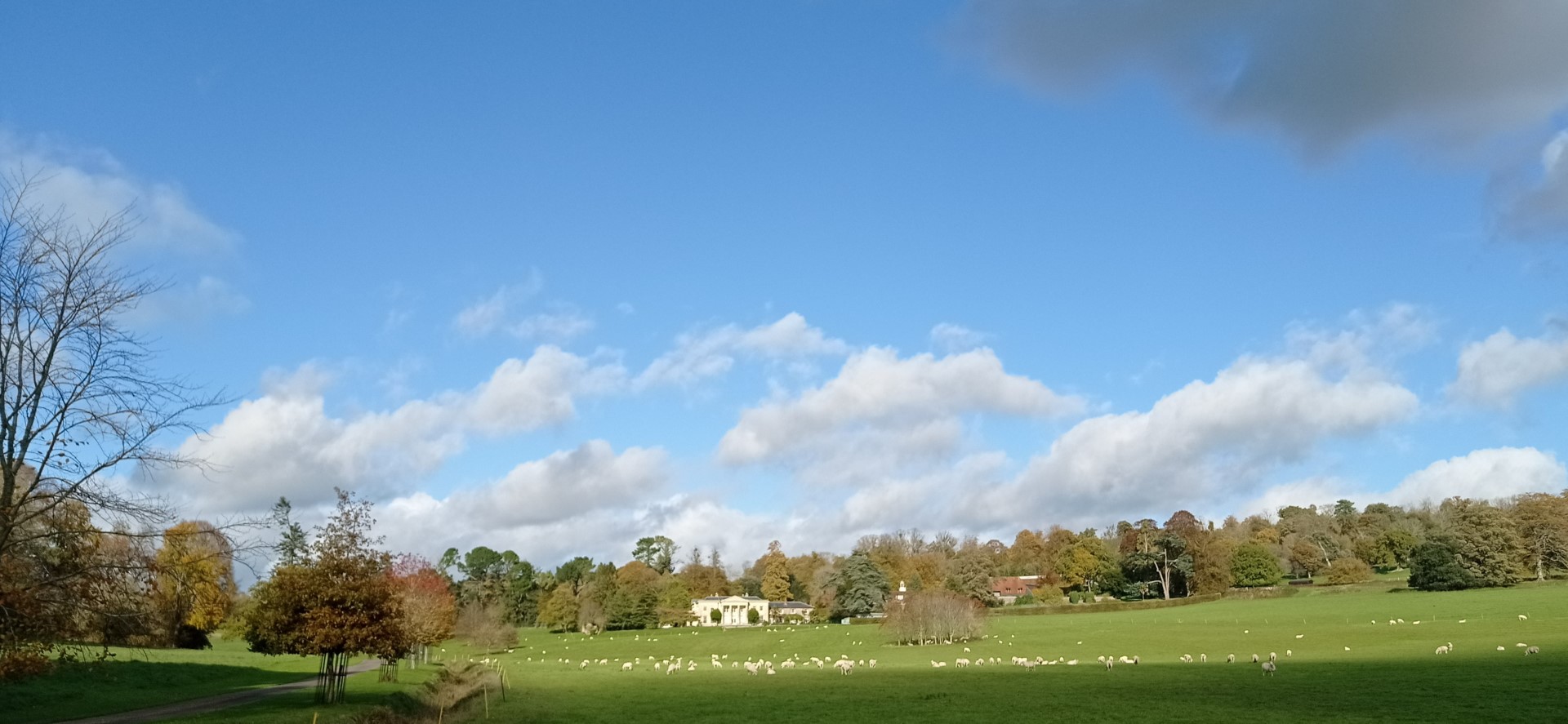
Watergate House, once the residence of John White. His father was a slave owner in
St Kitts and in his will he left annuities of £10 p.a. to '"two mulatto women named Sarah
and Frances whom I made free before I left St Christopher's(St Kitts)" He also
"declared his enslaved people 'heirlooms', so that they could not be sold"
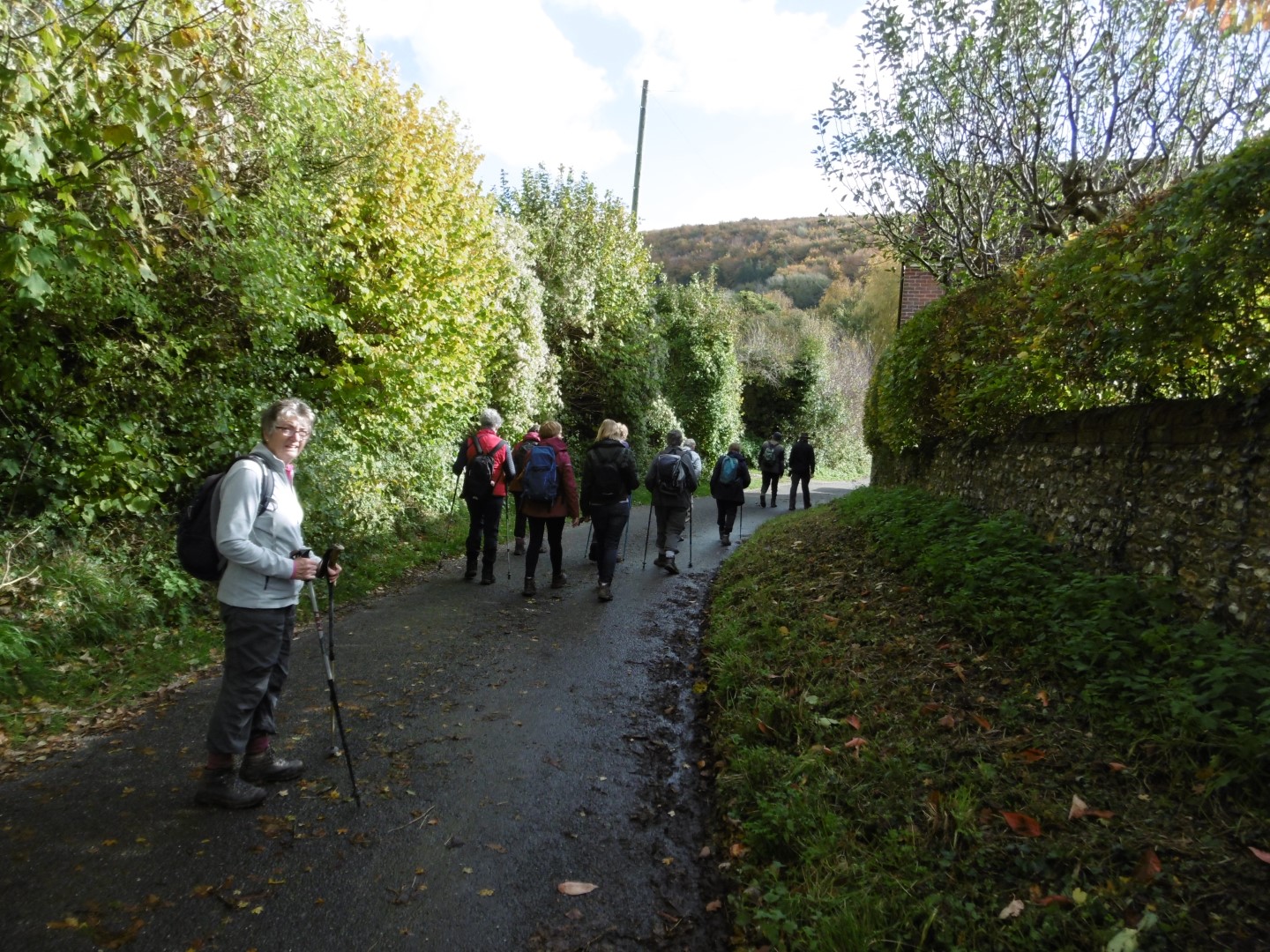
We quickly made our escape before enslavement and headed for the pub.
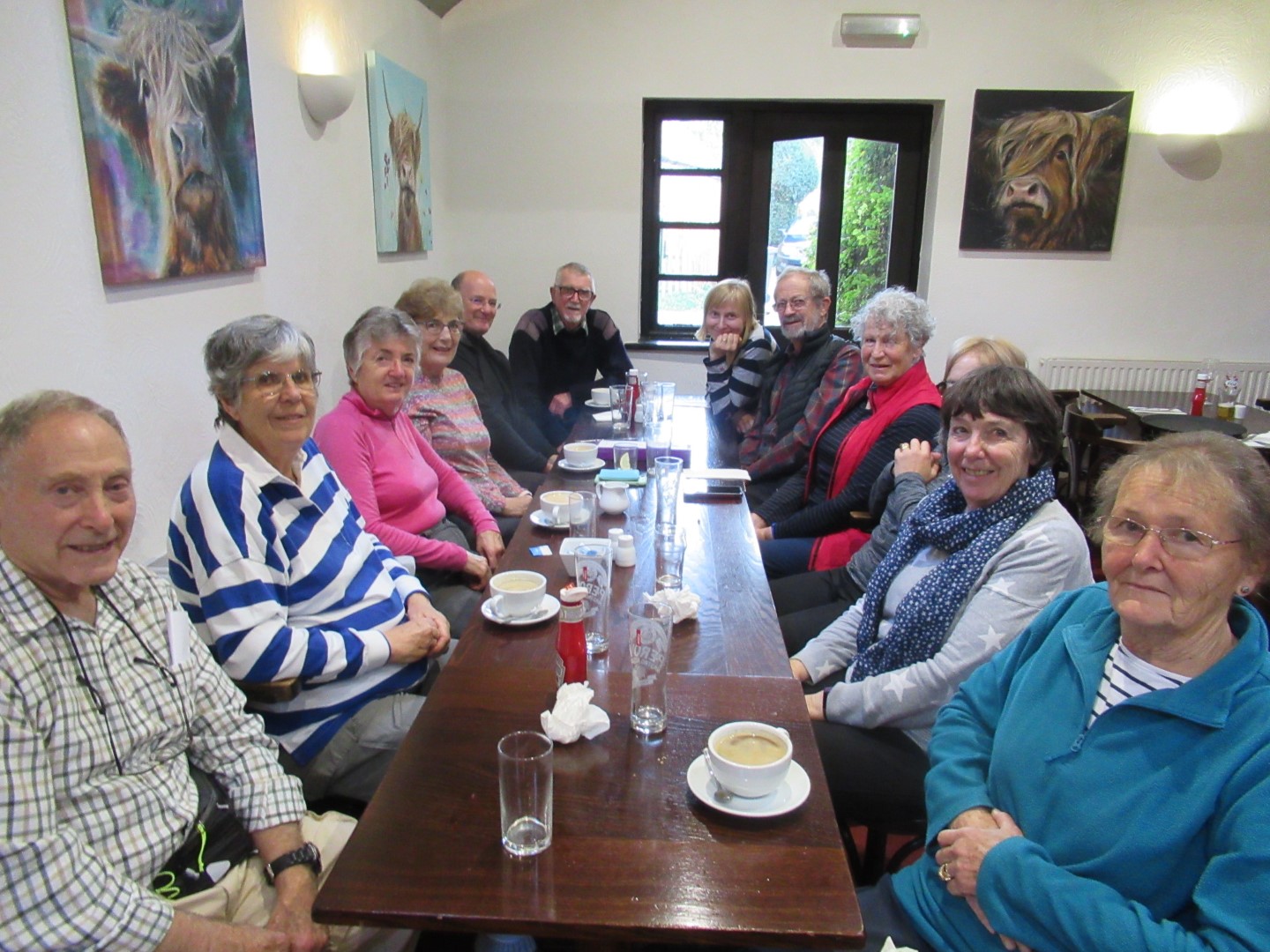
Well fed and watered after about 4.1/4 miles
.png)
Recent galleries
- Fittleworth walk on 18th February 2026
- Midhurst walk on 11th February 2026
- Milland walk on 4th February 2026
- Lynchmere Walk on 28th January 2026
- Walderton walk on 14th January 2026
History
2026
2025
- December (3)
- November (4)
- October (5)
- September (4)
- August (4)
- July (5)
- June (4)
- May (5)
- April (4)
- March (5)
- February (3)
- January (4)
2024
- December (3)
- November (5)
- October (4)
- September (4)
- August (4)
- July (4)
- June (5)
- May (5)
- April (5)
- March (5)
- February (5)
- January (4)
2023
- December (3)
- November (6)
- October (5)
- September (5)
- August (3)
- July (4)
- June (6)
- May (5)
- April (4)
- March (5)
- February (4)
- January (4)
2022
- December (4)
- November (5)
- October (5)
- September (3)
- August (4)
- July (6)
- June (11)
- May (4)
- April (5)
- March (4)
- February (5)
- January (4)
2021
2020
- December (4)
- November (1)
- October (5)
- September (4)
- August (3)
- July (3)
- March (2)
- February (5)
- January (3)
2019
- December (2)
- November (5)
- October (4)
- September (3)
- August (4)
- July (4)
- June (11)
- May (5)
- April (4)
- March (3)
- February (5)
- January (5)
2018
- December (2)
- November (4)
- October (4)
- September (5)
- August (4)
- July (3)
- June (5)
- May (8)
- April (4)
- March (4)
- February (5)
- January (3)
2017
- December (3)
- November (5)
- October (3)
- September (4)
- August (4)
- July (4)
- June (11)
- May (4)
- April (4)
- March (3)
- February (4)
- January (5)
2016
- December (3)
- November (4)
- October (5)
- September (4)
- August (3)
- July (6)
- June (11)
- May (4)
- April (5)
- March (3)
- February (10)
- January (2)
2015
2014
- June (2)
1997
- February (1)